As she was launching her website, the COVID-19 pandemic brought new challenges for food businesses. Because her primary business was online, Rajaa was still able to operate - but not without difficulty. “While my website was doing well, the logistical issues of delivery were incredibly challenging,” she says. “I knew that in order for my website to really bloom, I had to unite my staff under one roof and have the delivery process start from one point on the map instead of multiple locations.”
From Family Traditions to Home Kitchens: The Cuisine of LIFE
Alaa Alarori, Co-Editor of The Cuisine of LIFE: Recipes and Stories of the New Food Entrepreneurs of Turkey, writes about the process of transforming 58 unique dishes into recipes that can be replicated by home cooks around the world.
Note: This post originally appeared on ckbk. ckbk members can access every recipe from The Cuisine of Life via the ckbk website and app.
“You are my guests today,” said Sawsan Bawadekji, rolling up her sleeves in the kitchen of the LIFE Project’s Food Enterprise Center (FEC) in Istanbul to test one of her recipes. To Sawsan, a cook born and raised in Aleppo, Syria, and the other 23 contributing members, participating in The Cuisine of Life: Recipes and Stories of the New Food Entrepreneurs of Turkey is a matter of hospitality, pride, and preserving a cultural heritage. Through this cookbook, LIFE Project members take the reader on a journey to appreciate the historical depth of their dishes and experience the stories of those who carried them across towns and countries.
Sawsan prepares Safarjaliyeh, quince and lamb stew, featured in the Cuisine of LIFE cookbook
The Livelihoods Innovation through Food Entrepreneurship (LIFE) Project is a food business incubator with a mission to support entrepreneurship, job creation, and cross-cultural engagement among refugees and host communities in the food sector in Turkey. The LIFE Project supports ambitious food entrepreneurs at every stage of their business journey and helps them build cross-cultural networks. Through the shared language of food, the LIFE Project brings people closer and promotes a sense of understanding, compassion and unity between communities. And this is where The Cuisine of Life’s story begins.
How the Cookbook Project Got its Start
The LIFE Project team started planning and making preparations for a cookbook in early August 2018. We hit our first obstacle early in the planning phase when we realized the contributing members were single-language speakers, either Arabic or Turkish, and the cookbook was to be published in English! We decided to translate original recipes, notes, and commentary into English at every stage of the development process. Whether written or verbal, everything was translated to ensure the contributing members remained engaged at every step, and that the final product represented their unique voices accurately. It was a huge effort, but it paid off.
We kicked off the development of The Cuisine of Life by inviting LIFE Project members to propose dishes for the cookbook in a meeting with me, a Syrian national, and my fellow co-editor Filiz Hosukoglu, a Turkish national. We chose the dishes based on diversity, authenticity, universality, and most importantly, the stories they told.
From there, the adventure truly began.
Pulling it All Together
The members would send the recipes in writing, alongside stories about the dishes and their own personal journeys in their mother tongue. I would send the ingredients, in Turkish, to the kitchen staff for preparation and send the recipe and stories to my fellow co-editor, in English.
Alaa shows off the final product at the cookbook launch event in Istanbul.
The members then joined us in the kitchen, cooking the recipes as they do in their own homes or business kitchens. We took on the monumental task of translating the family traditions and unique methods of individual members into recipes that home cooks around the world could replicate, checking the ingredients, steps and quantities against the written recipe to make sure the written instructions captured all of the details and reflected the original recipes.
Going through this step, we realized that writing down a recipe is not something one does often and it’s more challenging than it looks. Think of how your mother or grandmother would teach you how to cook a dish: the conversation would sound something like “add a sprinkle of this, and a dash of that, and eyeball the quantity of those.” Also, sometimes ingredients differ and the experienced chef would improvise tricks to make the best out of the ingredients at hand. Many of the written recipes were not comprehensive enough to replicate, missing several steps which would have been assumed in their community of origin but not widely known to cooks around the world. It was the editors’ responsibility to capture all missing steps and describe them in a detailed manner.
My most joyful moments were when a member was doing something that did not require close attention and we could ask them questions about their life. We learned about their childhood, how they learned cooking and from whom, their fondest memories around the dinner table, and other topics. Those talks were priceless, and many were captured in the cookbook.
The Story Develops
One of my favorite stories was Maysaa’s. When she got married at the age of 18 and moved to Saudi Arabia, international calls were expensive and limited. To stay connected with her family, her mom wrote her a little cookbook of her own recipes and packed it with her limited luggage. Maysaa’s story reminded me that a recipe can migrate from one generation to another, one country to another, but help us stay connected to home.
Maysaa prepares one of her signature recipes in the LIFE Kitchen.
After the test period, the recipes and stories were carefully translated back into the original language and sent to the members for review. Many members made revisions and those needed to be checked and verified.
After months of testing, reviewing, and translating, we wanted to make sure all recipes in the cookbook were replicable and accurate. To do this, we collaborated with The Culinary Arts Academy (Mutfak Sanatları Akademisi, or MSA), one of the most prestigious cooking schools in Turkey. The head chef Cem Erol and his team cooked the dishes without any guidance from us, using only the written recipes and a couple of photos just as cookbook readers would. The MSA team took their own photos, which were then sent to members for them to review, check for any inconsistencies, or make improvements. The MSA team repeatedly and patiently cooked the dishes, following the provided recipes and adding their culinary expertise, and calibrated the ingredients to produce a balanced and universally acceptable taste.
After cooking the dishes multiple times (sometimes as many as ten!), we shared the revised recipes, now including MSA’s input, back to the members for their approval on the final product.
The Home Stretch
At this time, the recipes were ready to be cooked for the last time and photographed while still fresh. Cookbook contributors and the MSA crew prepared the recipes together and the images you see in the book are the result of that seamless collaboration. “During the development of The Cuisine of Life, the members became the chefs and we became the students,” MSA head Chef Cem Erol said in an interview towards the end of the cookbook development. He and his team lived his words. They were attentive, accurate, organized and accommodating.
The cookbook is a culmination of these efforts – translating, editing, learning, indexing, copy-editing, and verifying again and again to ensure we captured the essence of the dish, and of the member who shared it. My fellow co-editor Johanna Mendelson Forman, also gave valuable insight and, along with Filiz, collected contributions from celebrity chefs and gastronomy experts from all over the world to add to the cookbook. After this enormous and truly collaborative effort, it was ready for publication.
Contributing members celebrate their hard work at the cookbook launch event at MSA Istanbul
The Culmination
In February 2020 – 18 months since the beginning of the project – I was standing before an audience of the contributing members, their friends and families, the MSA team, and LIFE Project supporters announcing the launch of The Cuisine of Life. We celebrated together as a family, enjoying some of the very recipes included in the cookbook and signing the cookbook as one author. Arabs and Turks were exchanging conversation and laughing without even knowing each others’ languages.
The feelings of excitement, pride and accomplishment were obvious on their faces. For me it was a true moment of relief, satisfaction and gratefulness knowing that strangers around the world would soon share this experience in their own kitchens as they too became “our guests.”
LIFE Project Hosts First Virtual Business Pitch Competition
When LIFE Entrepreneurs graduate from the intensive Food Entrepreneurship Incubator, they have the opportunity to share their business ideas with industry experts and compete for seed funding during a Business Pitch Competition. While competitions are usually held at the LIFE Project’s Food Enterprise Centers in Istanbul and Mersin, safety measures from COVID-19 prevented the usual in-person competitions from taking place.
Instead, the LIFE Project hosted the first-ever Virtual Business Pitch Competition. Members received video production and business pitch training before recording their pitches and sharing them with a panel of expert judges. The panel selected 16 entrepreneurs from the cohorts in Istanbul and Mersin as finalists, and three businesses from each cohort received seed funding to start or scale their venture.
Interested in learning more about the winning businesses or connecting with the entrepreneurs behind them? Contact us at [email protected].
Virtual Pitch Competition Winners
Finalists
Istanbul Cohort Winners
Aya Anani: “Crave Home”
Aya, a Lebanese entrepreneur, plans to expand her food delivery platform that connects customers with home cooks.
Nevra Aslantürk and Kenan Kahya: “Mahalleden”
Turkish entrepreneurs Nevra and Kenan launched a community-based food sharing platform focused on strengthening social ties while increasing access to healthy food.
Selin Ergene and Emine Sibel Sakarya: “Real food”
After seeing how office workers’ diets of unhealthy comfort foods can lead to negative health effects, Turkish entrepreneurs Selin and Emine decided to create a food truck that offers healthy fast food options to office employees.
Mersin Cohort Winners
Ahmad Kashaam: date syrup production
Originally from Palmyra, Syria, Ahmad pitched his idea to market date syrup - which his home city is famous for - as an affordable alternative to sugar for people with restricted diets including diabetics and athletes.
Emel Sanli: fresh baby food
Turkish entrepreneur Emel plans to build on her experience in food production by starting a new business focused on fresh, nutritional baby food and family staples.
Manar Al-Salam: fresh dairy products
Syrian entrepreneur Manar will use the seed funding she received to open a shop for her home-based business producing additive-free dairy products.
Finalists
Ayşegül Erdoğan and Özlem Aydalga (Istanbul): “Anne Eli”
Serpil Demir (Mersin): Kaynar Cafe
Fatime Yaruk (Mersin): “Şam Şifa”
Nour Eddin Zalamtani (Istanbul): “Our World Project”
Transitioning to a Virtual Environment Through Innovative Support Services
When the Food Enterprise Centers (FECs) closed in March due to COVID-19 safety measures, the LIFE Project had to reimagine what successful entrepreneurship incubation and building social cohesion should look like in this new environment. Over the last few weeks, the LIFE Project made substantial adjustments to support members virtually and provide timely resources to meet new and ongoing challenges.
LIFE Entrepreneurs Working Through Adversity During COVID-19
With COVID-19 creating unprecedented challenges for the food industry, LIFE entrepreneurs from refugee and host communities alike face a daunting question: how can they pivot their business plans to overcome these challenges and find success in this new environment? With the support of LIFE Project virtual programs, members quickly adapted to these new circumstances.
Meet the Members: Devrim and Mohammed
After working in corporate marketing for 15 years, Turkish LIFE Entrepreneur Devrim started looking for new areas where she could use her skills and knowledge. Now, she is building a fresh food production business to provide healthy versions of everyday staples. The LIFE Project Entrepreneurship Incubator helped her develop her business model and product.
Syrian LIFE Entrepreneur Mohammed is an electrical engineer from Damascus. When he moved to Turkey, he had no experience or connections and had trouble finding a job in his field due to language barriers. He started making Syrian-style homemade cheese and sharing it with his neighbors. With the help of the LIFE Project, he built the skills and knowledge to develop cheese products for the Turkish market.
Meet the Members: Feryal and Nedal
Turkish LIFE Entrepreneur Feryal started her healthy snack brand fistik.co after retiring from the banking sector. Already involved in running and sports, she saw an opportunity to sell her product at stands during jogging events. With the support of the LIFE Project, she was able to expand her professional network and customer base.
23-year-old LIFE Entrepreneur Nedal came to Istanbul from Syria almost four years ago. He quickly discovered he had a passion for working in the dessert sector and became the main chef for a Turkish sweets company. Now, Nedal is utilizing the LIFE Project's business support services while developing his own project in the dessert sector.
Meet the Members: Inam and Nadide
Back in Damascus, Syrian LIFE Entrepreneur Inam was a housewife. After coming to Istanbul, she turned her 20 years of experience cooking at home into a catering business. Through the LIFE Project Entrepreneurship Incubator, she honed her cooking skills and also built the knowledge she needed to navigate the Turkish market and legal system.
Turkish LIFE Entrepreneur Nadide has been working in the food industry for 20 years. Today she is launching a food business venture centered around her ancestral sourdough and a belief in the importance of good nutrition. The LIFE Project helped her build a professional network and gain new confidence in her vision.
Supporting LIFE Entrepreneurs and Their Communities during COVID-19
Watch: LIFE Project Cookbook Launch at MSA Istanbul
LIFE Entrepreneurs, Consortium partners and community members gathered at Mutfak Sanatları Akademisi (MSA Culinary Arts Academy) in Istanbul to celebrate the launch of the new LIFE Project cookbook "The Cuisine of Life: Recipes and Stories of the New Food Entrepreneurs of Turkey."
Best of 2019: Expanding Opportunities for the New Food Entrepreneurs of Turkey
The Second Istanbul Demo Day
At the second Istanbul Demo Day, business leaders and community members joined 24 LIFE Entrepreneurs at the Food Enterprise Center as they shared their products and pitched their businesses to potential investors and customers. Many of the entrepreneurs who participated in the first Istanbul Demo Day returned with new pitches, marketing materials, and branding which they refined based on feedback they had received.
Advisory Council Member Anissa Helou visits the Istanbul Food Enterprise Center
Advisory Council member and renowned cookbook author and chef, Anissa Helou visited our Food Enterprise Center in Istanbul to meet with LIFE Entrepreneurs over a shared lunch. Members received valuable insight from her experience as a cookbook author and chef specializing in Mediterranean, Middle East and North African cuisine.
Meet the Members: Ahmet, a Turkish Health Food Entrepreneur
Although he enrolled in an entrepreneurship executive training course while in university, Ahmet truly built the skills he viewed as crucial for his success when he started mountain climbing as a sport. “It added a lot to my creativity and capacity when it comes to entrepreneurship…In this period I did a lot of personal development and learned how to survive with very little resources.” When deciding what to produce as an entrepreneur, Ahmet settled on the food sector because he wanted to produce something that is healthy, “there is nothing more beneficial and healthier for people than healthy food.”
Meet the Members: Ammar, a Syrian Food Expert and Entrepreneur
Ammar’s dream project is starting a food business focused on desserts and smoothies. He even already has a name for it: PH7 or ‘Pleasure of Heaven’. Since deciding on his initial idea, Ammar has been looking to rent a small restaurant in the Fatih neighborhood of Istanbul to start his business and is looking for business partners to promote his product and fund his start-up costs.
Fifth Istanbul Business Pitch Competition
At the fifth LIFE Project Business Pitch Competition in Istanbul, 32 entrepreneurs from Turkey and Syria pitched their food business plans to a panel of expert judges for a chance to receive seed funding.
Judges included Sevin Turhan, Columnist at Hürriyet Newspaper; Dr. Gökçen Özbek, Training Manager, IDEMA; Yakup Dabak, Founder, Coffeemania; Bilal Khalaf, Owner of Al Mukhtar Restaurants; and Muhamad Nuor Almoualem, owner of Almoualem Restaurant and Bouz Aljedy Restaurants.
The winning pitches came from Nedal, a Syrian entrepreneur opening “Cookibook,” a space where students can work and studies while enjoying cookies and drinks; Salwa, a Syrian entrepreneur working to scale her dairy production business “Grandpa’s Dairies”; Özgü, a Turkish entrepreneur developing a zero-waste produce eCommerce business “OO_Veggie”; and Remden, who is capitalizing on the farm-to-table trend in Turkey to establish a community fruit and vegetable garden.
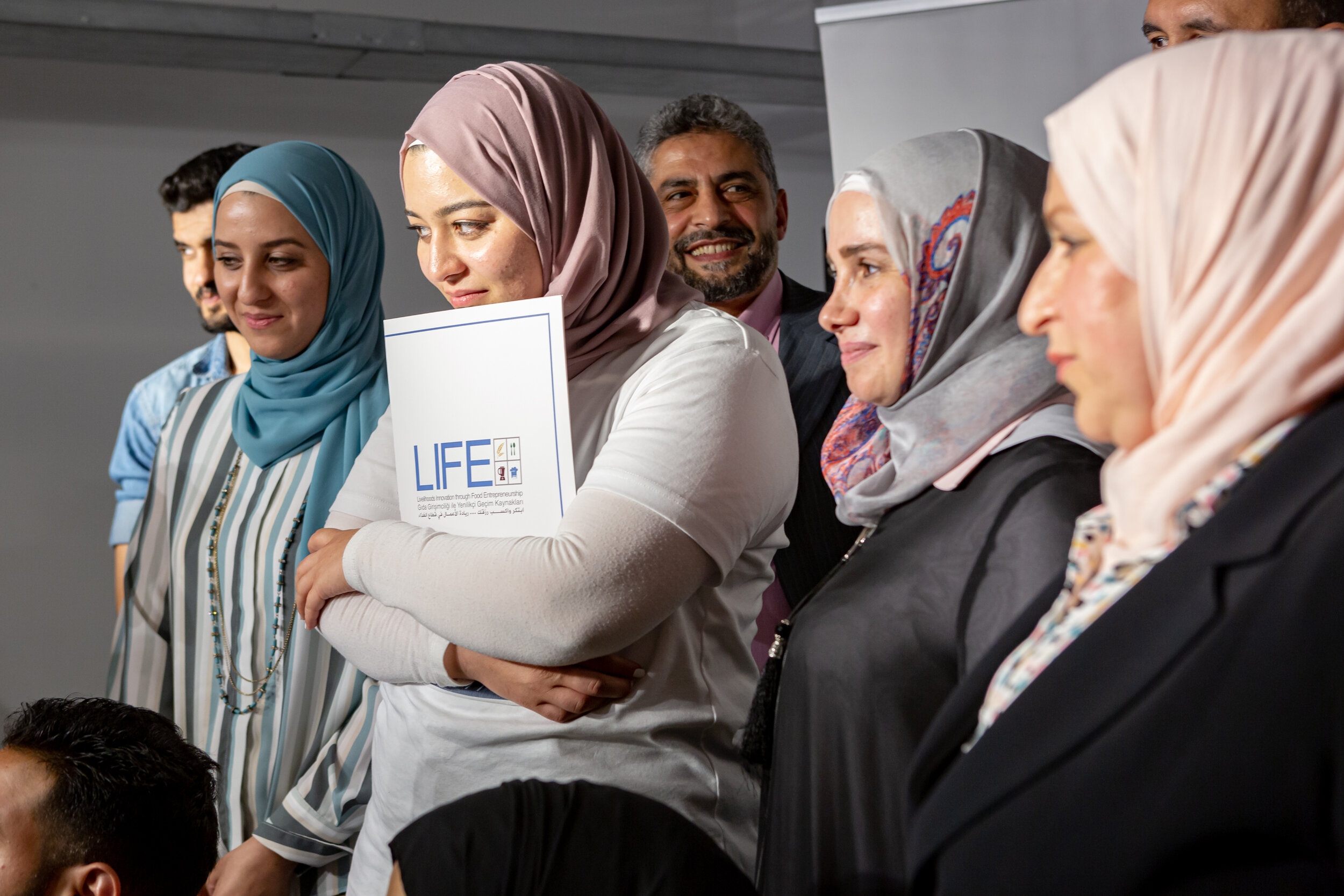
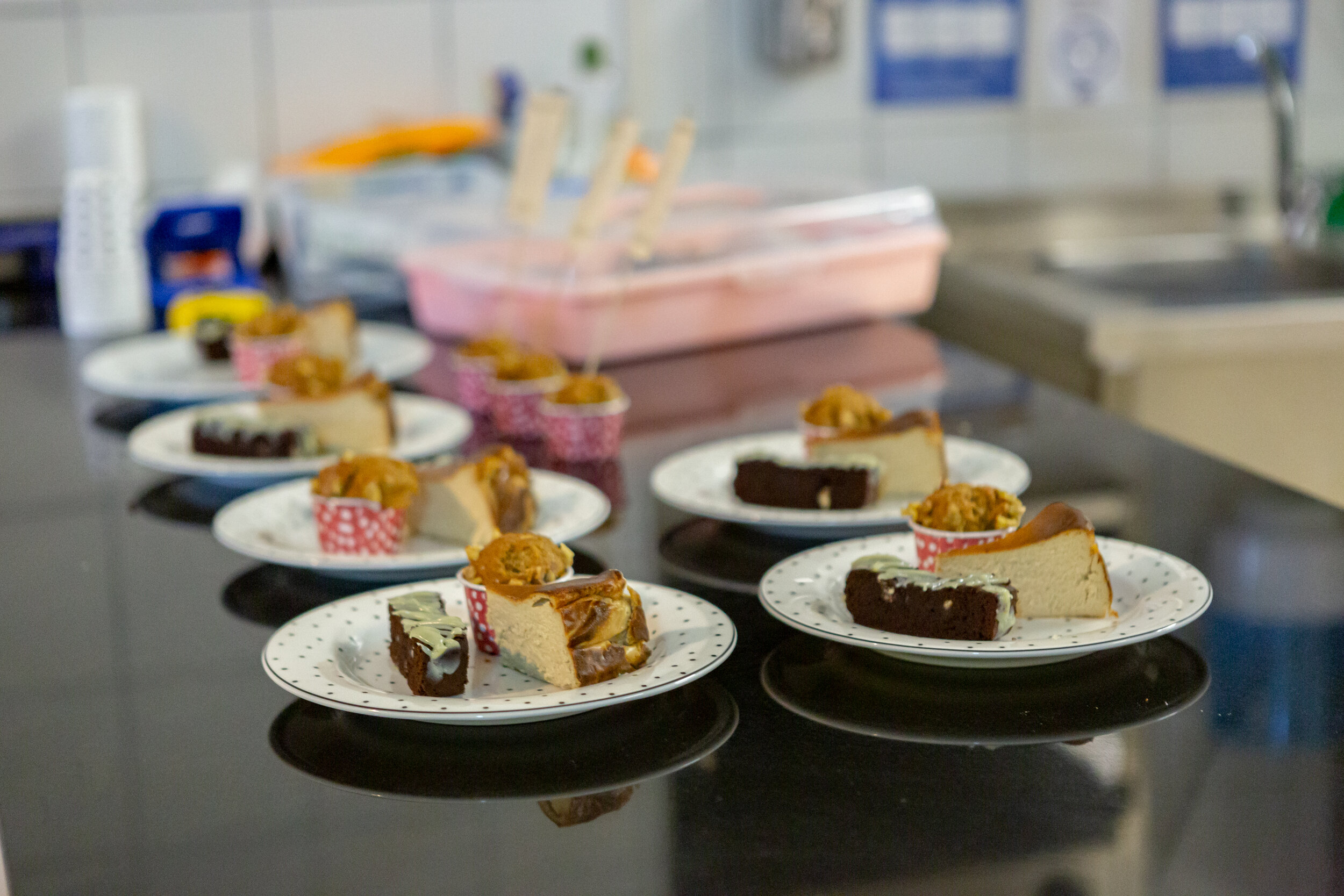
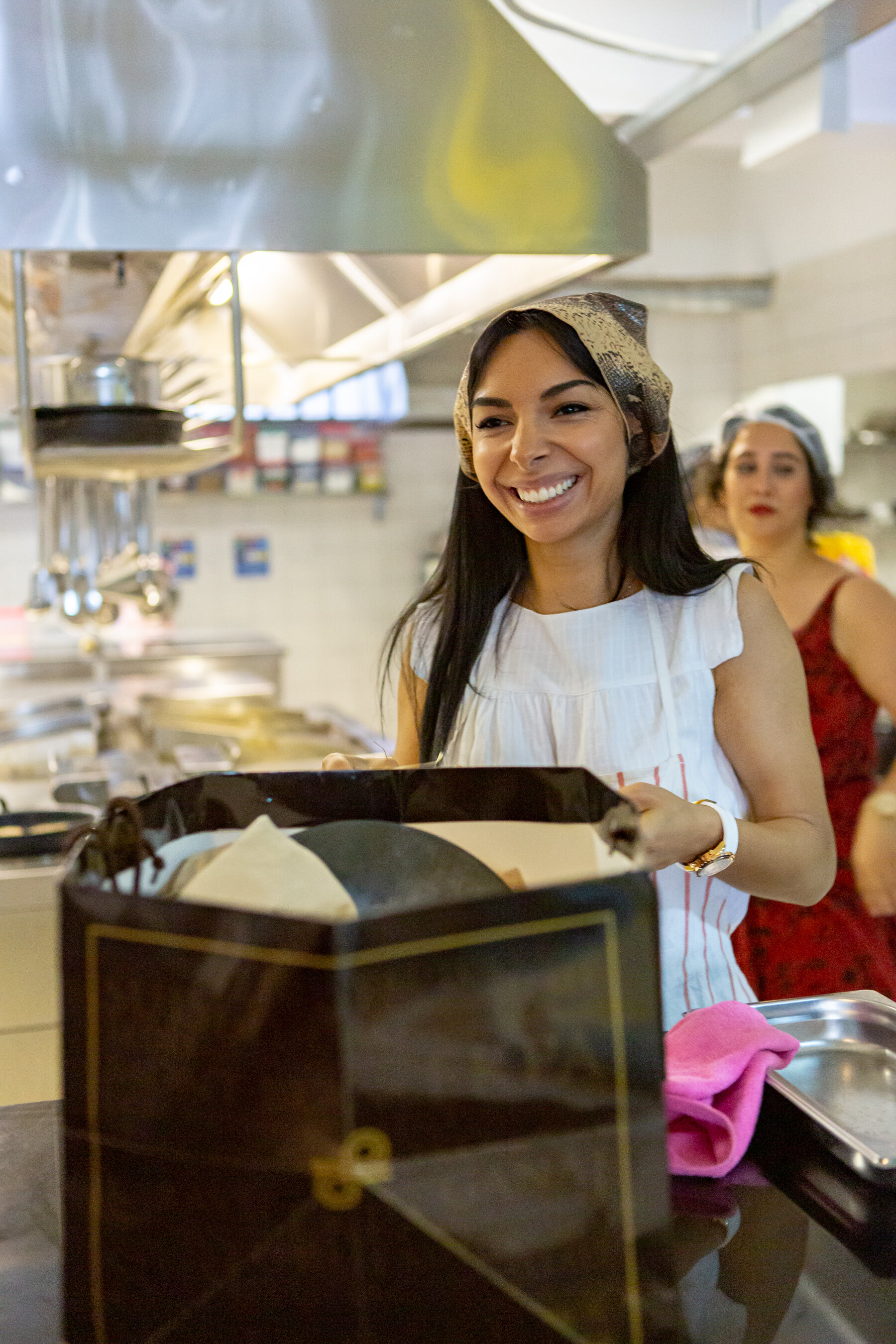

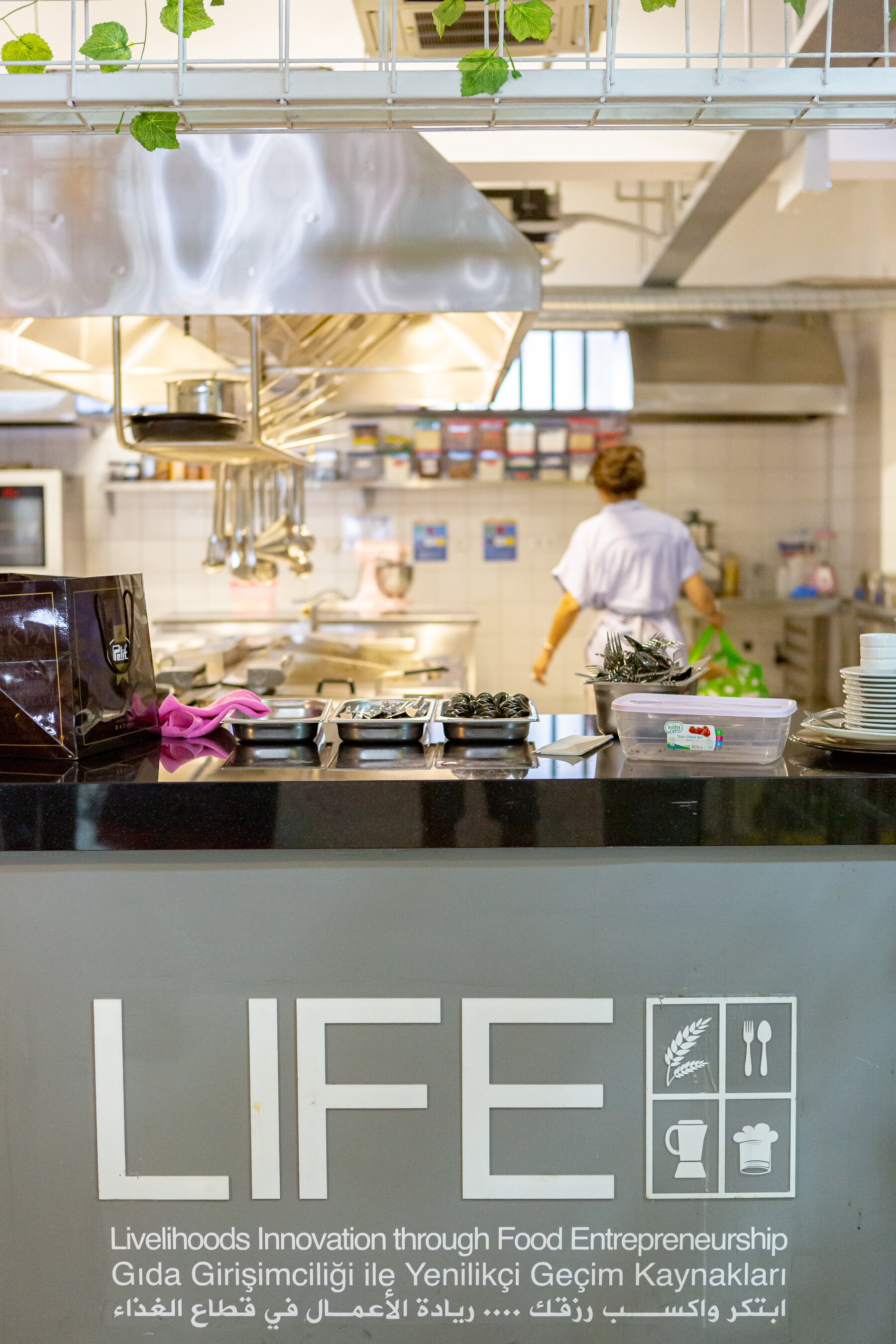
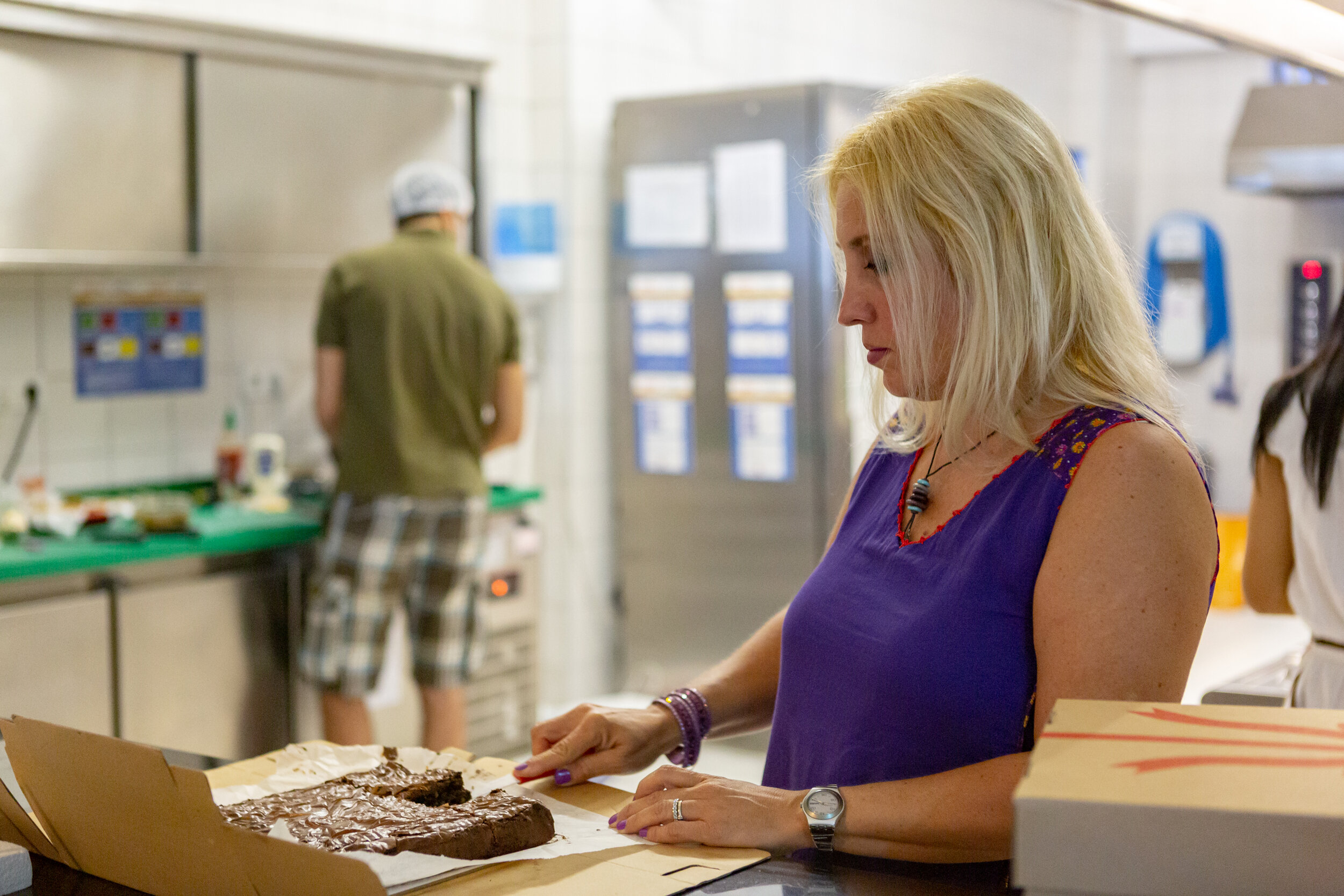

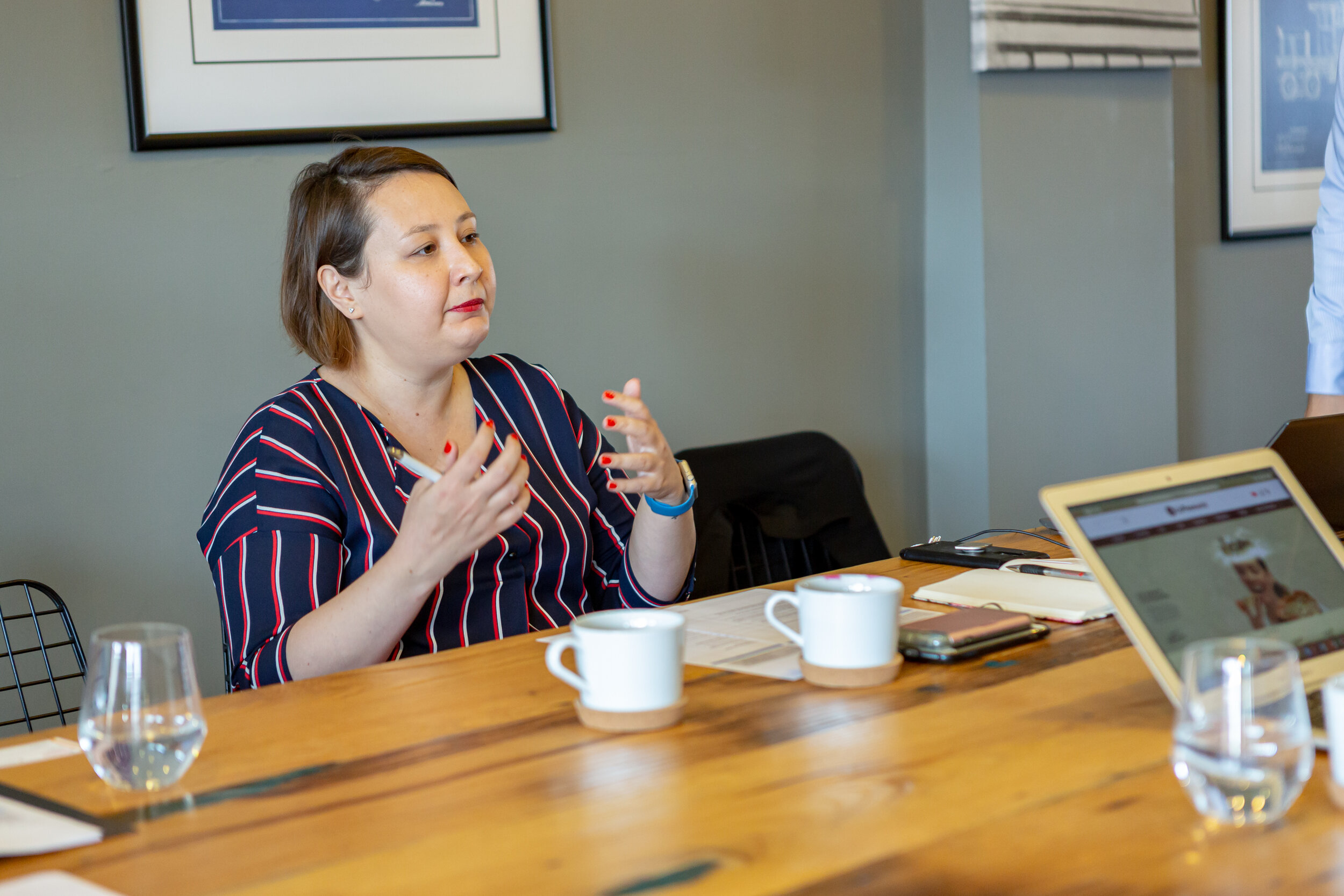
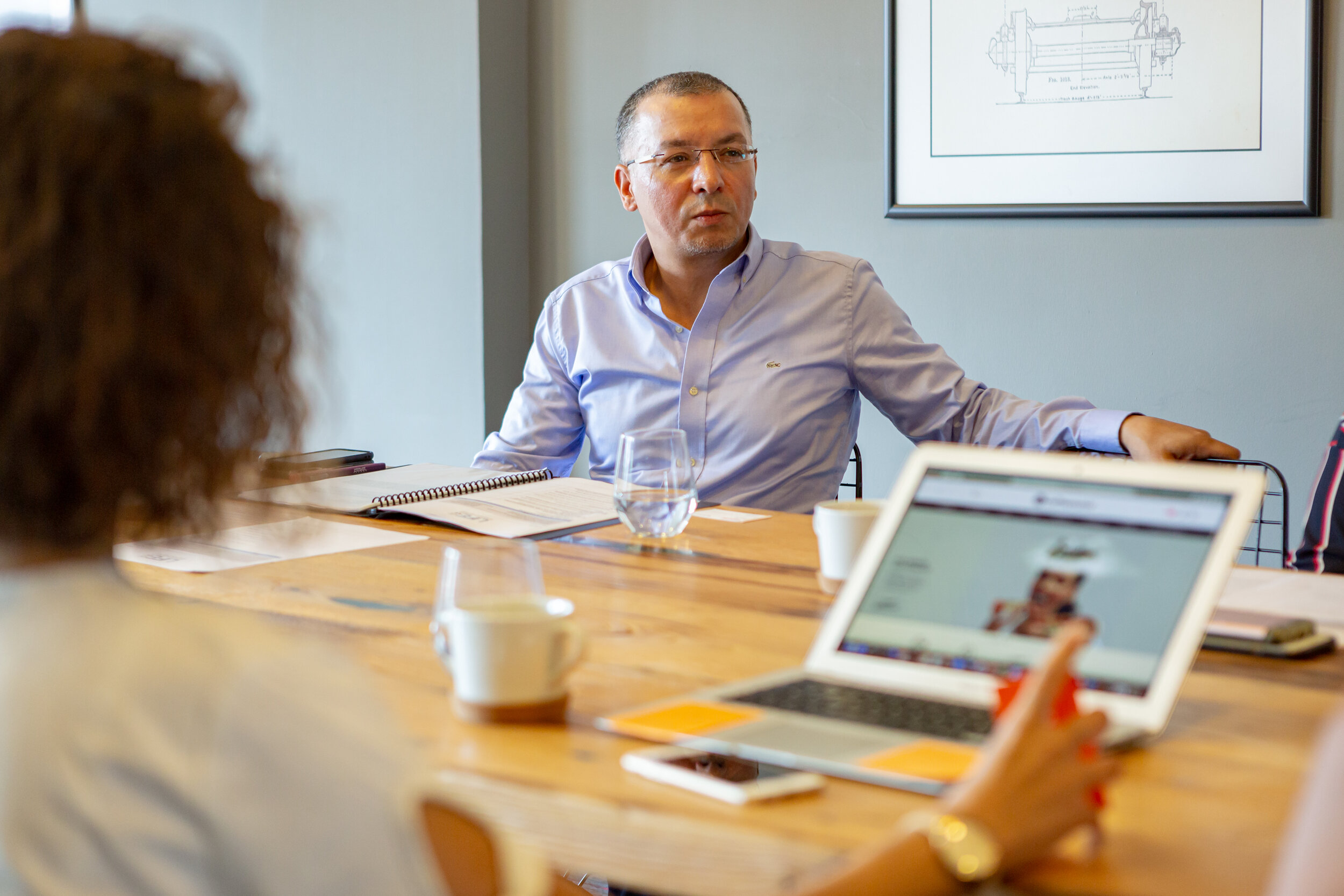
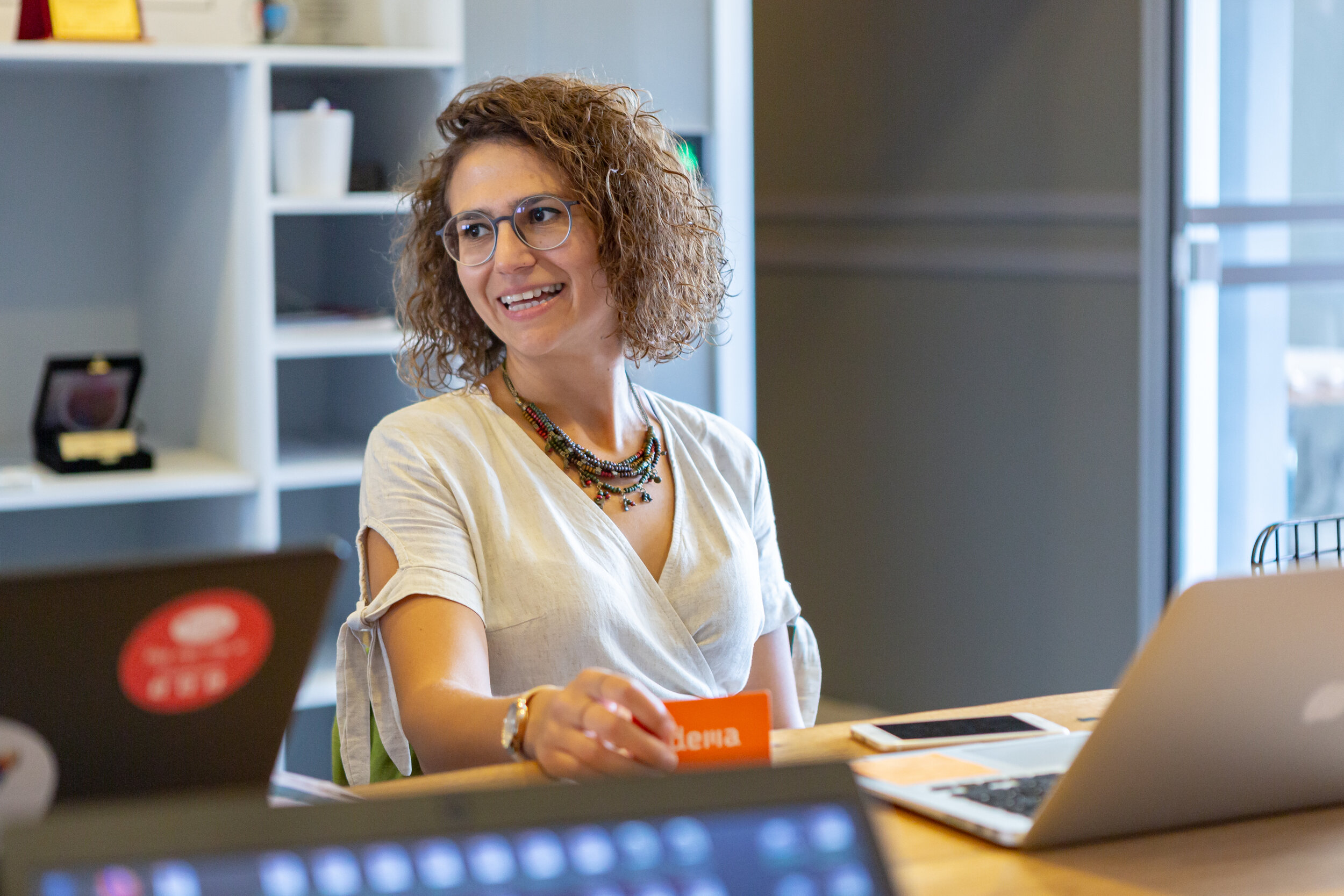
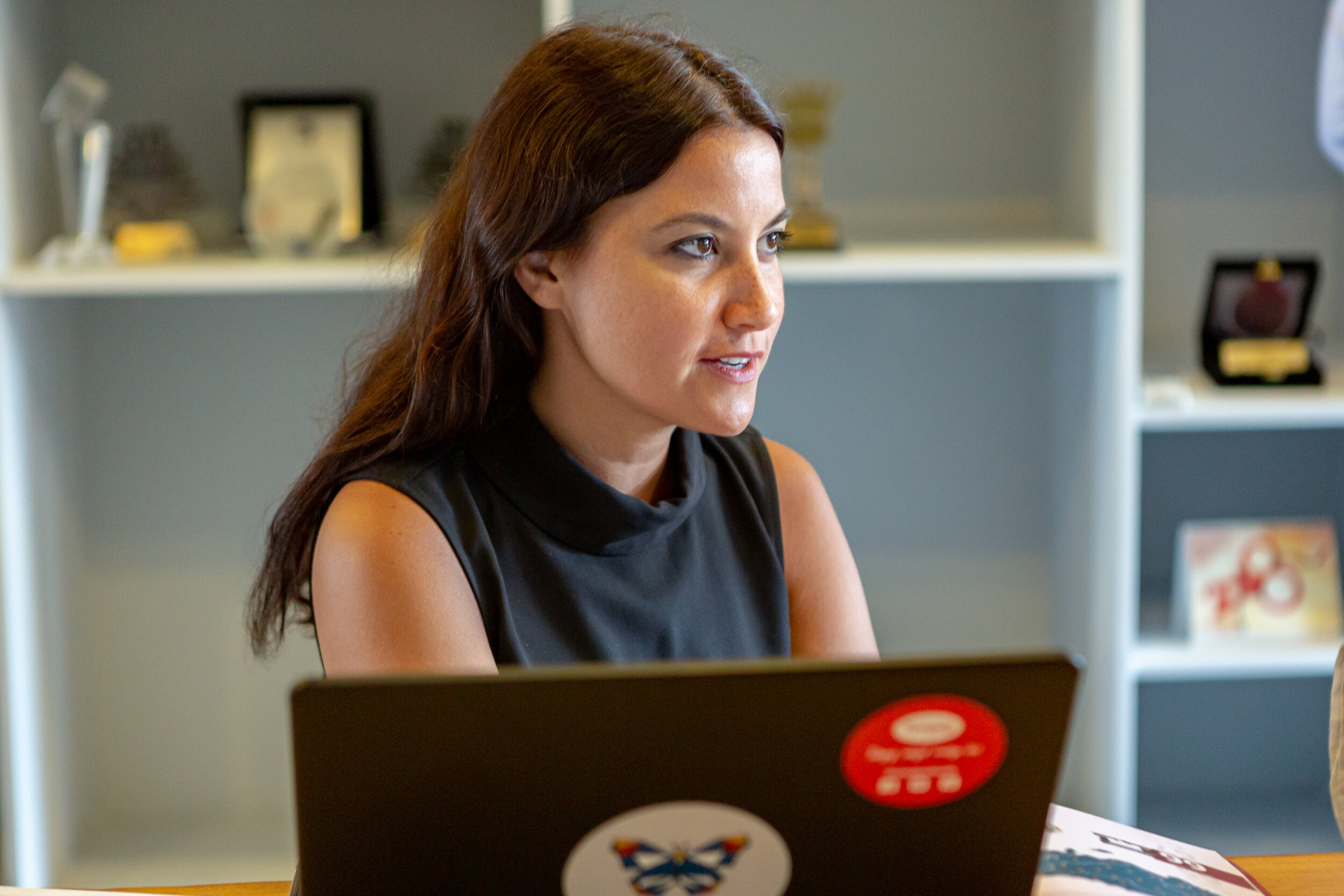

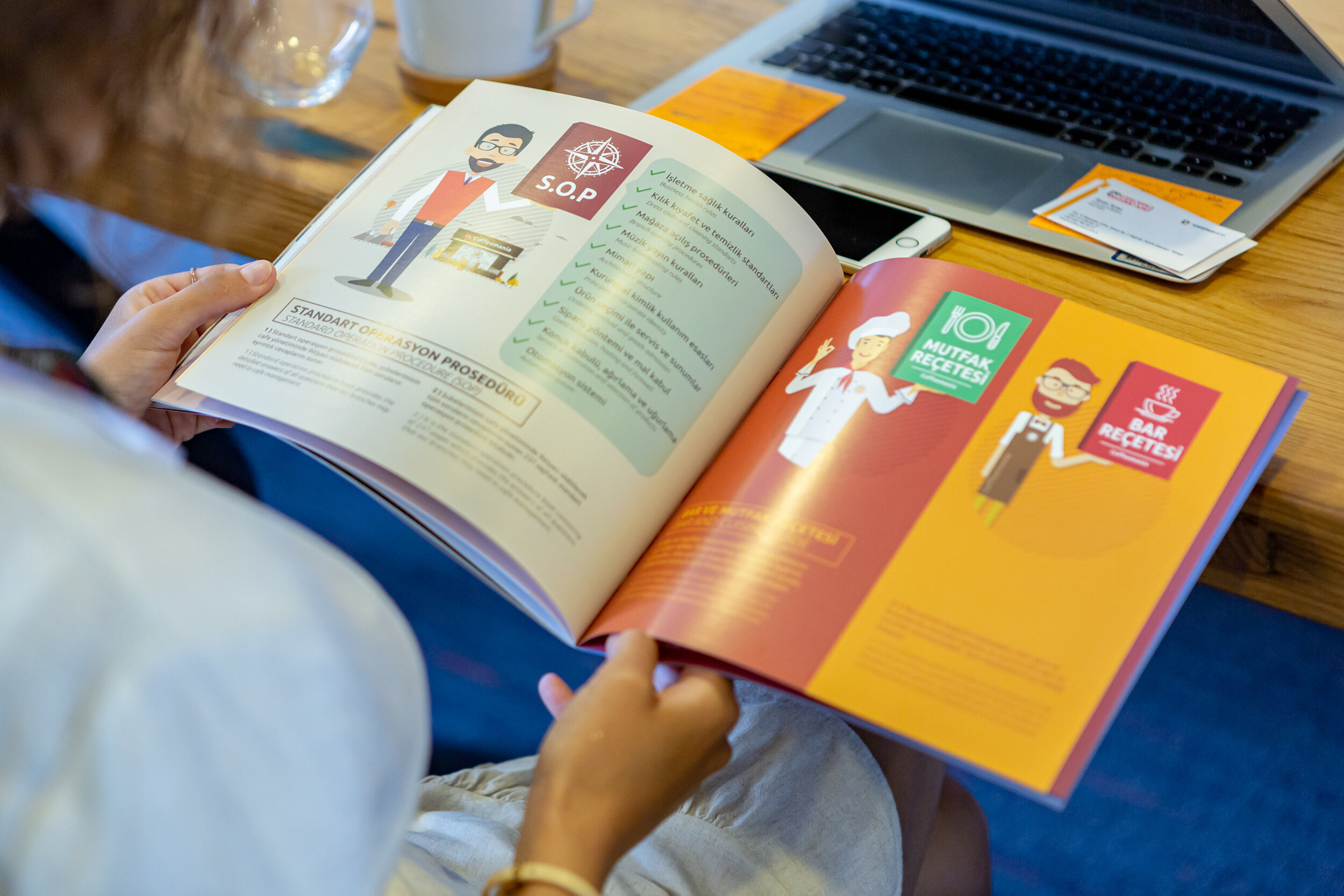
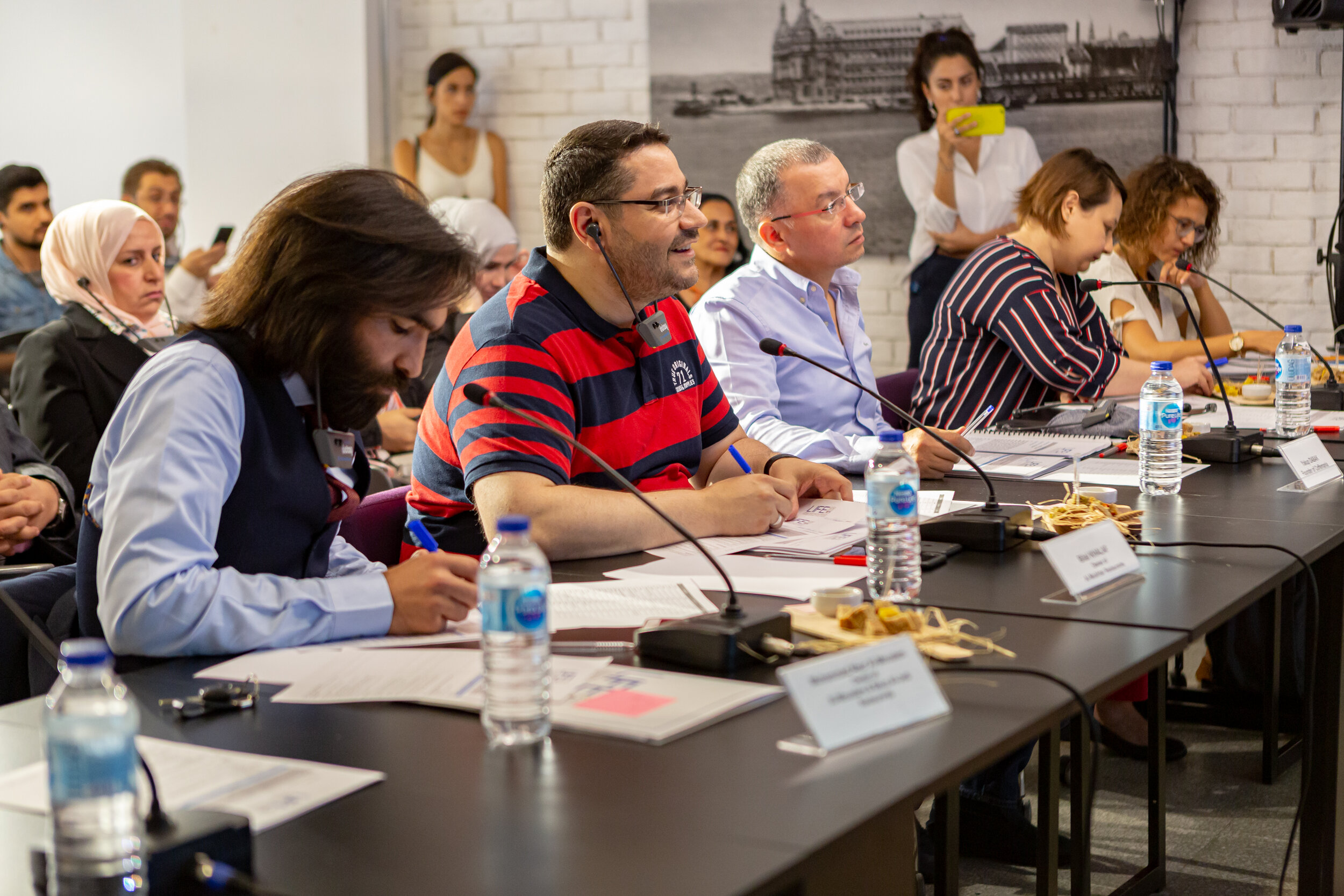
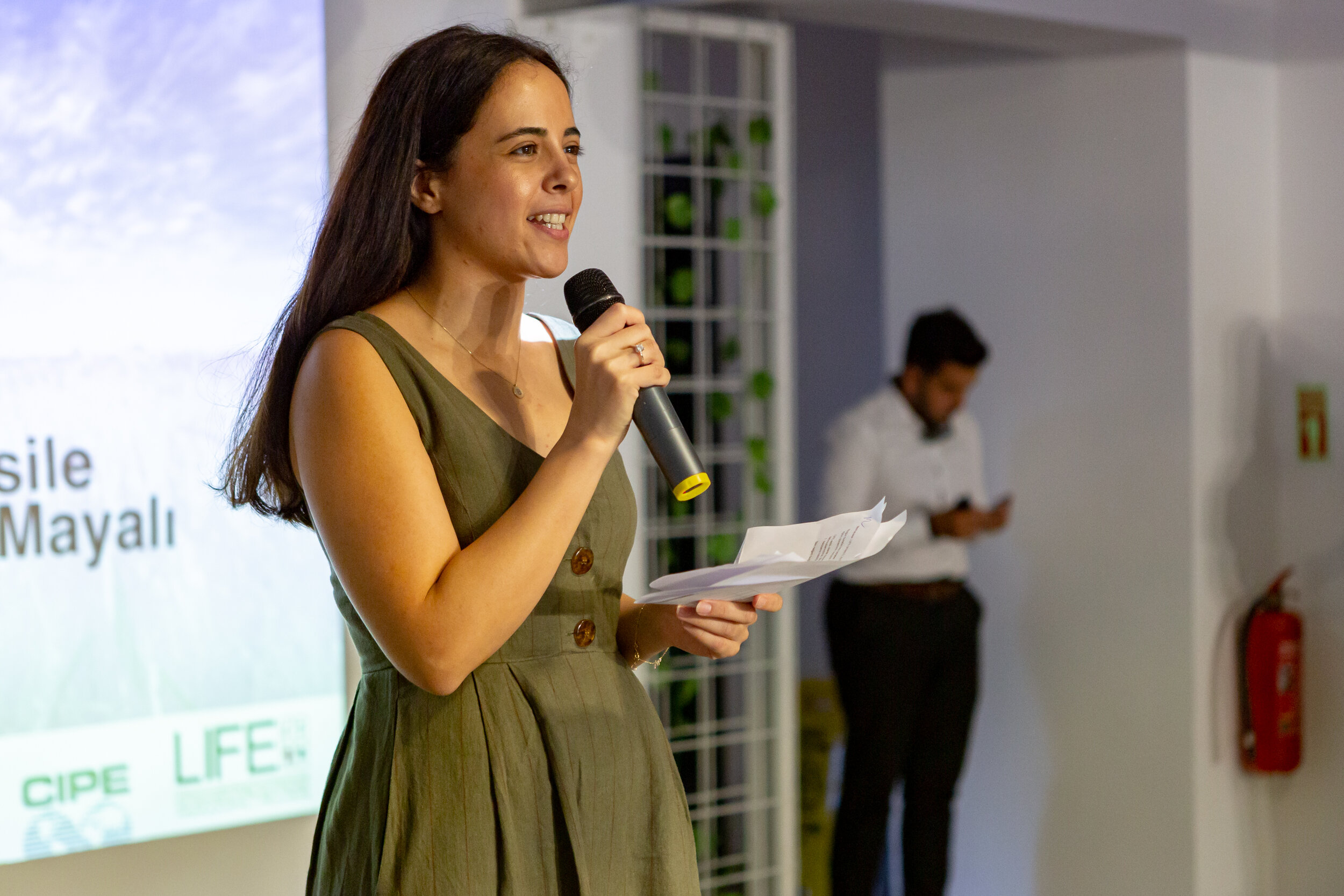
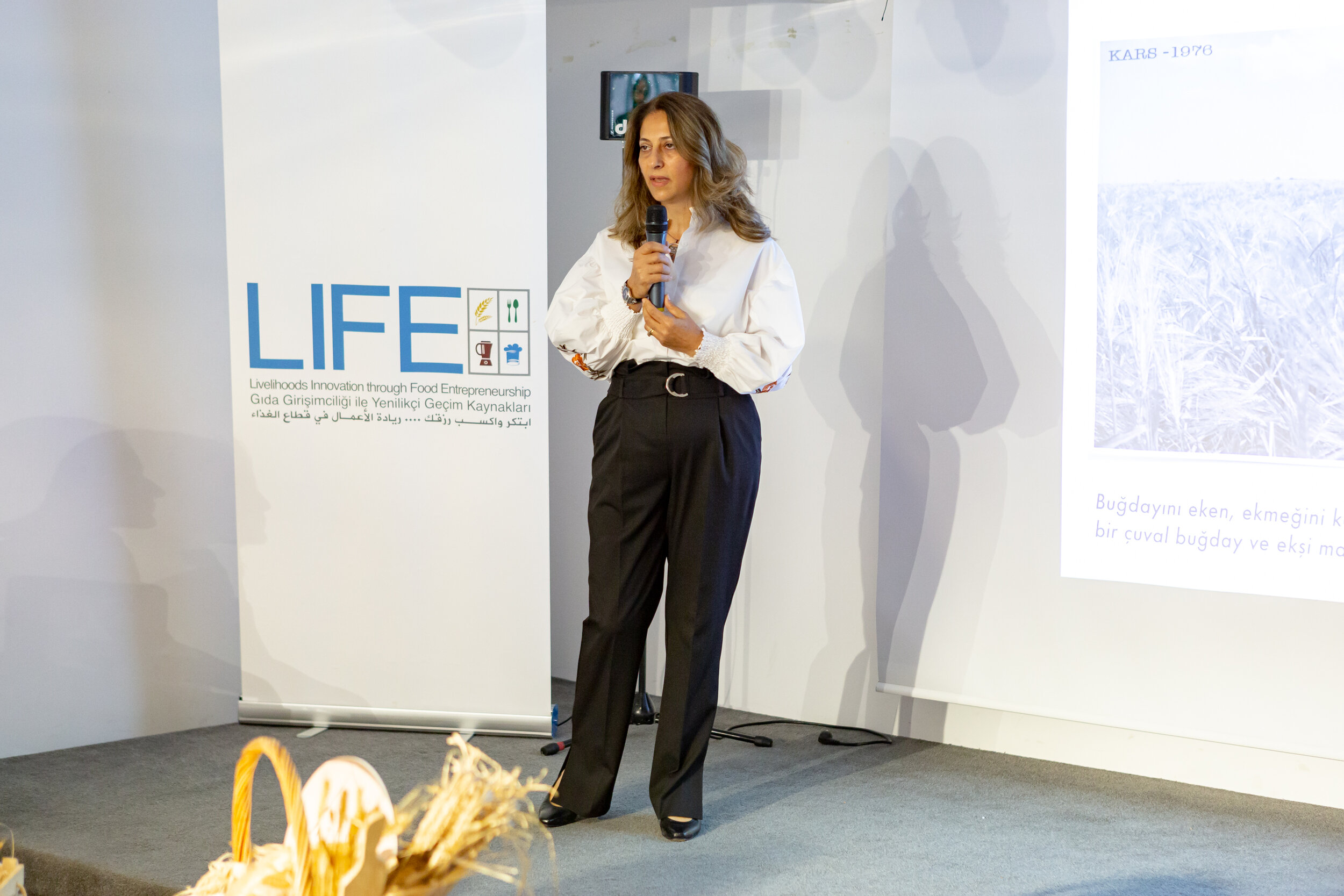
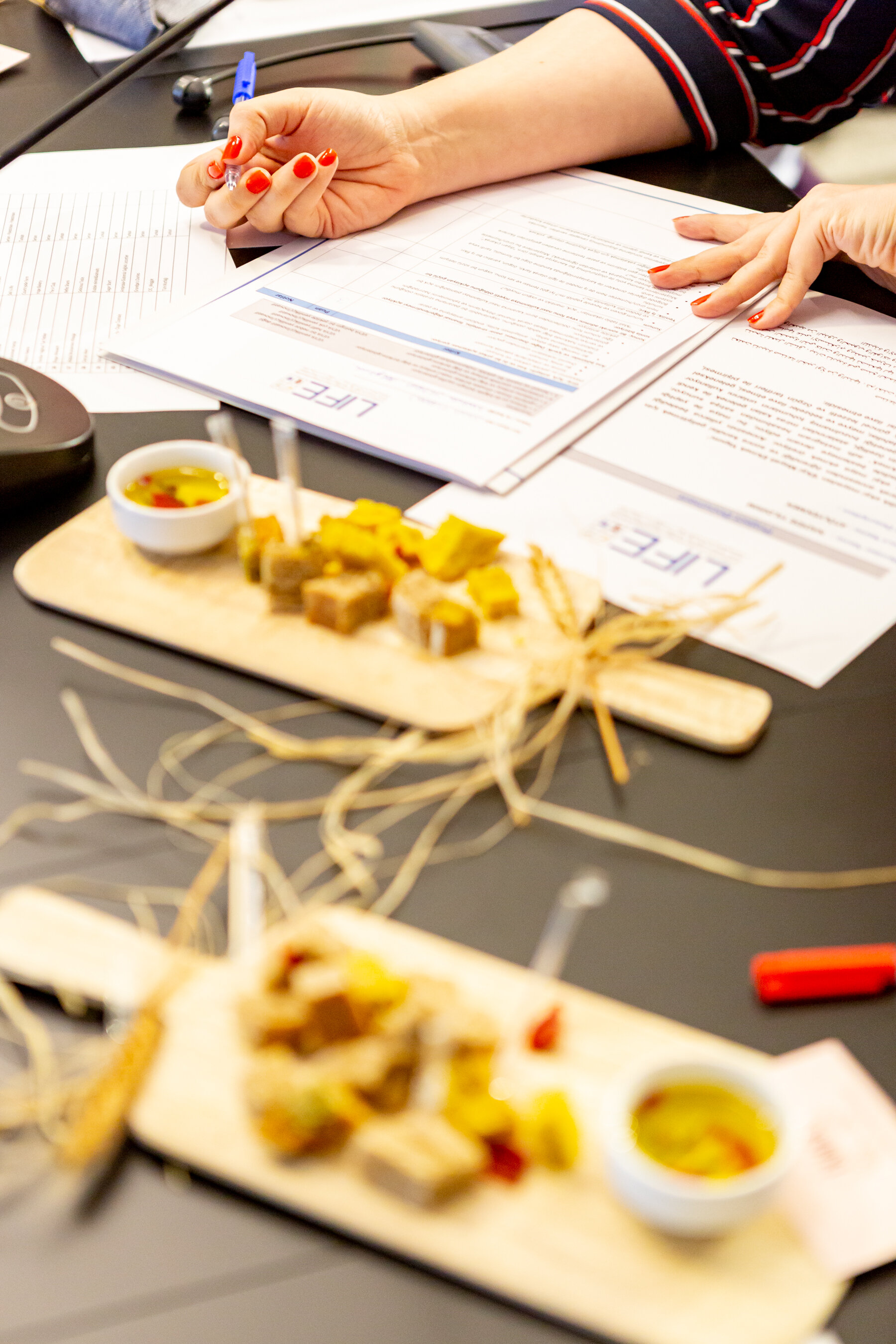
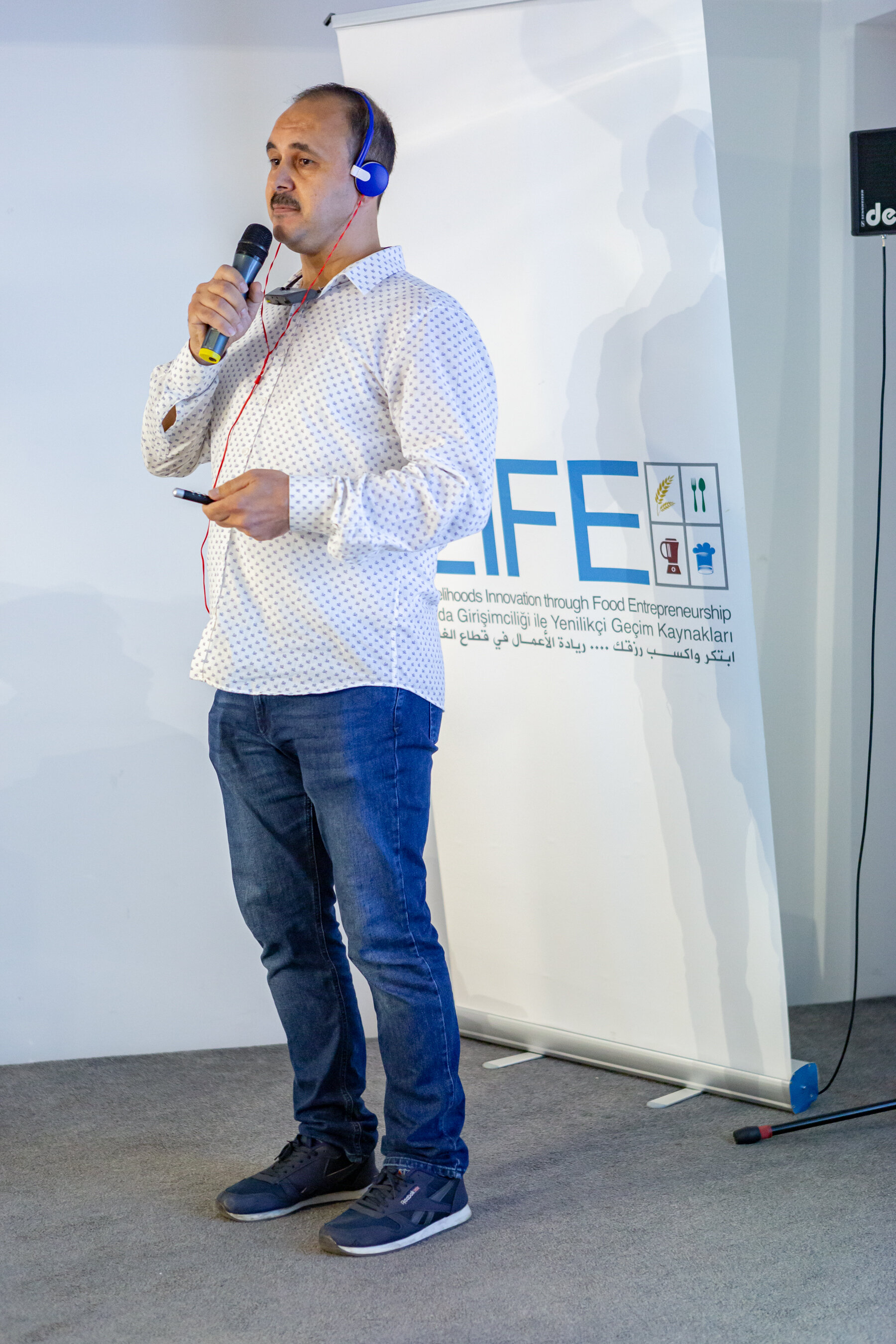
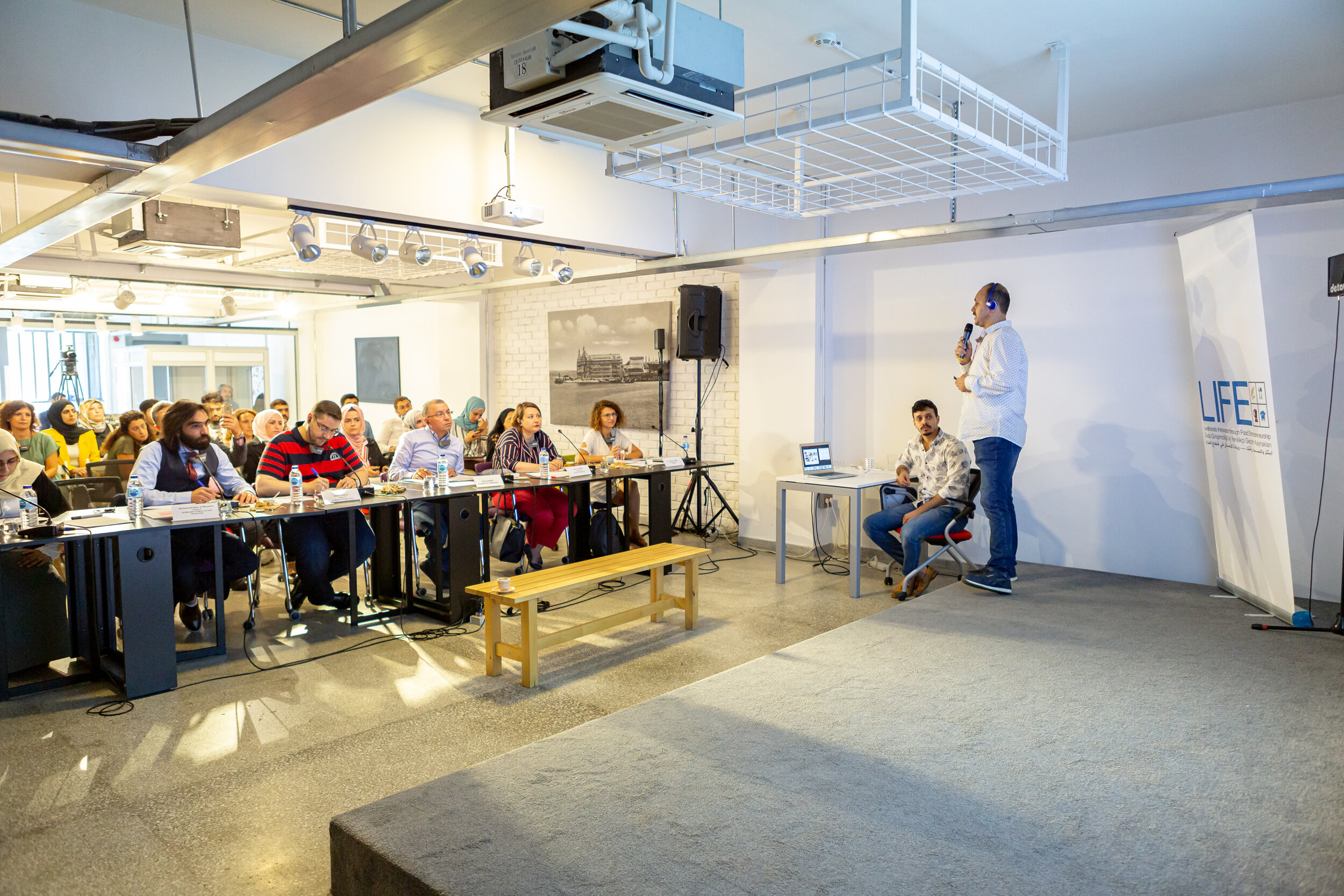
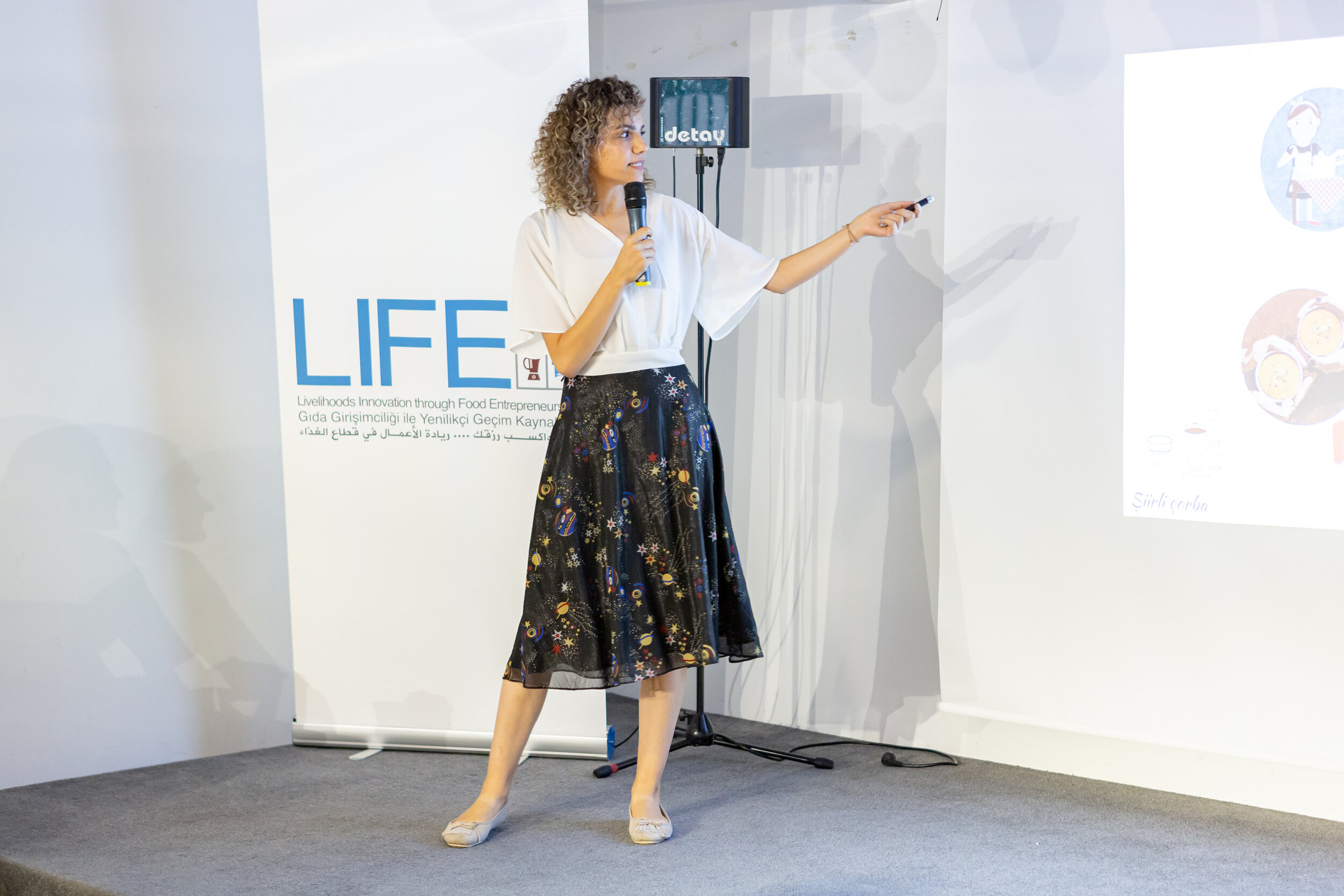
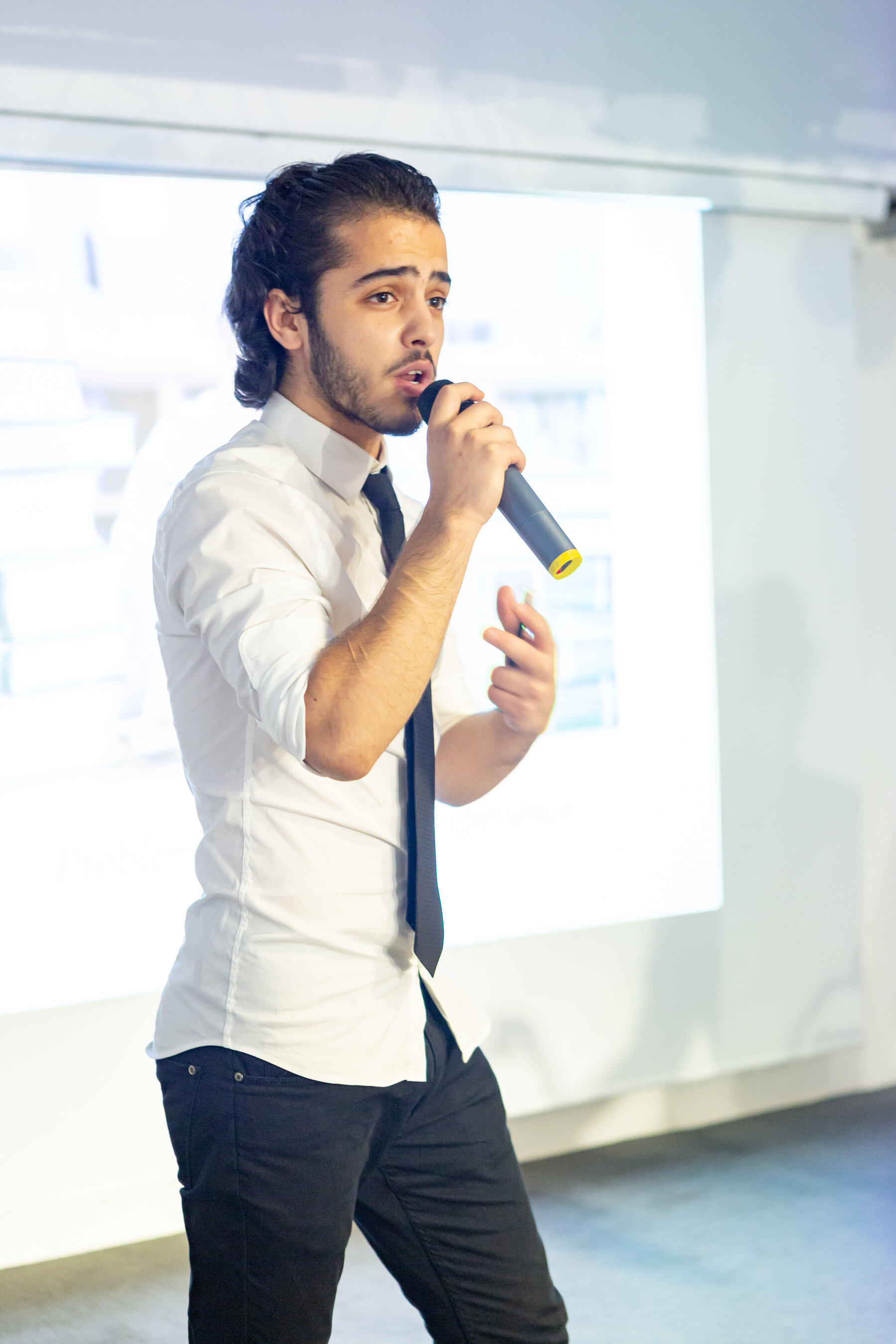
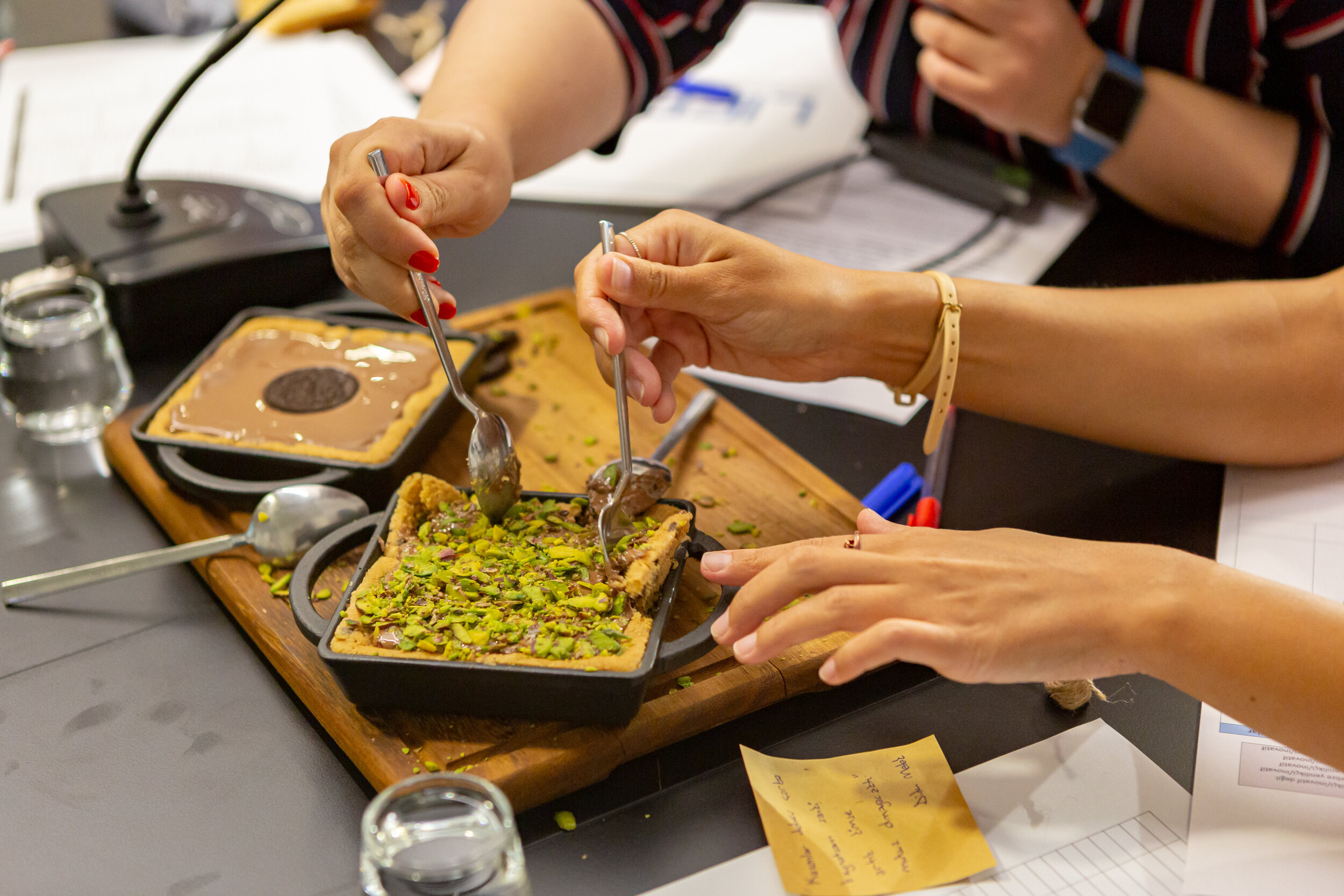
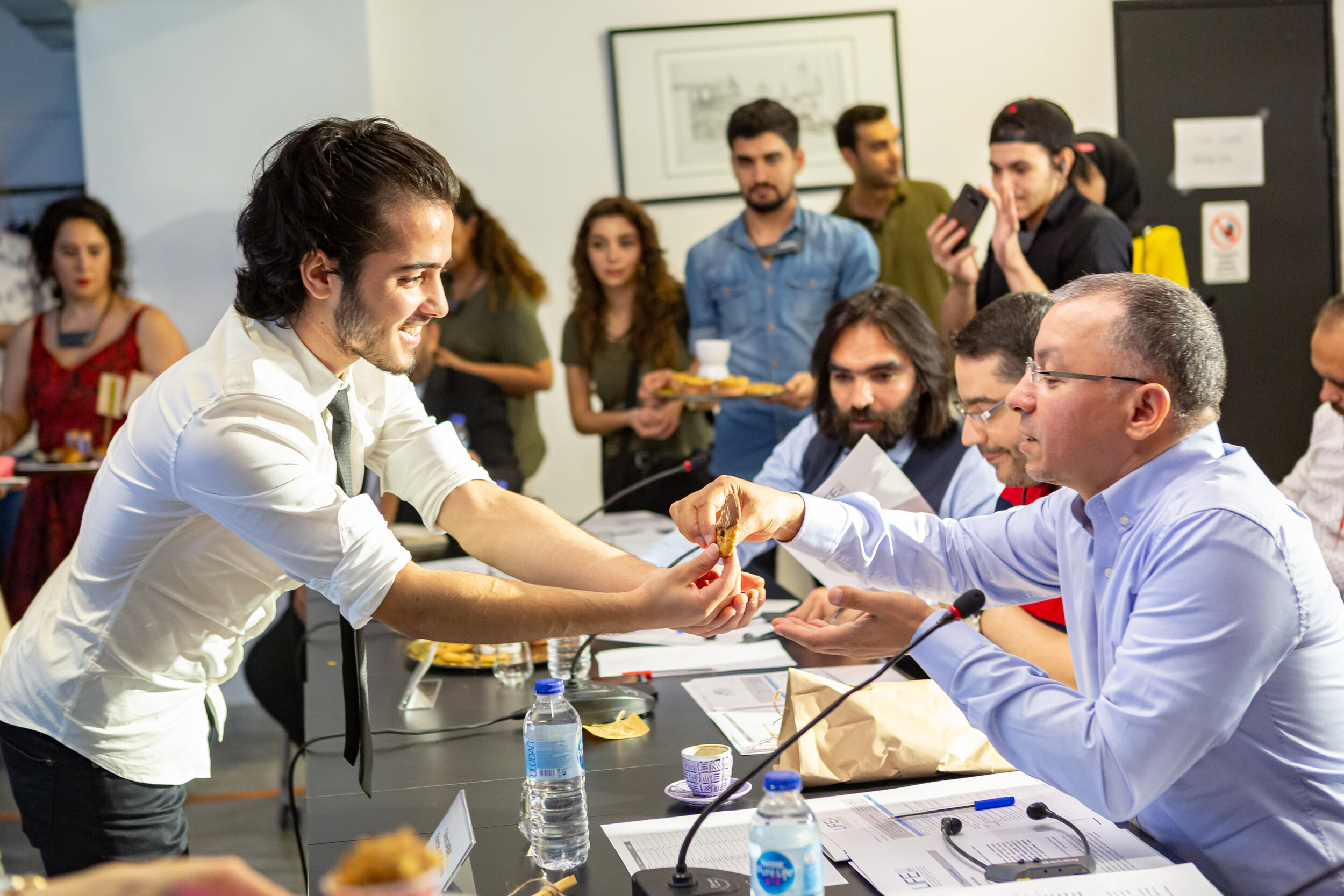
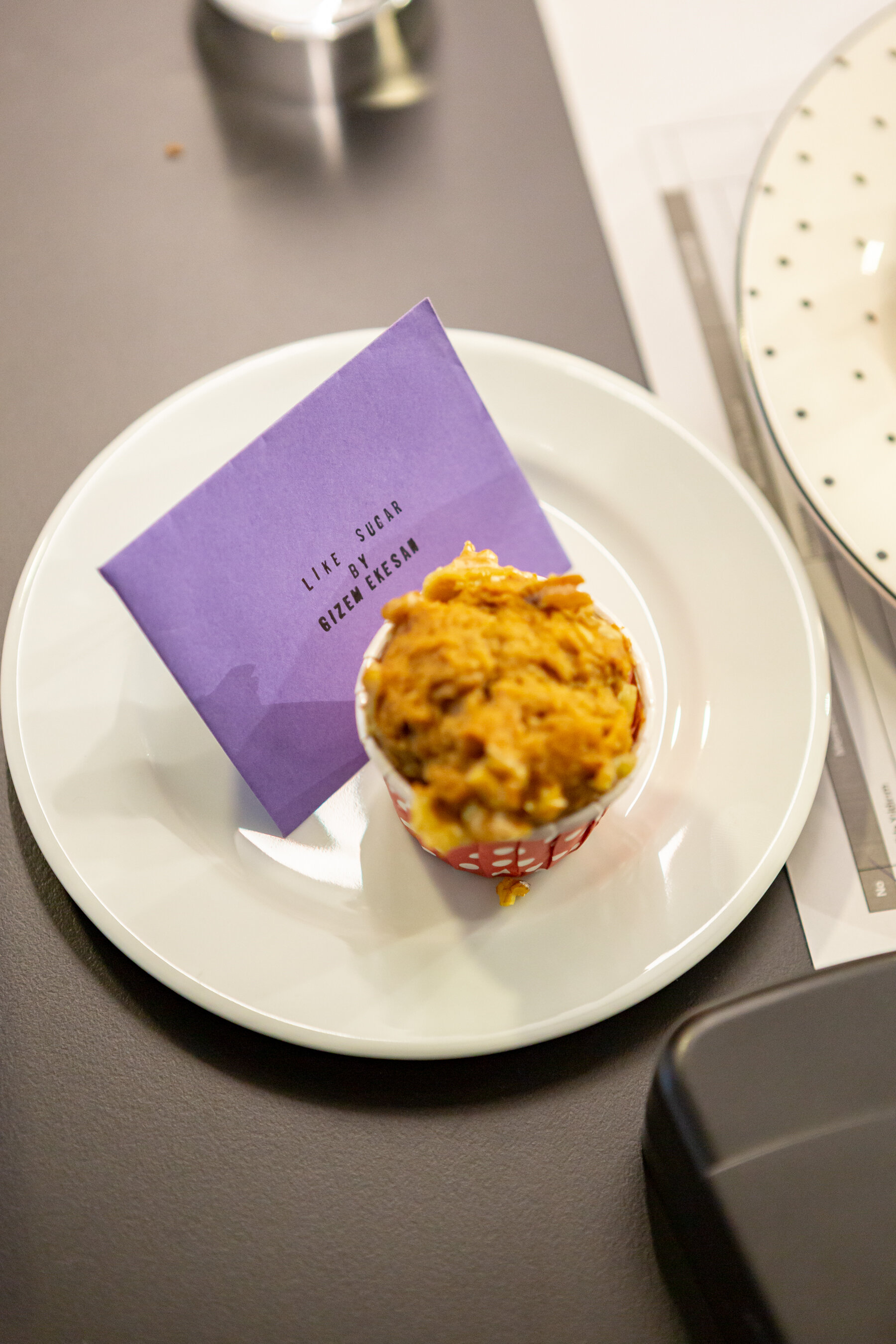
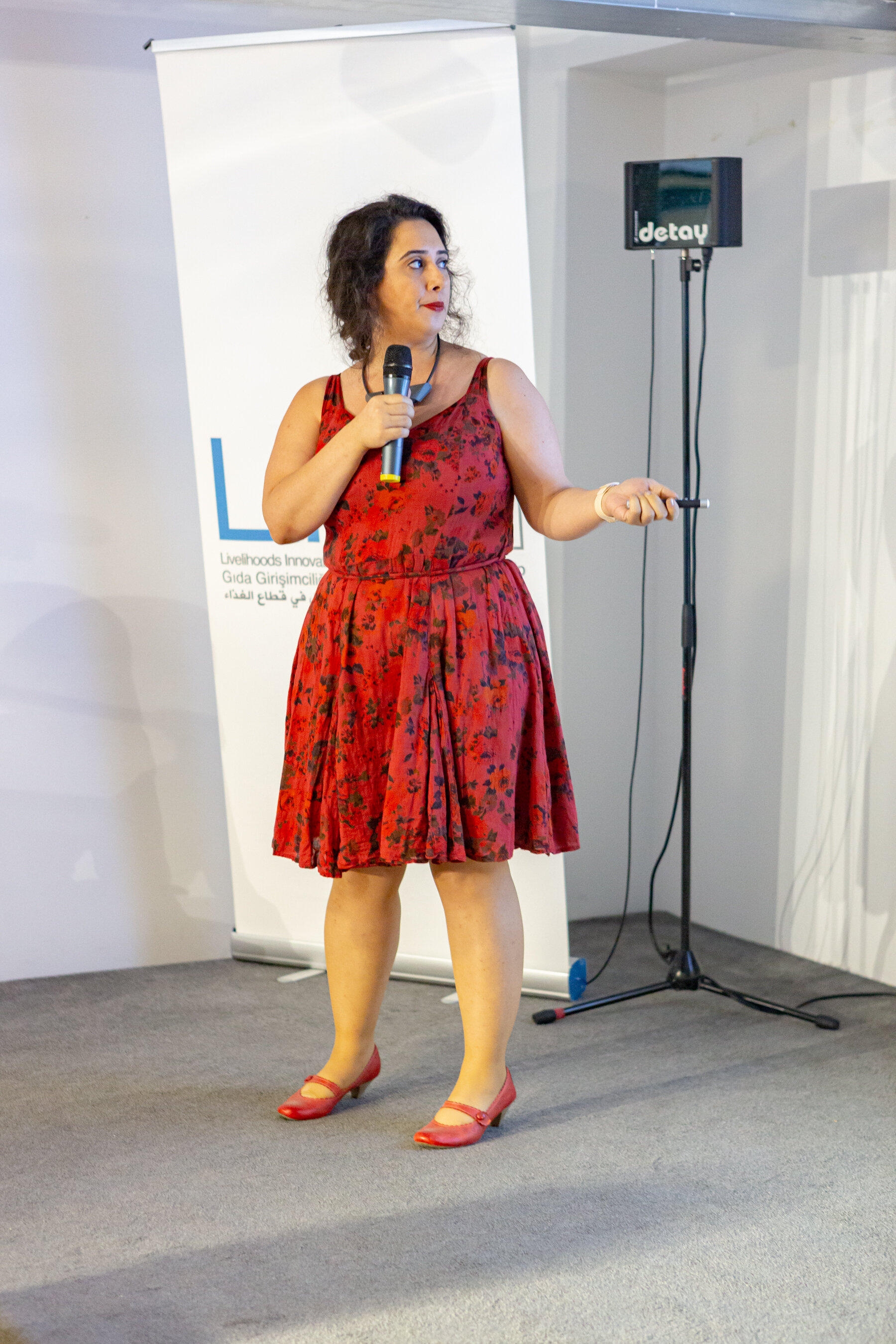
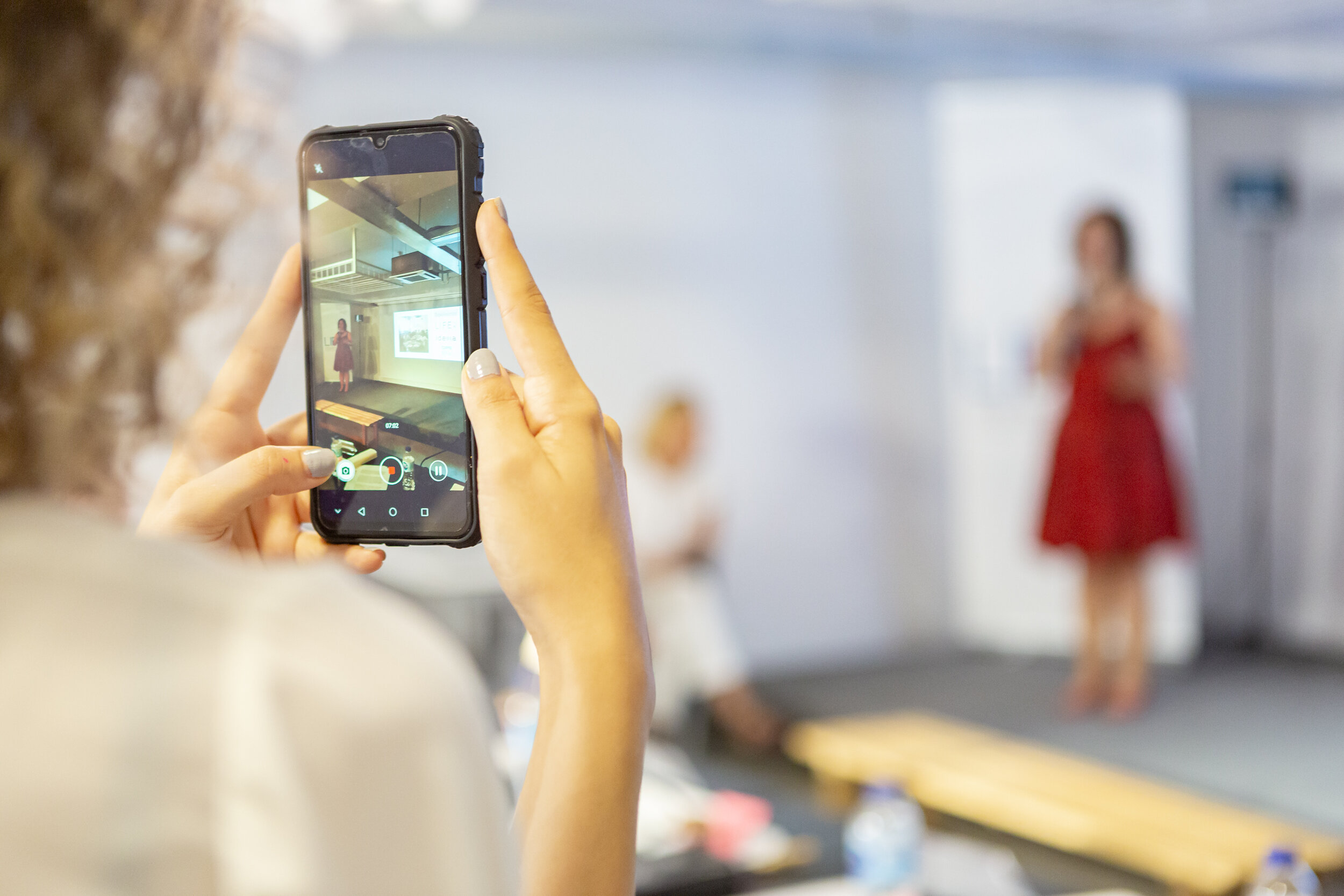
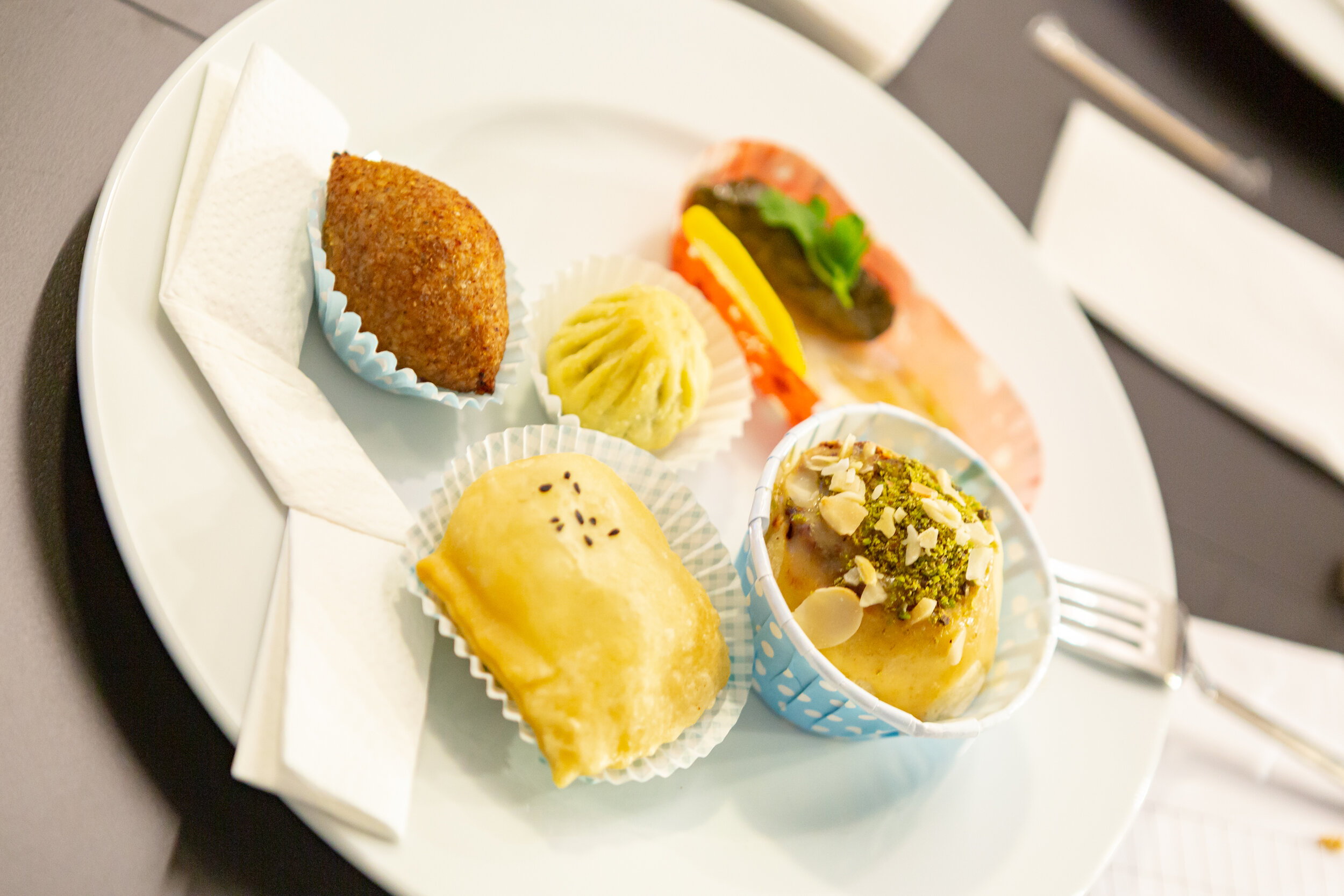
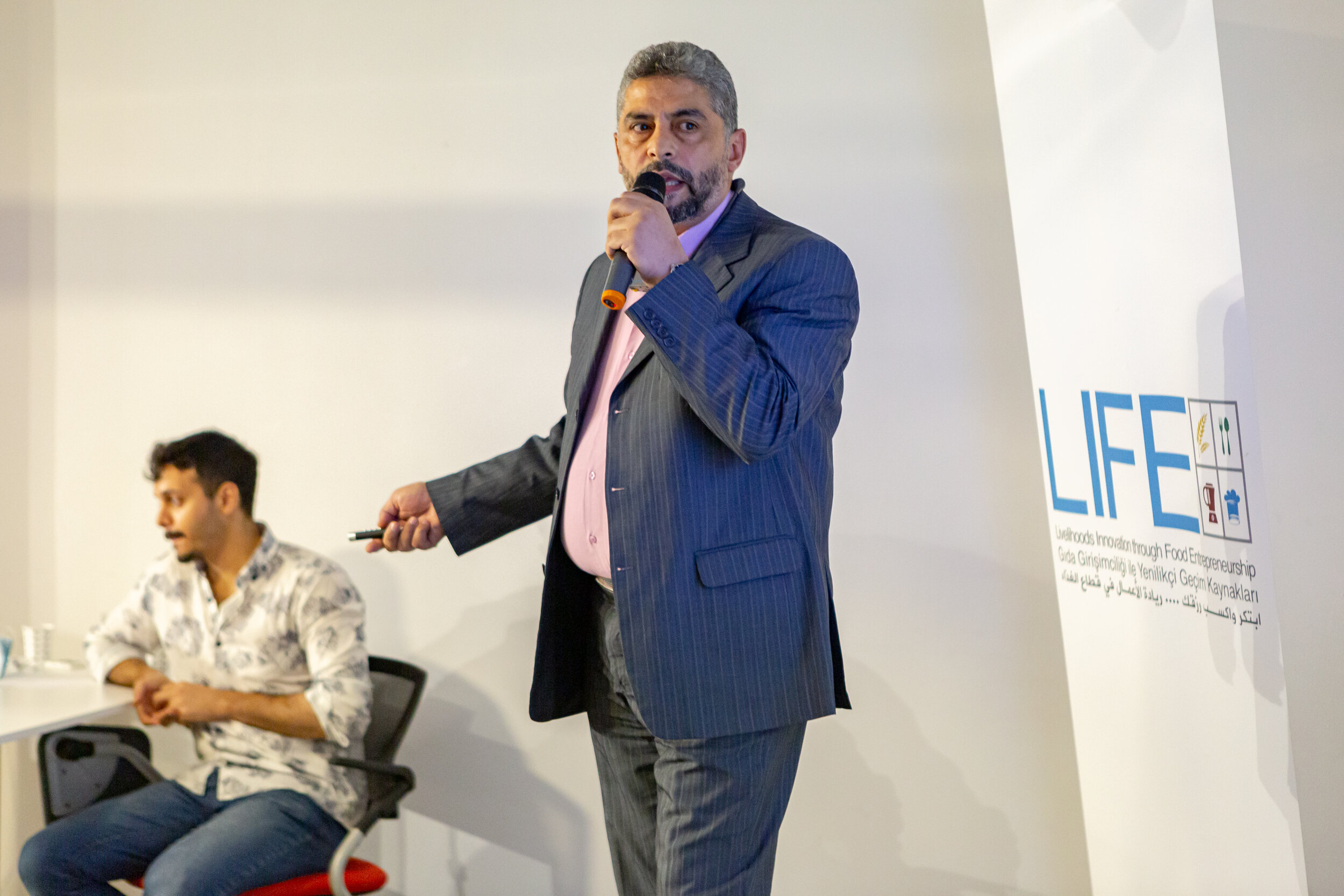
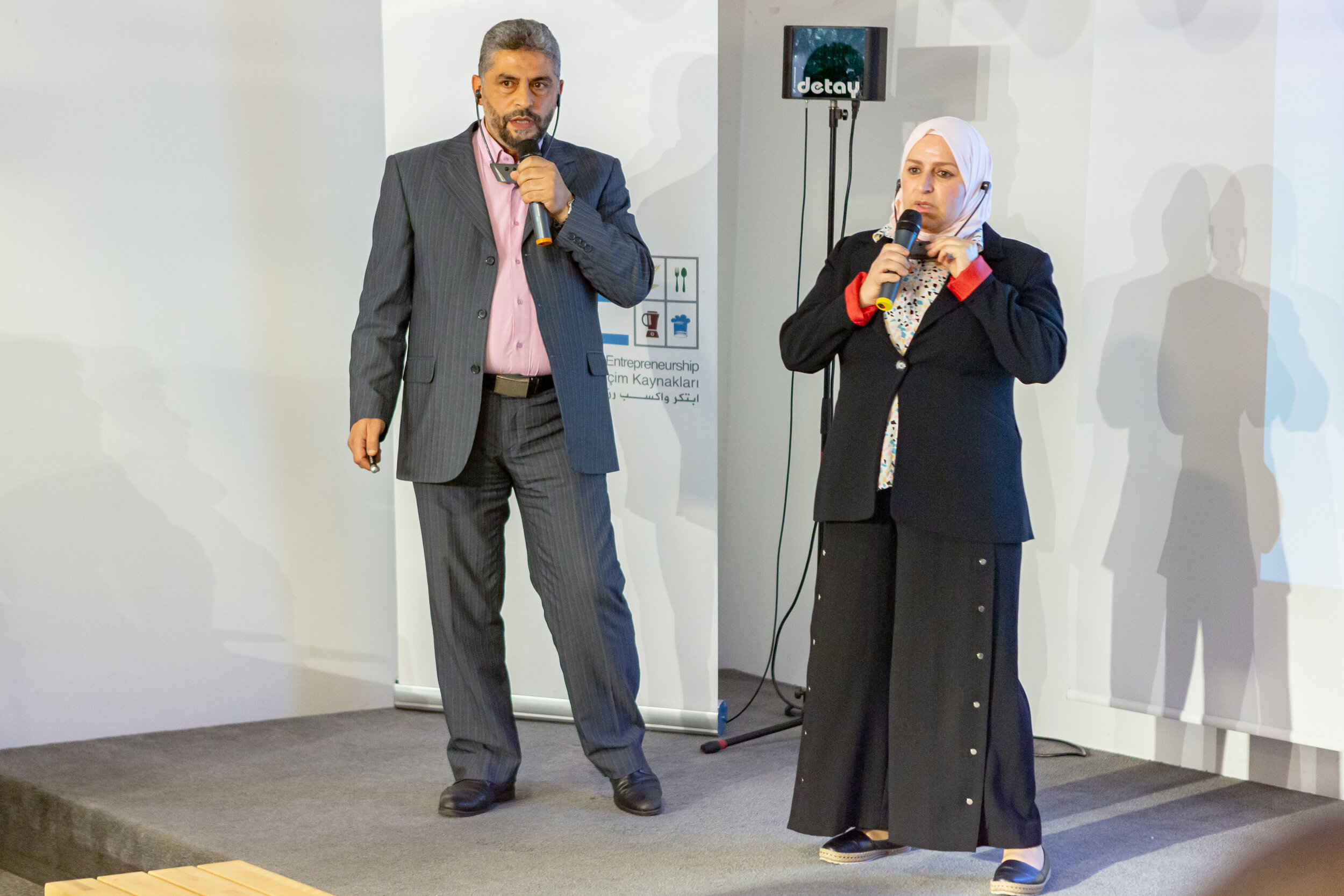
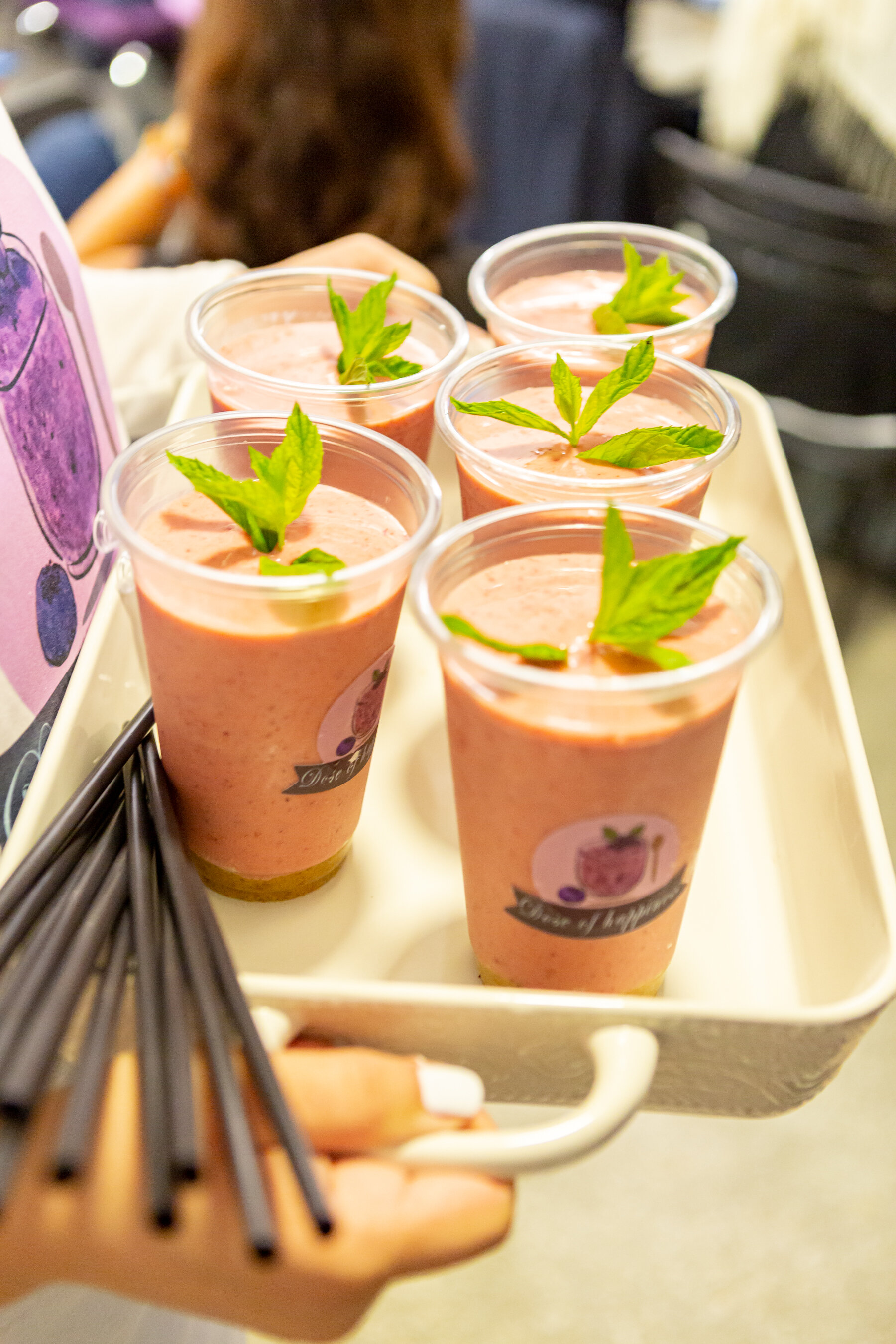
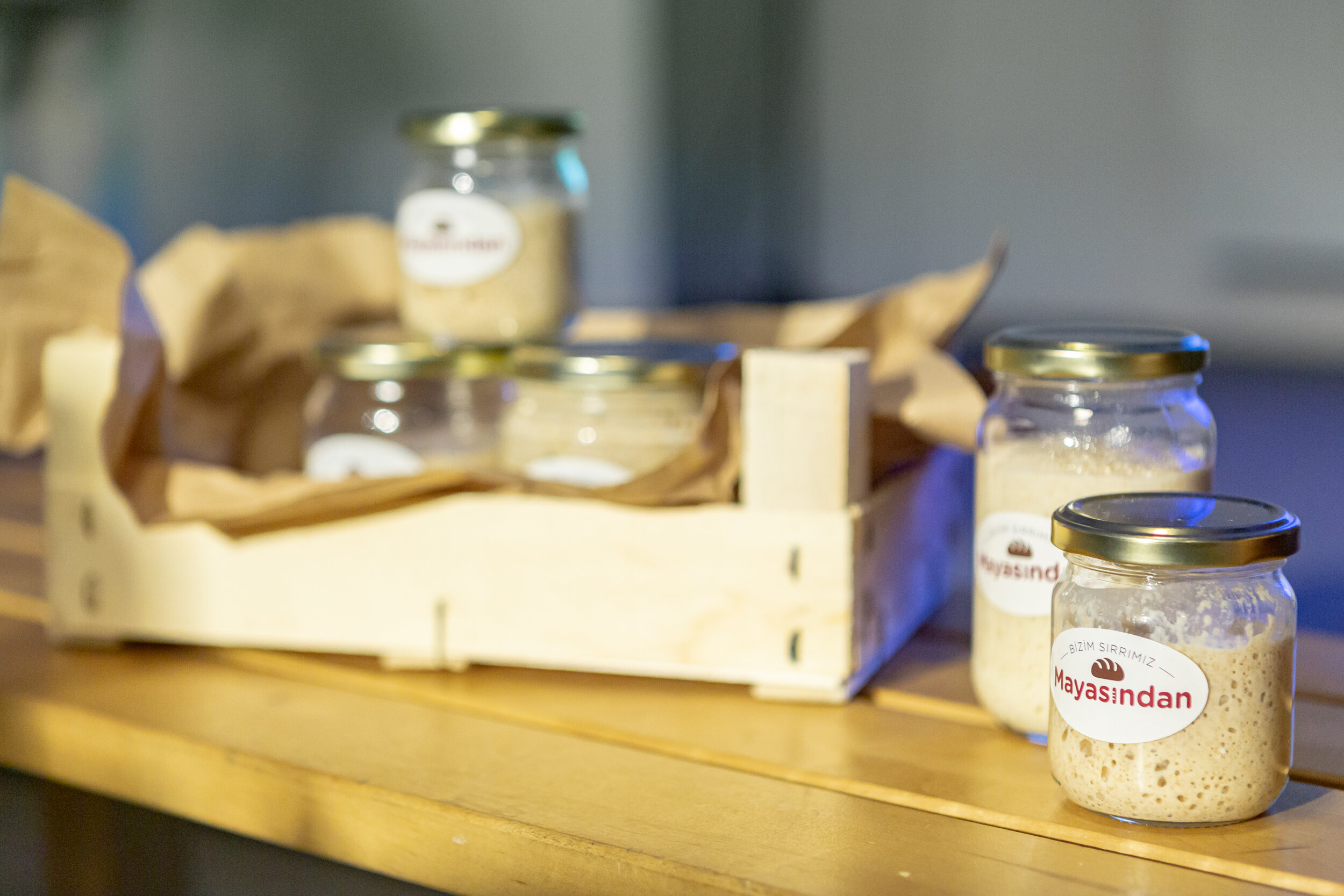
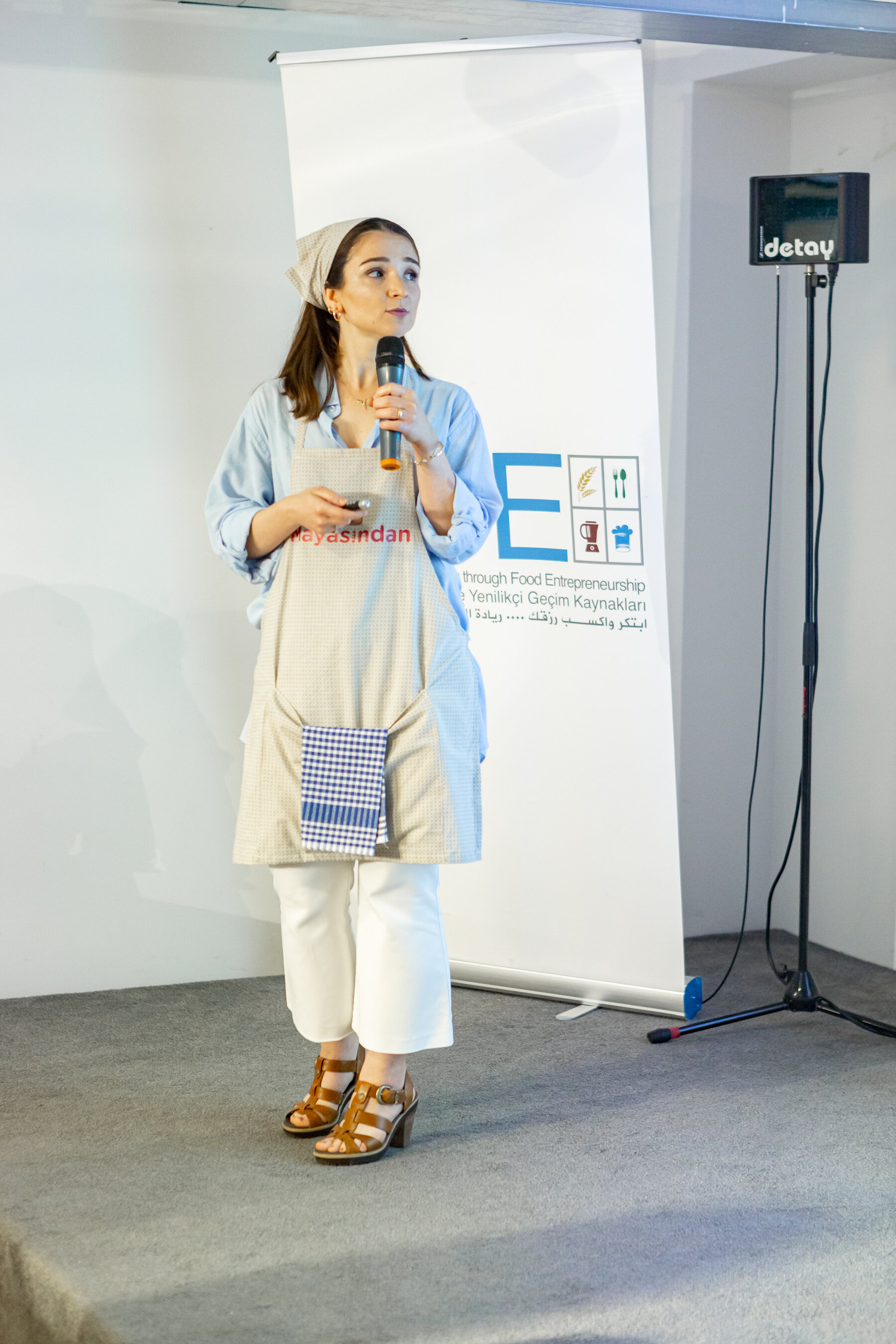
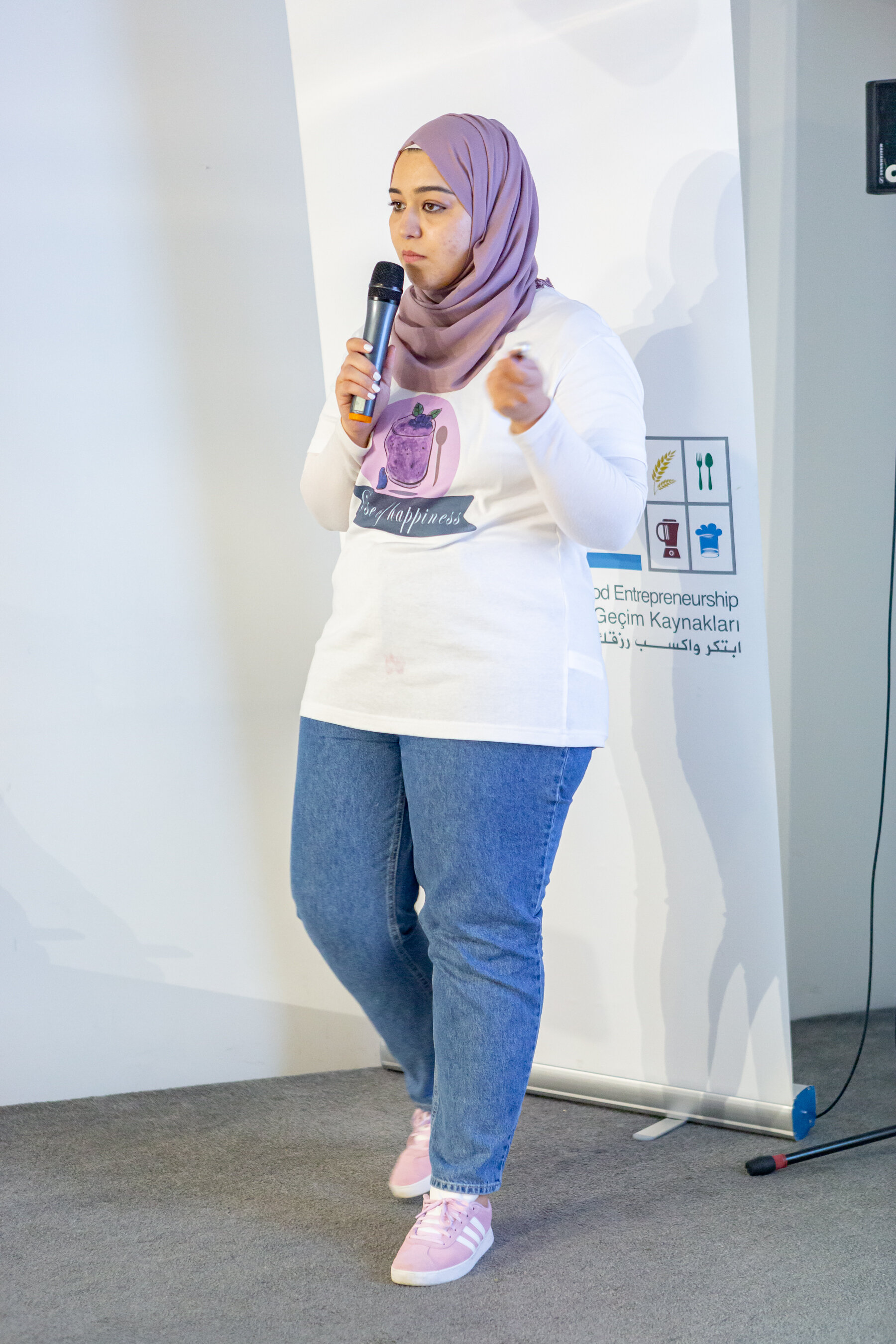
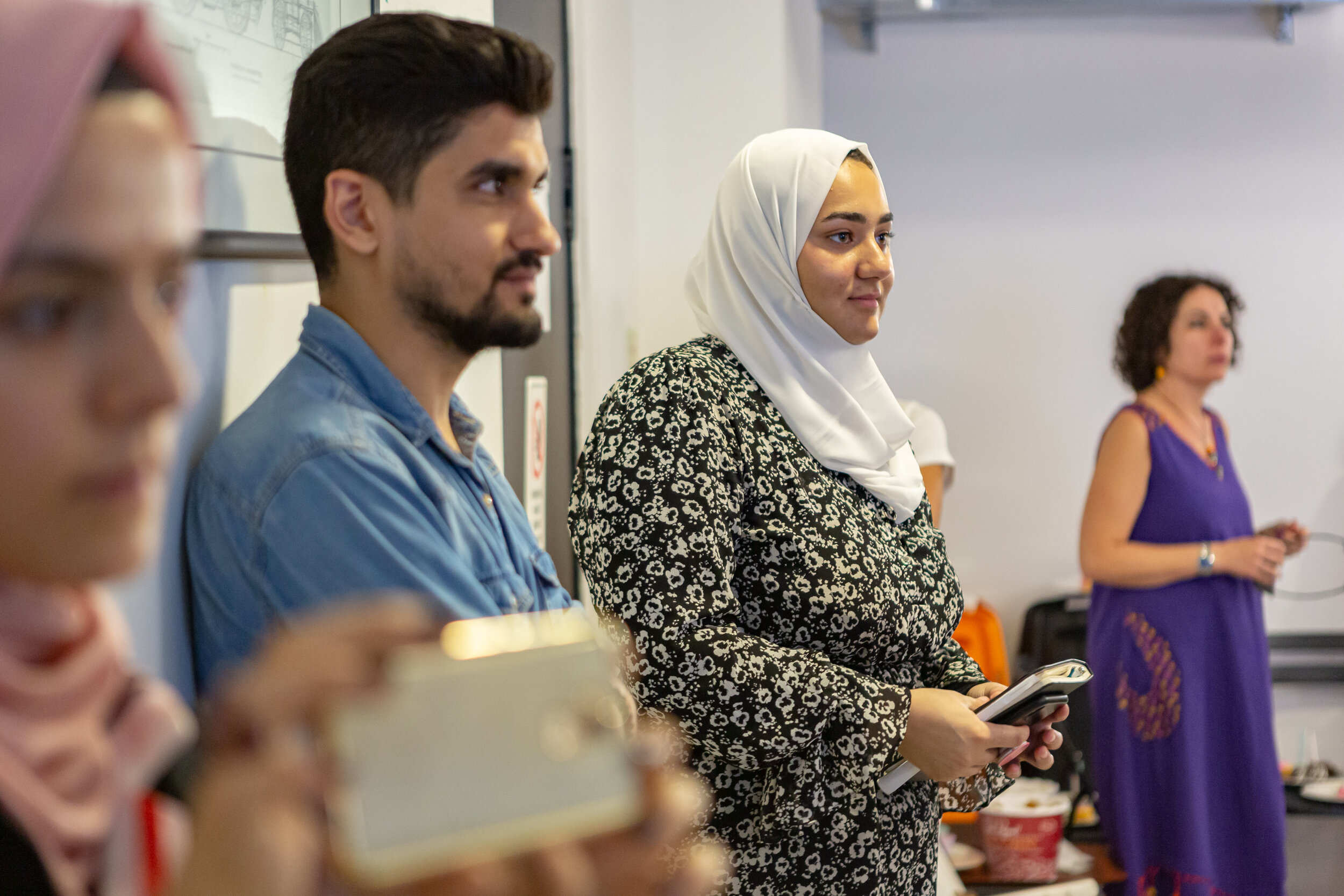
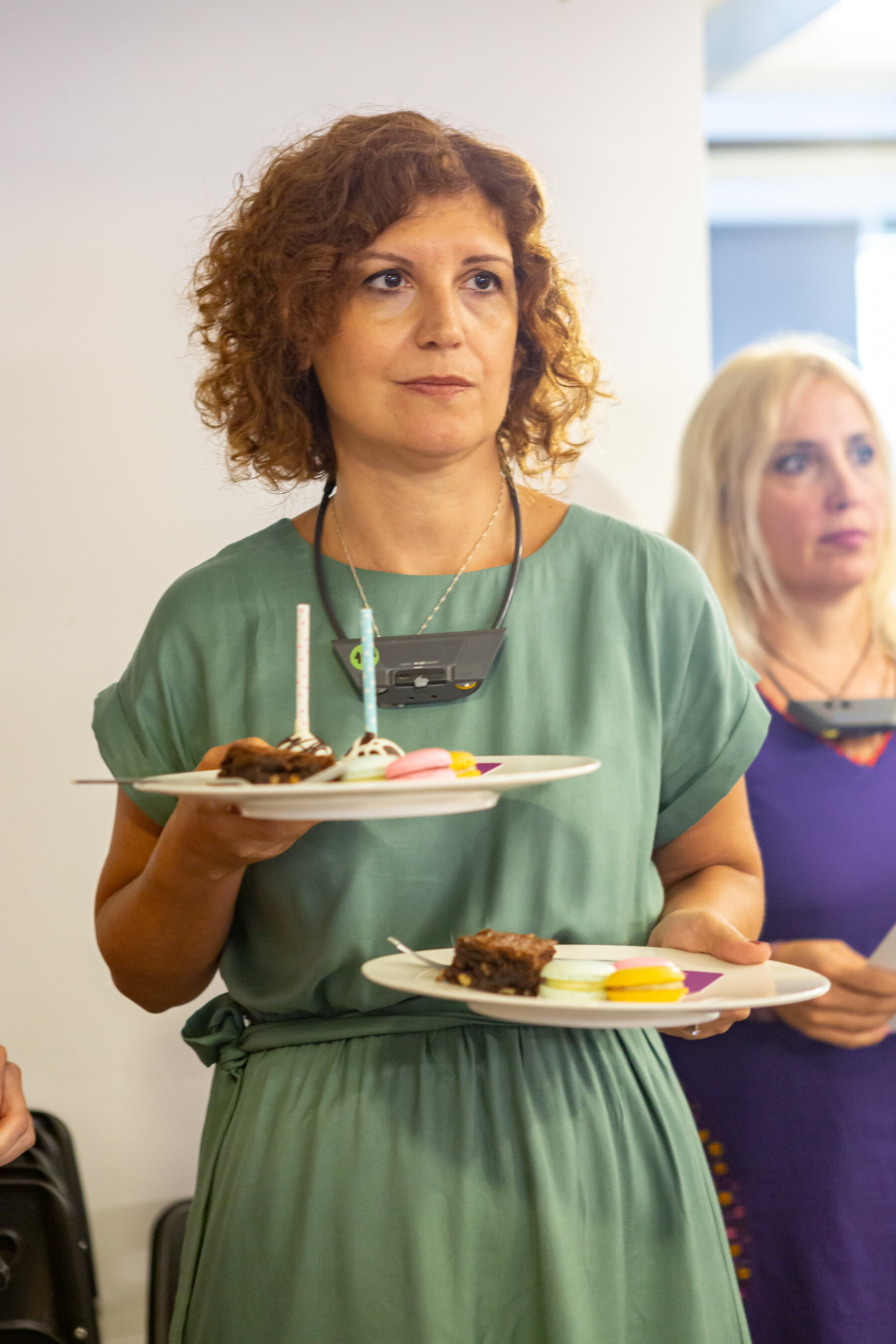
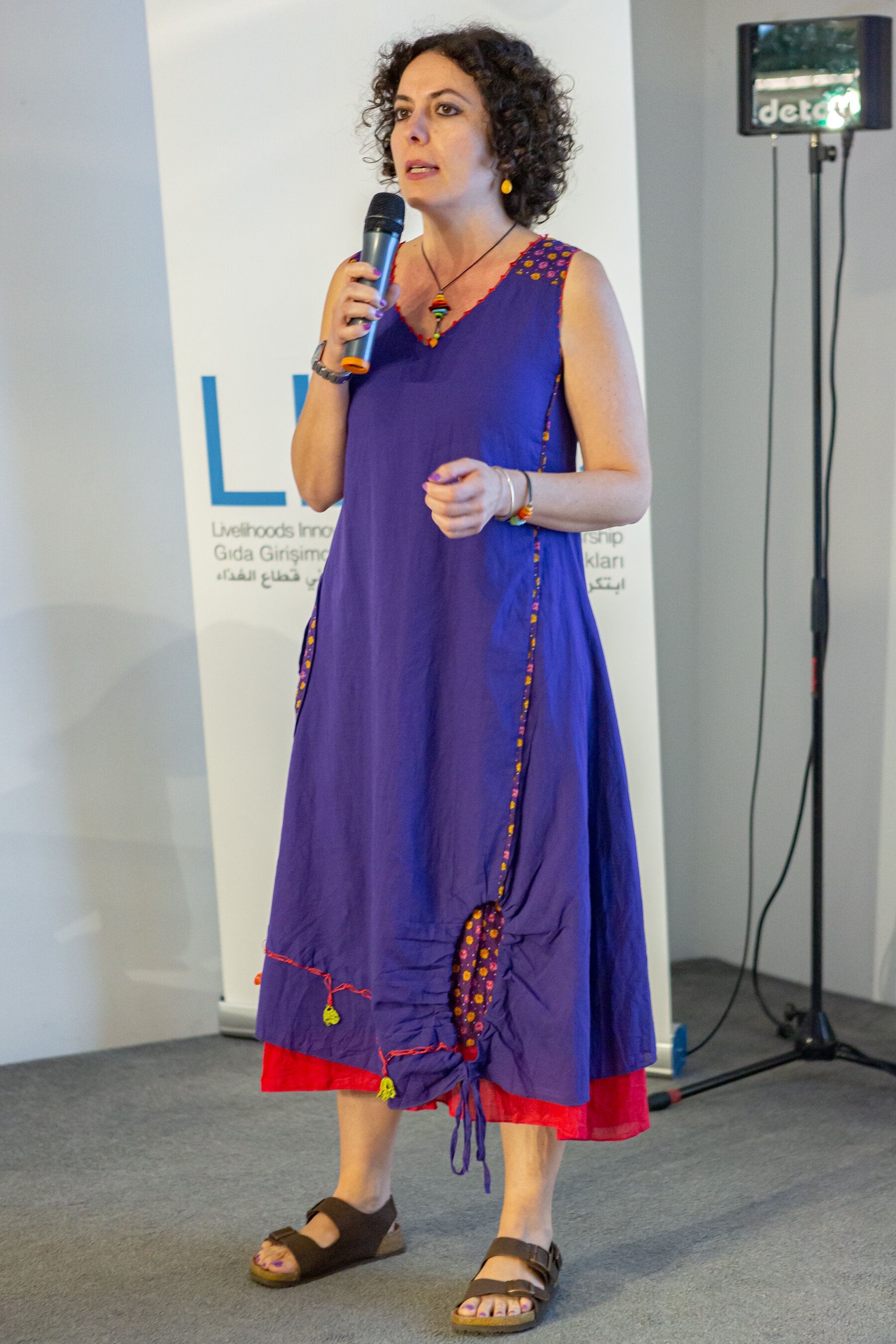
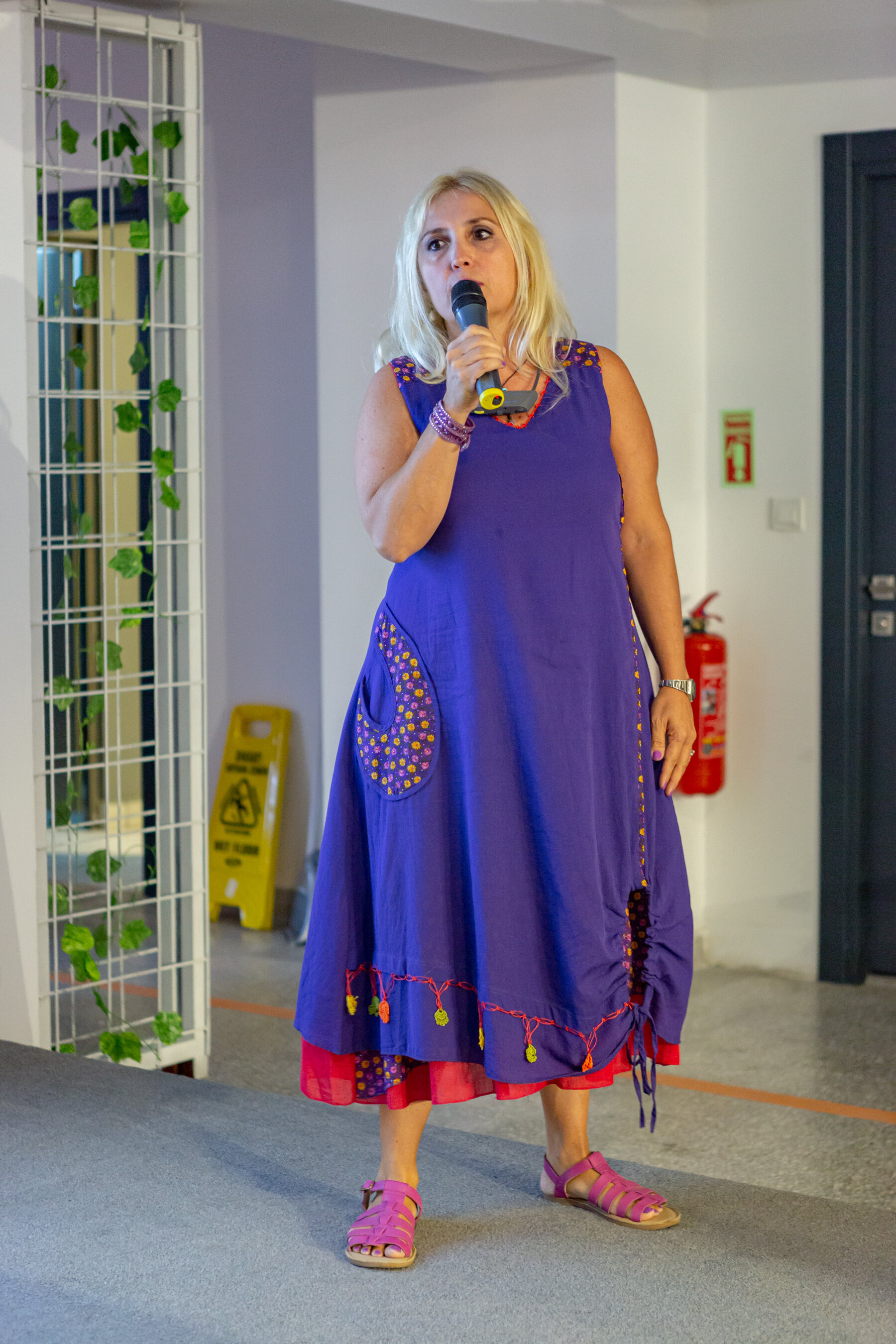
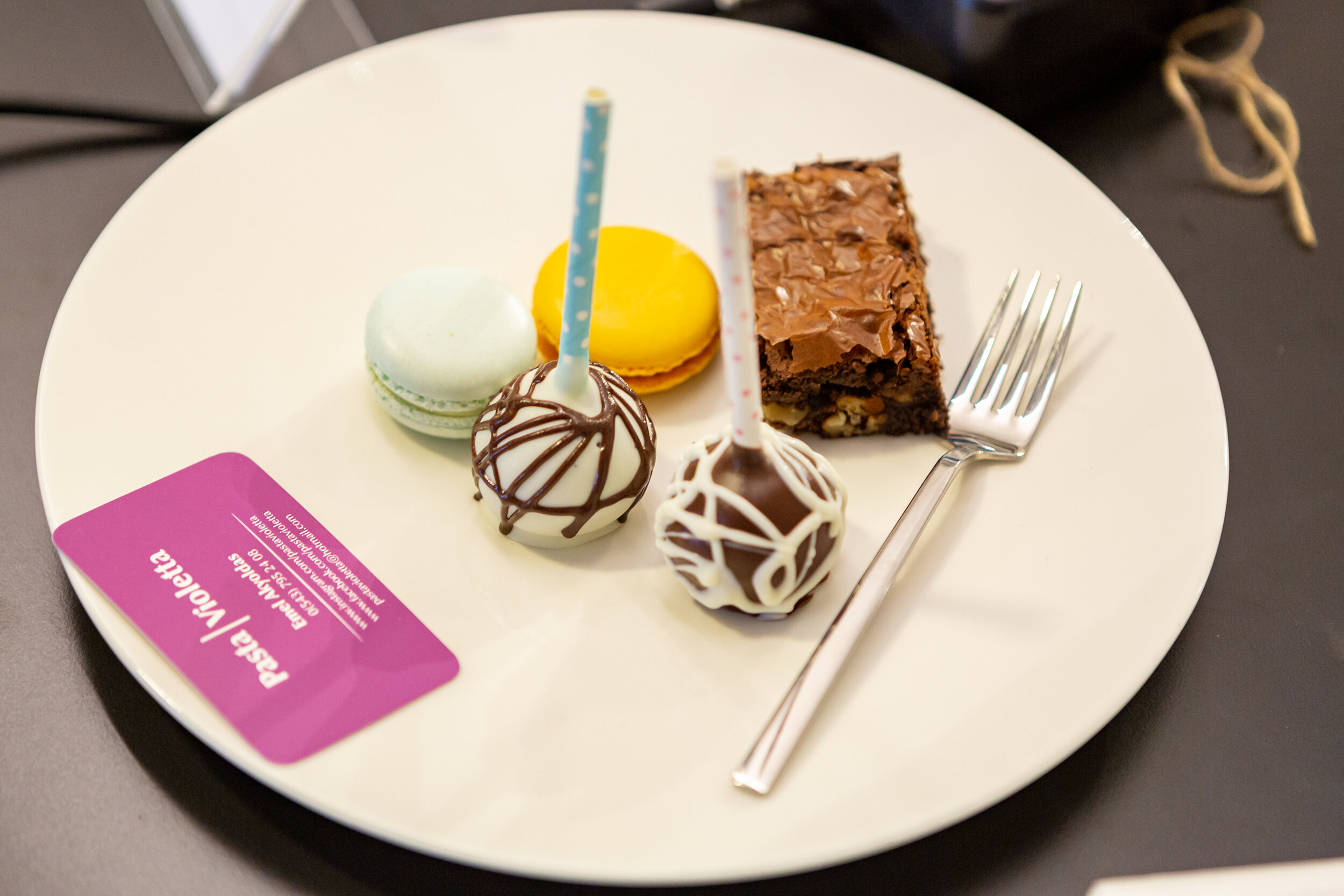
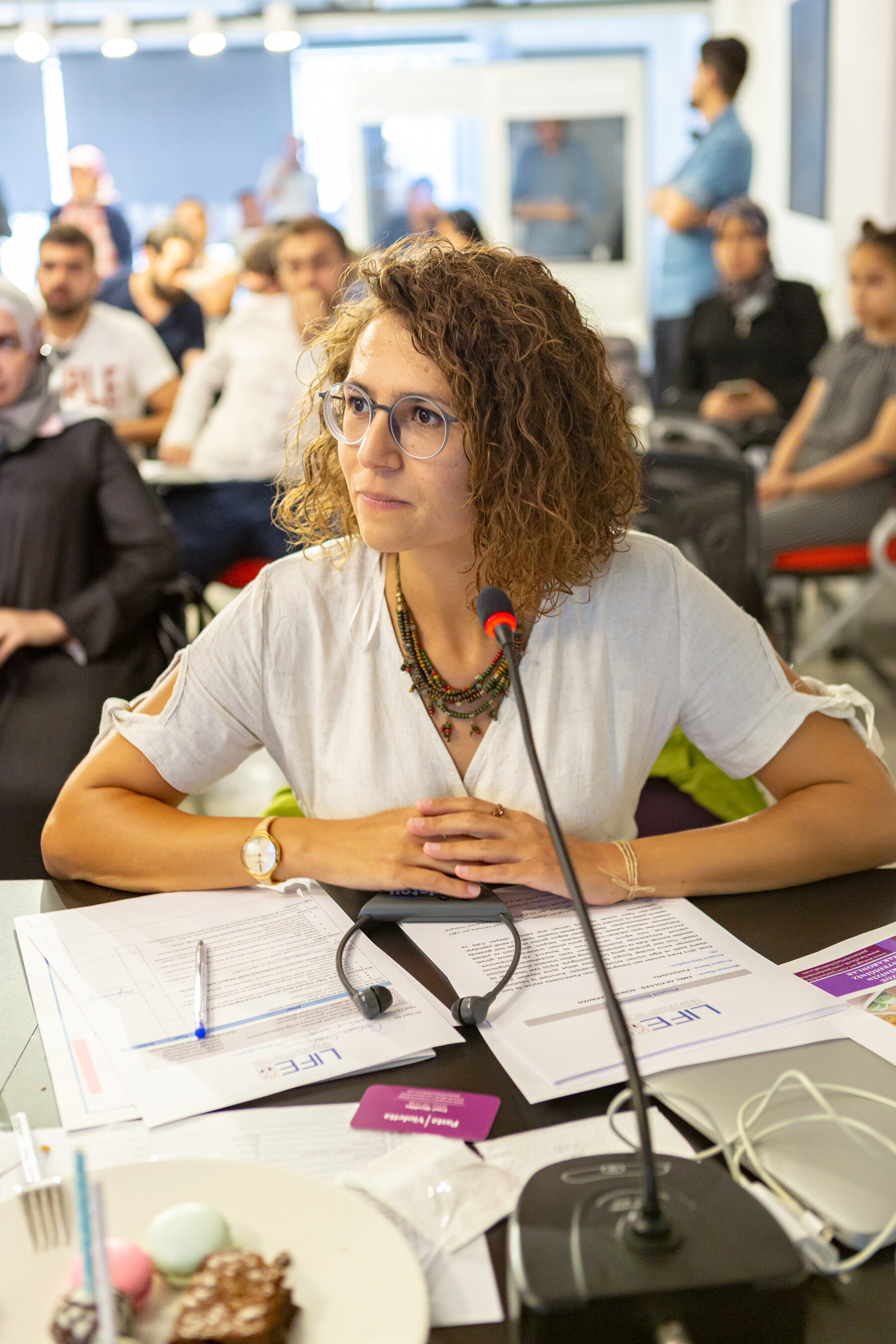
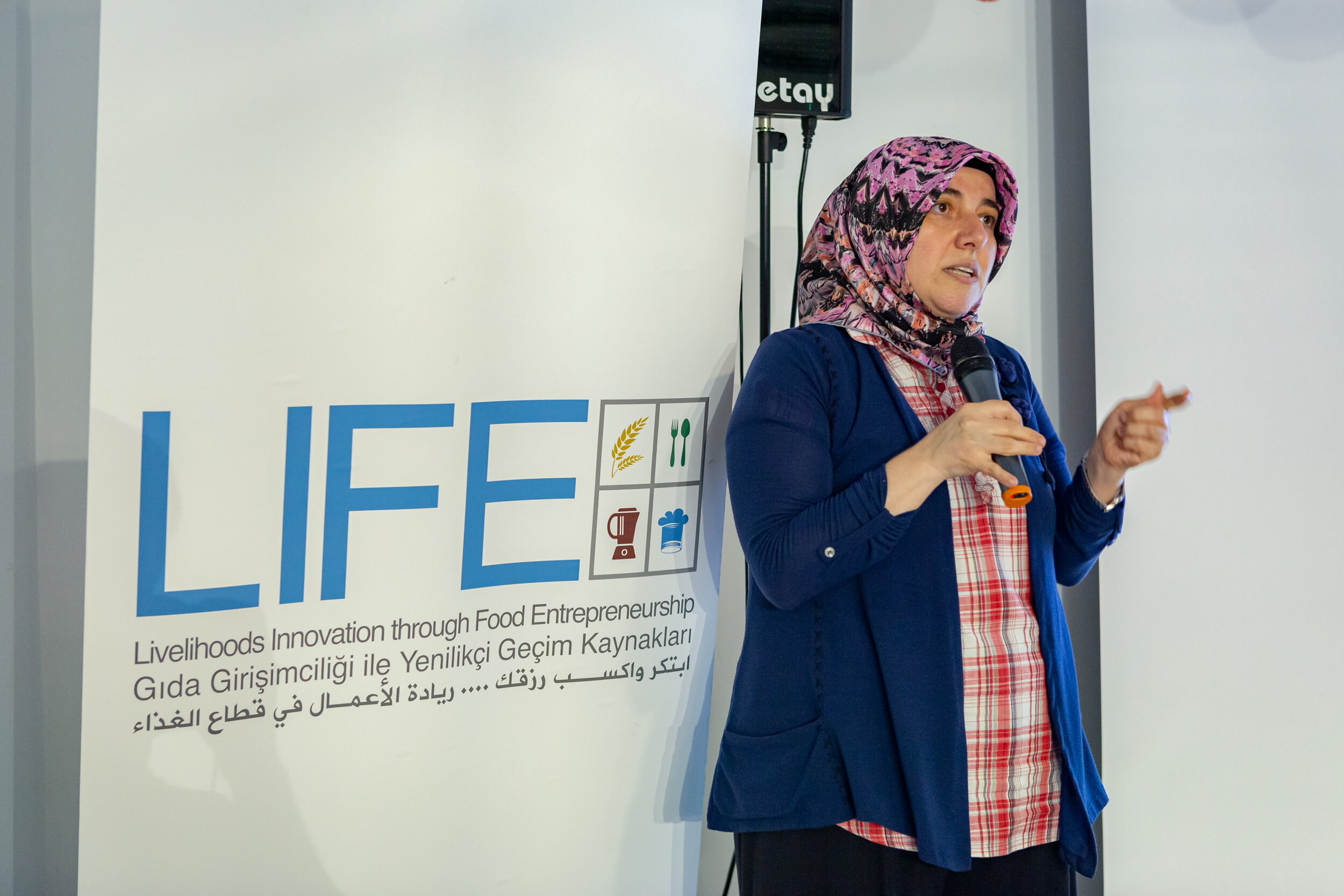
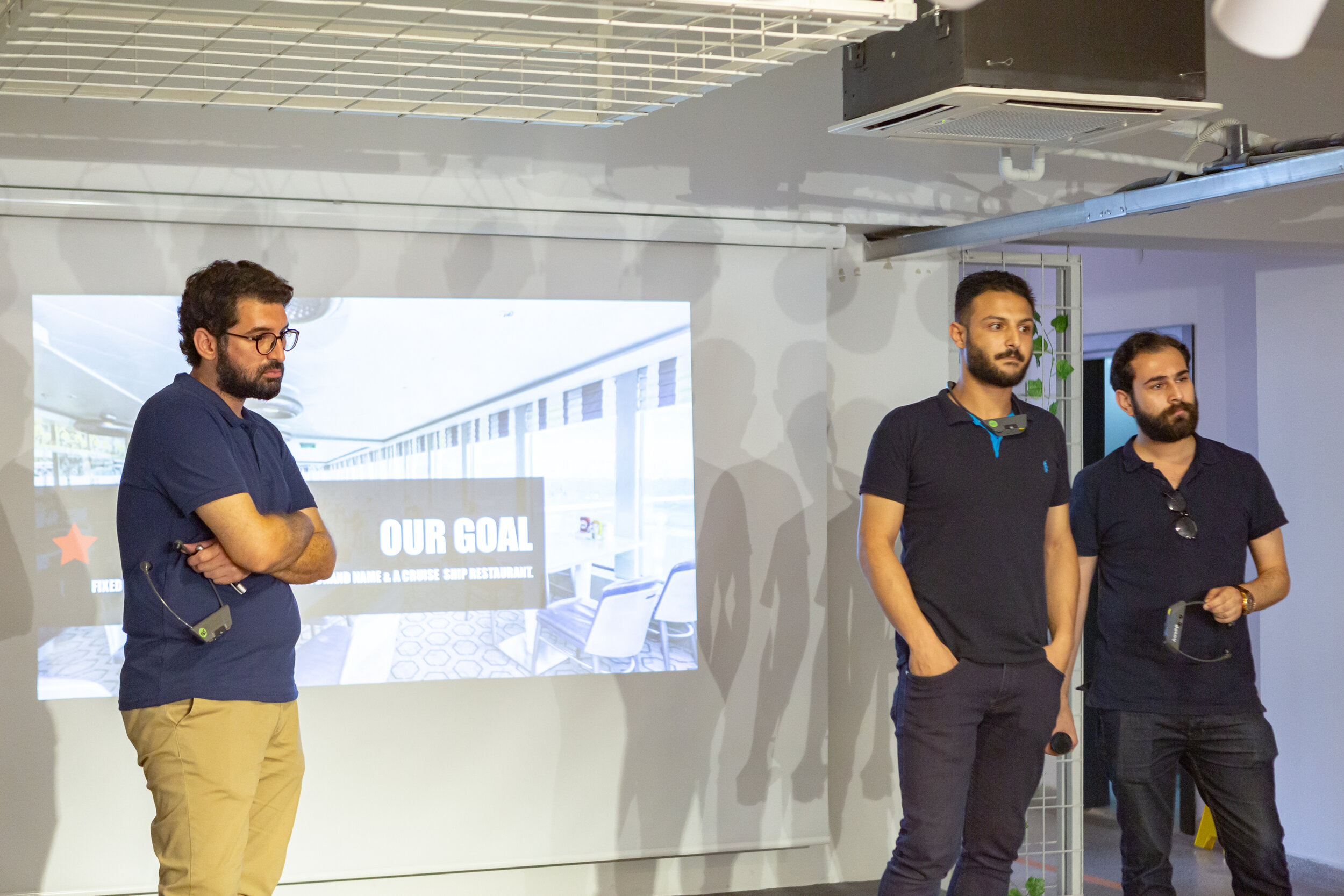

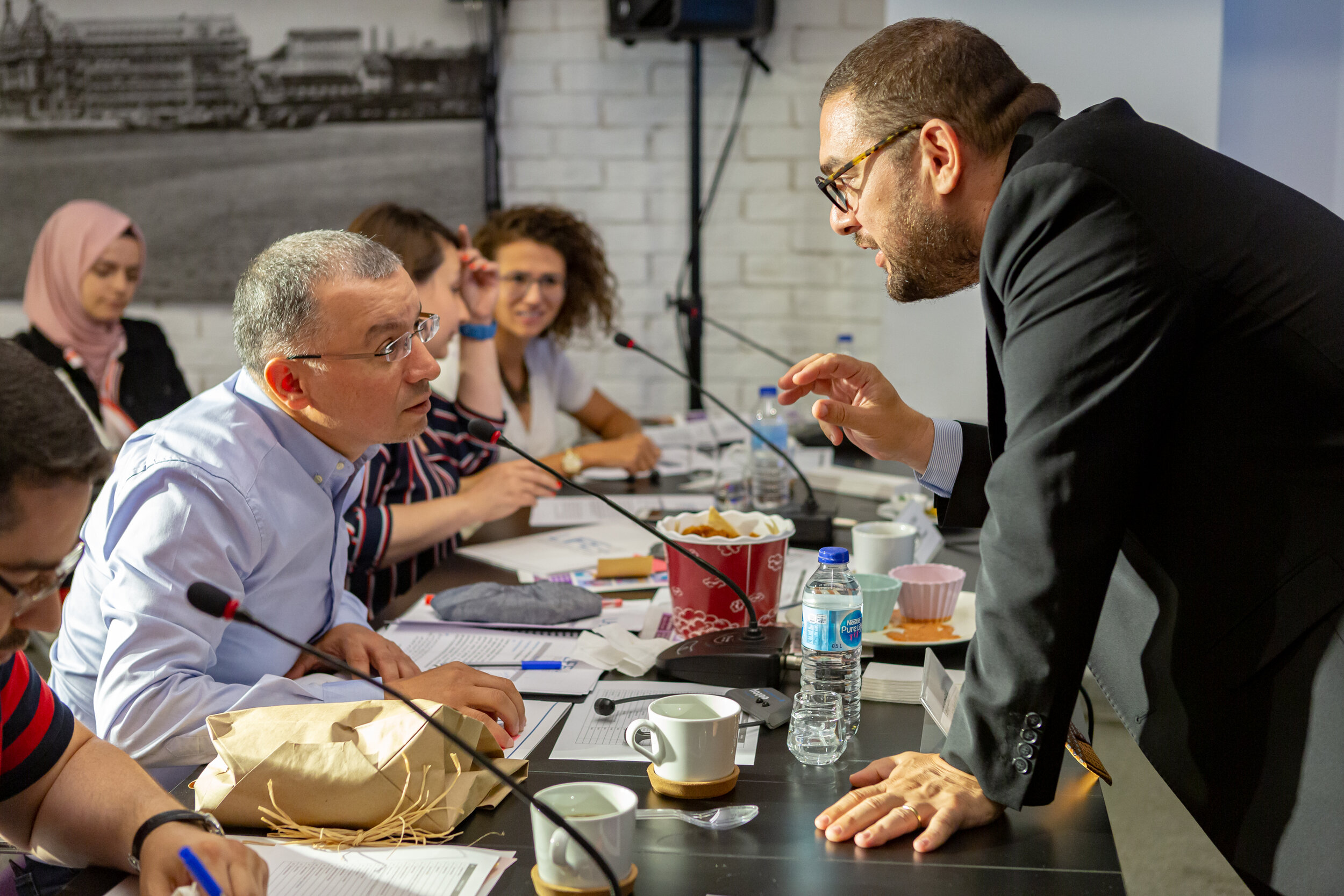
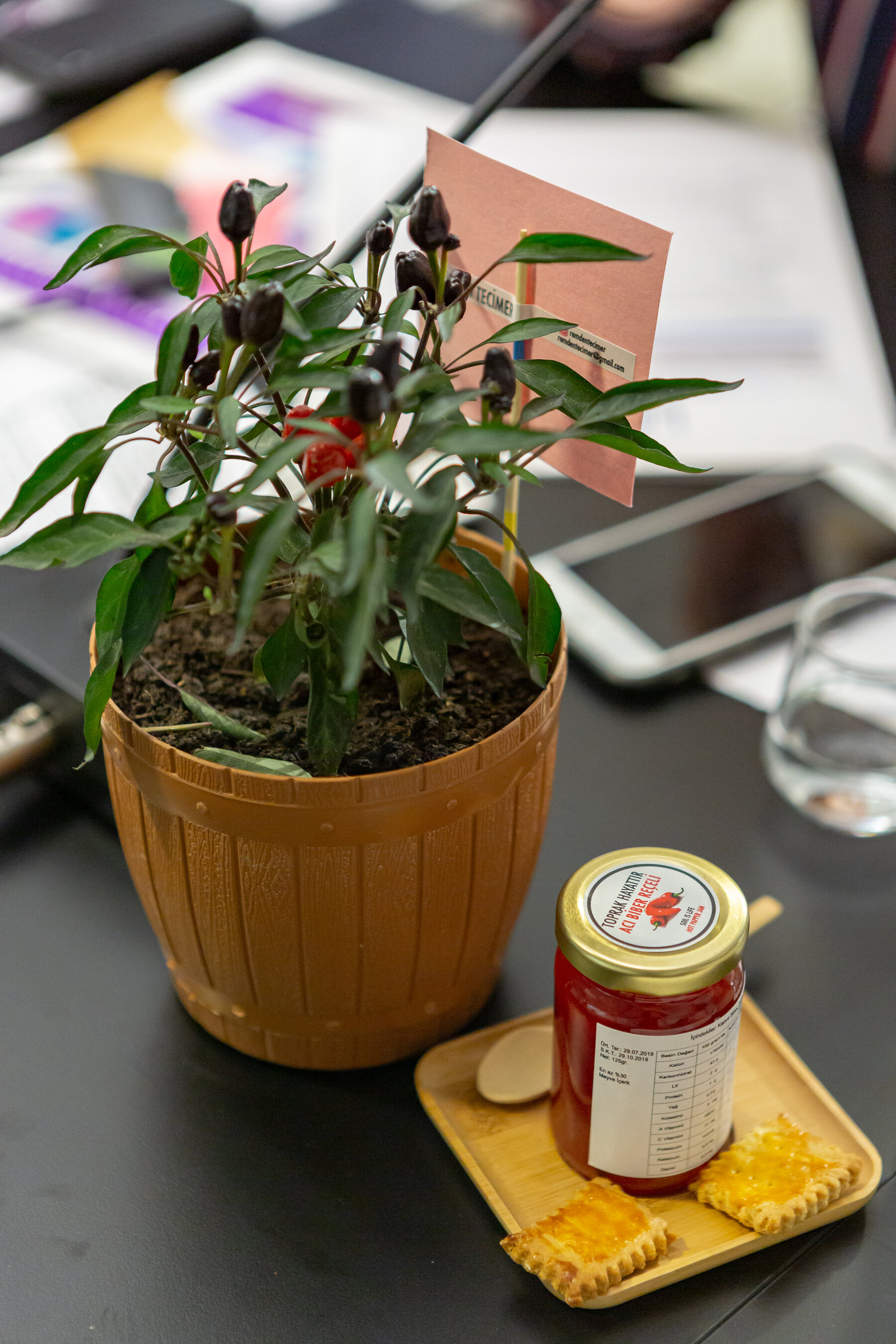
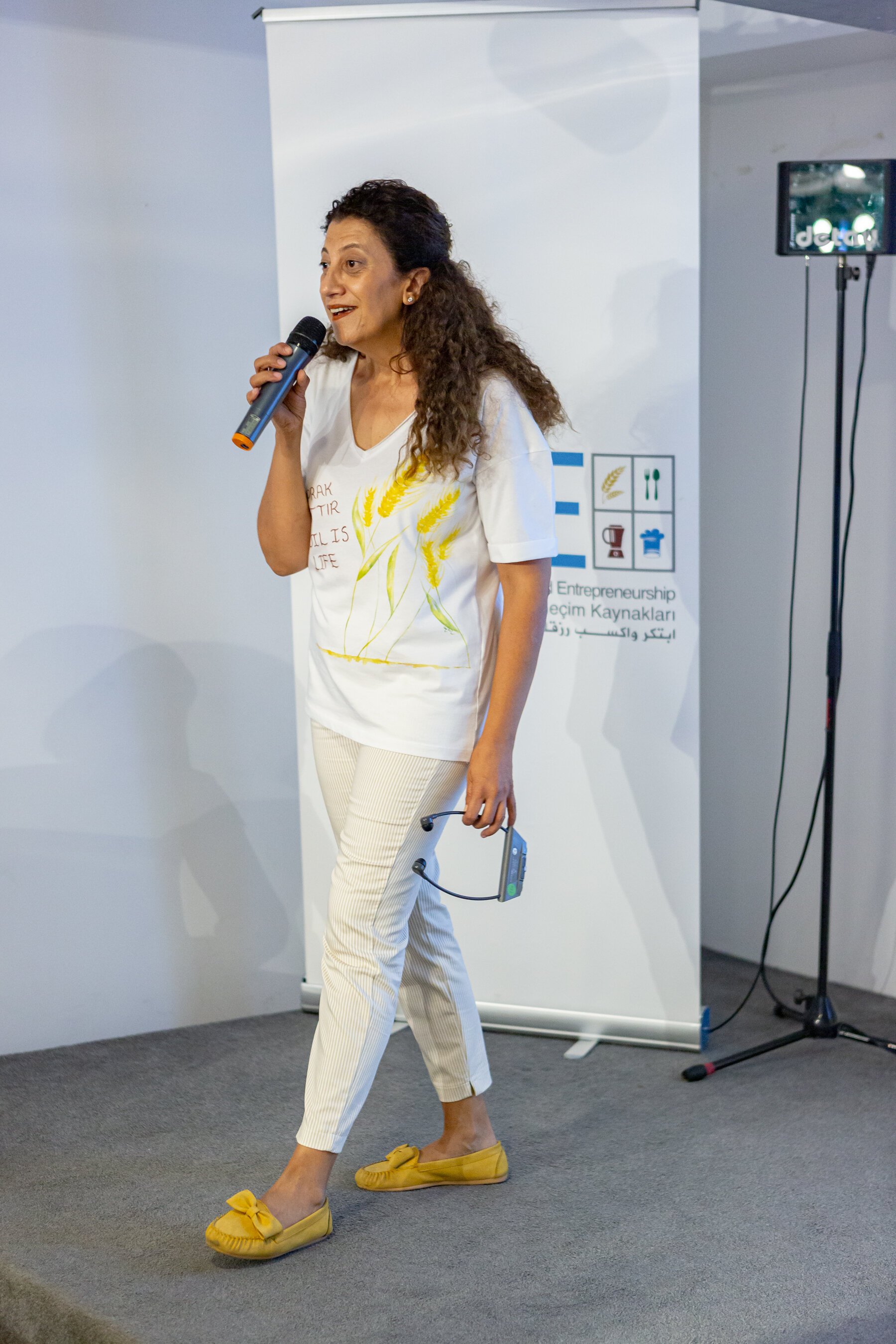
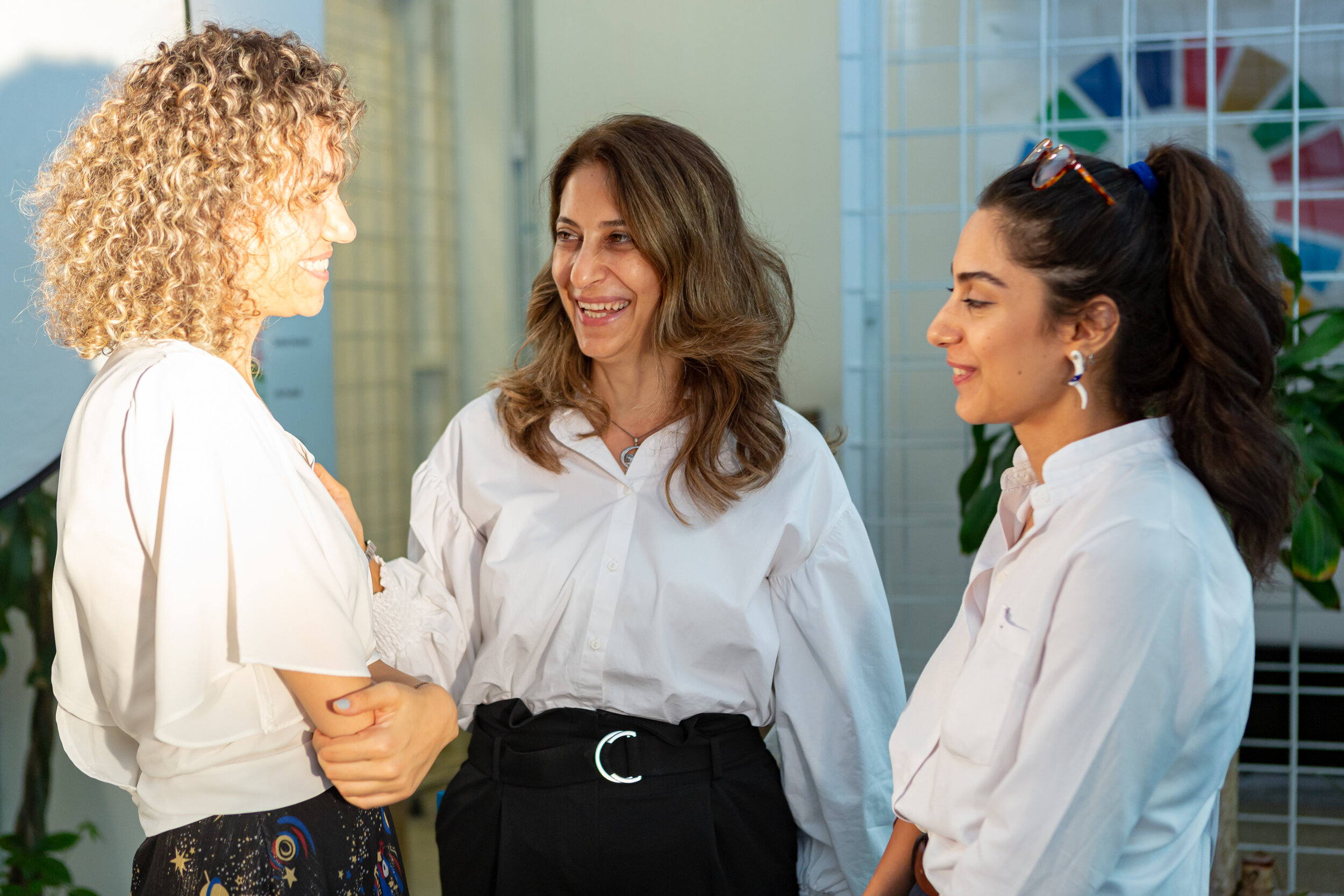
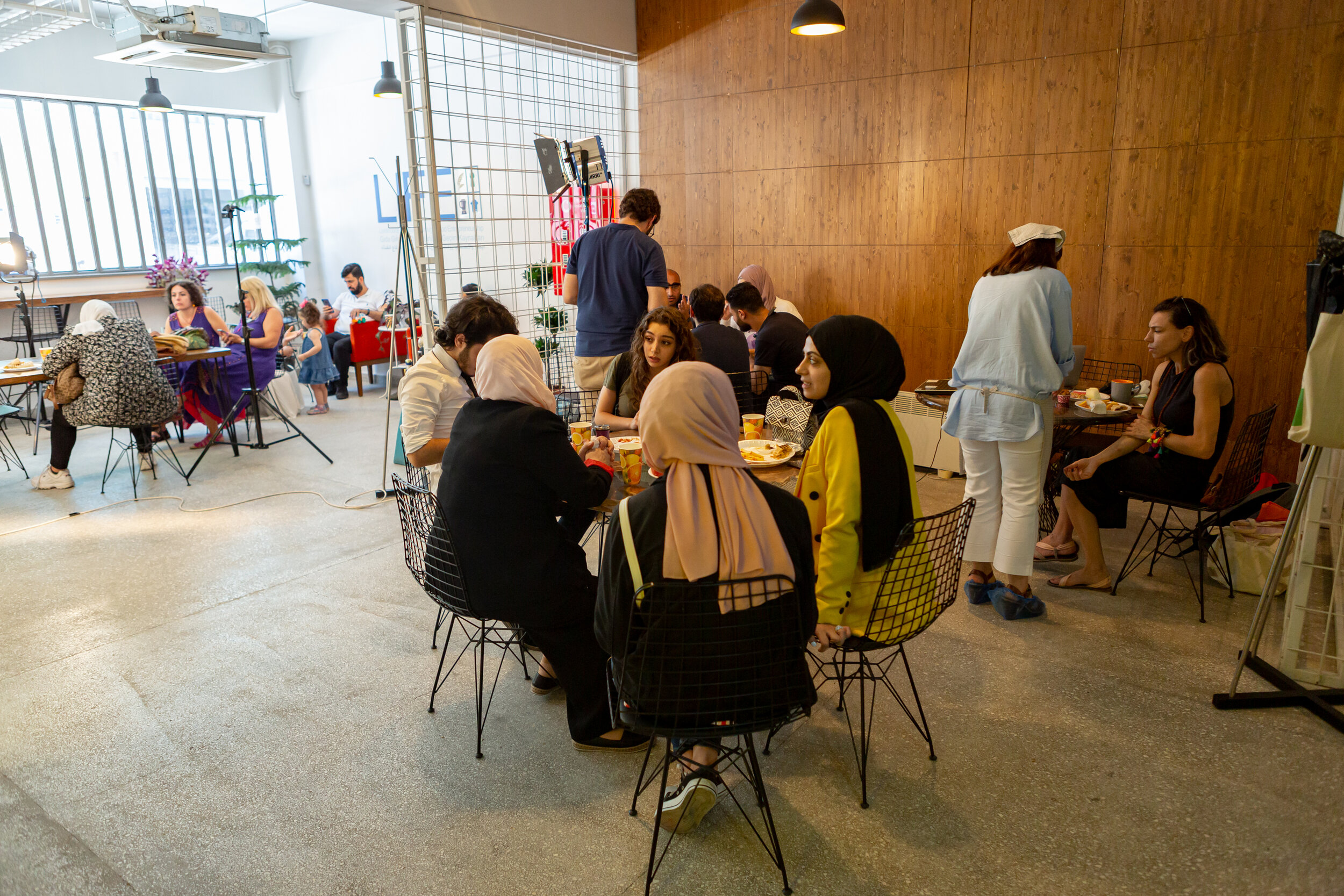

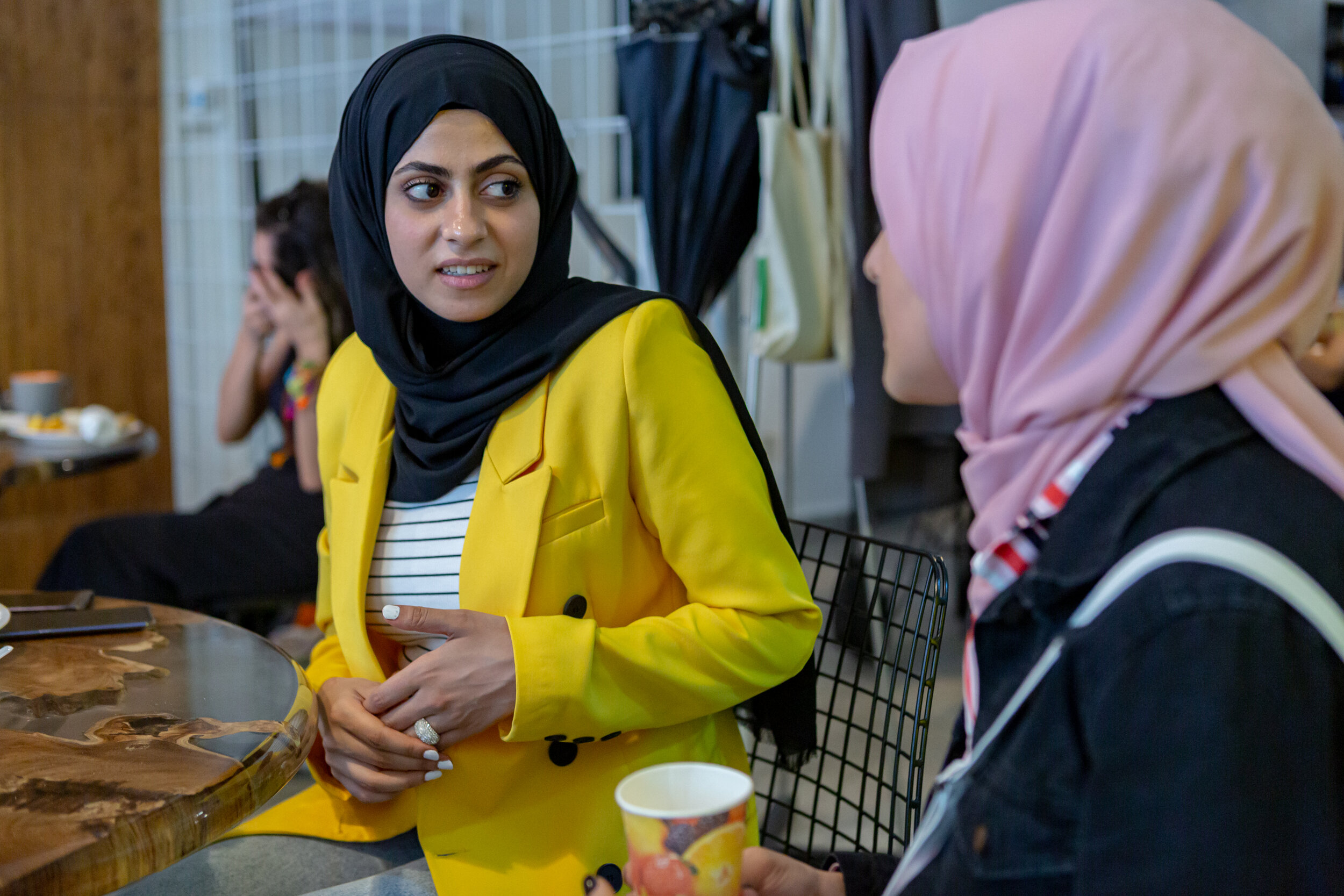

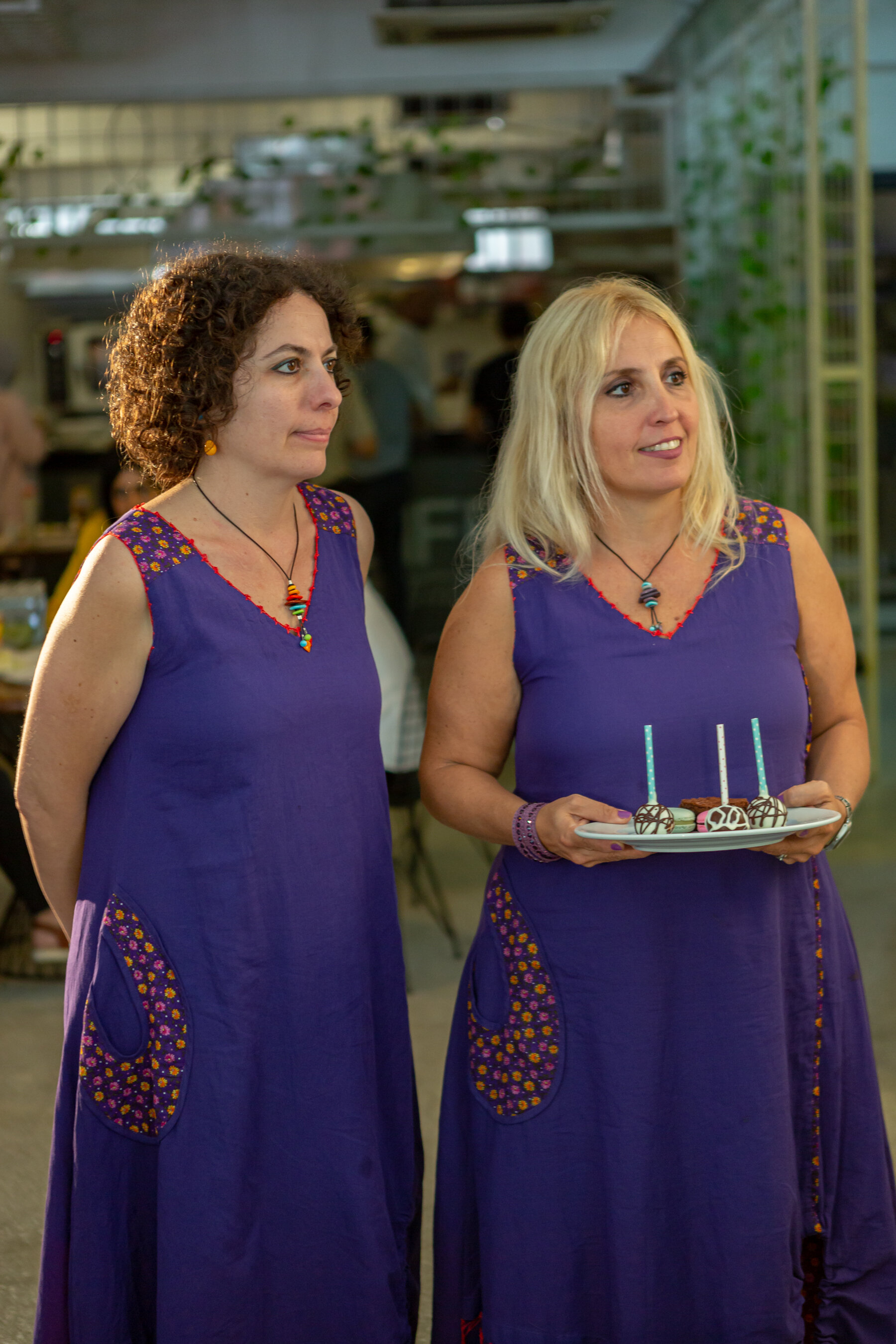
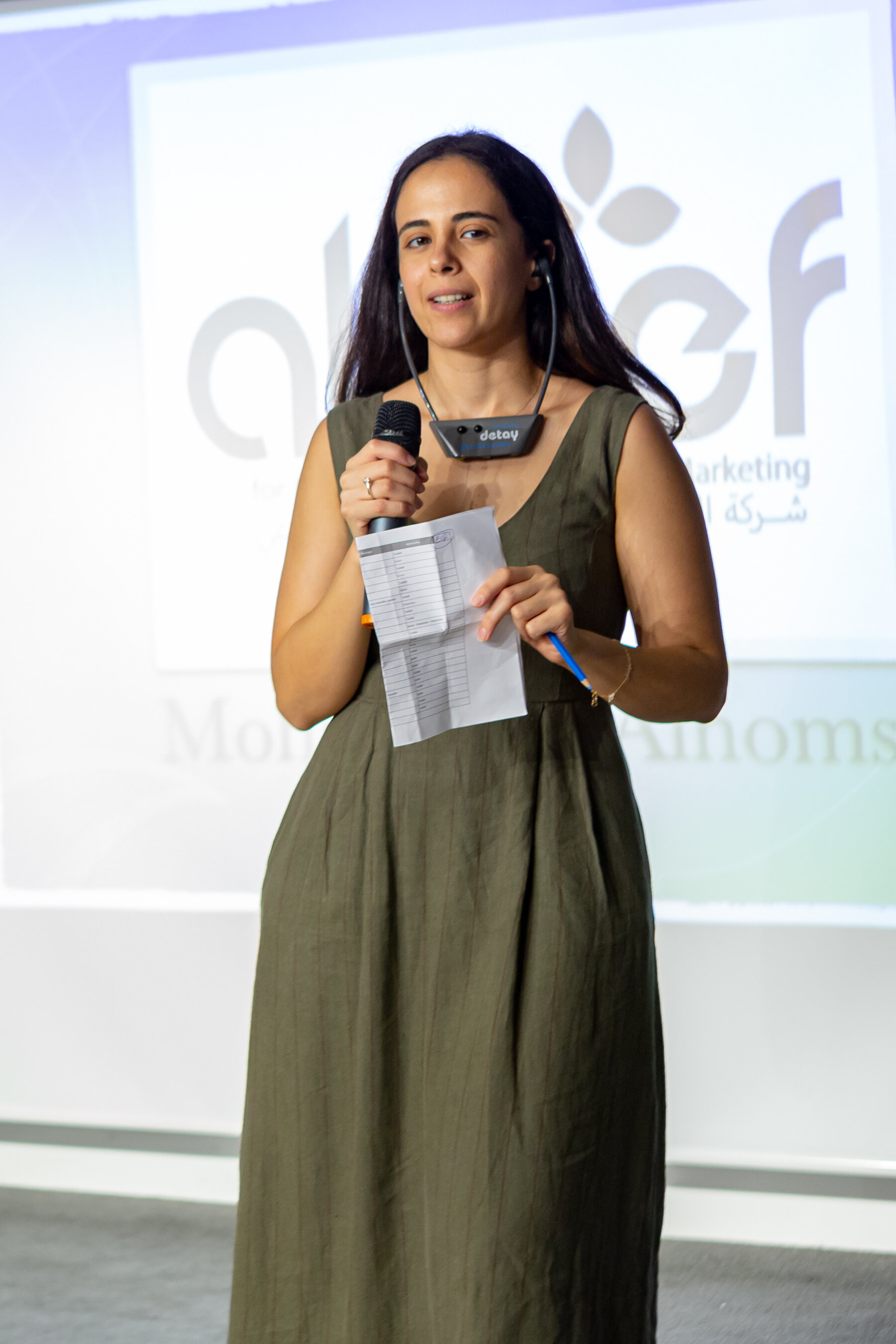
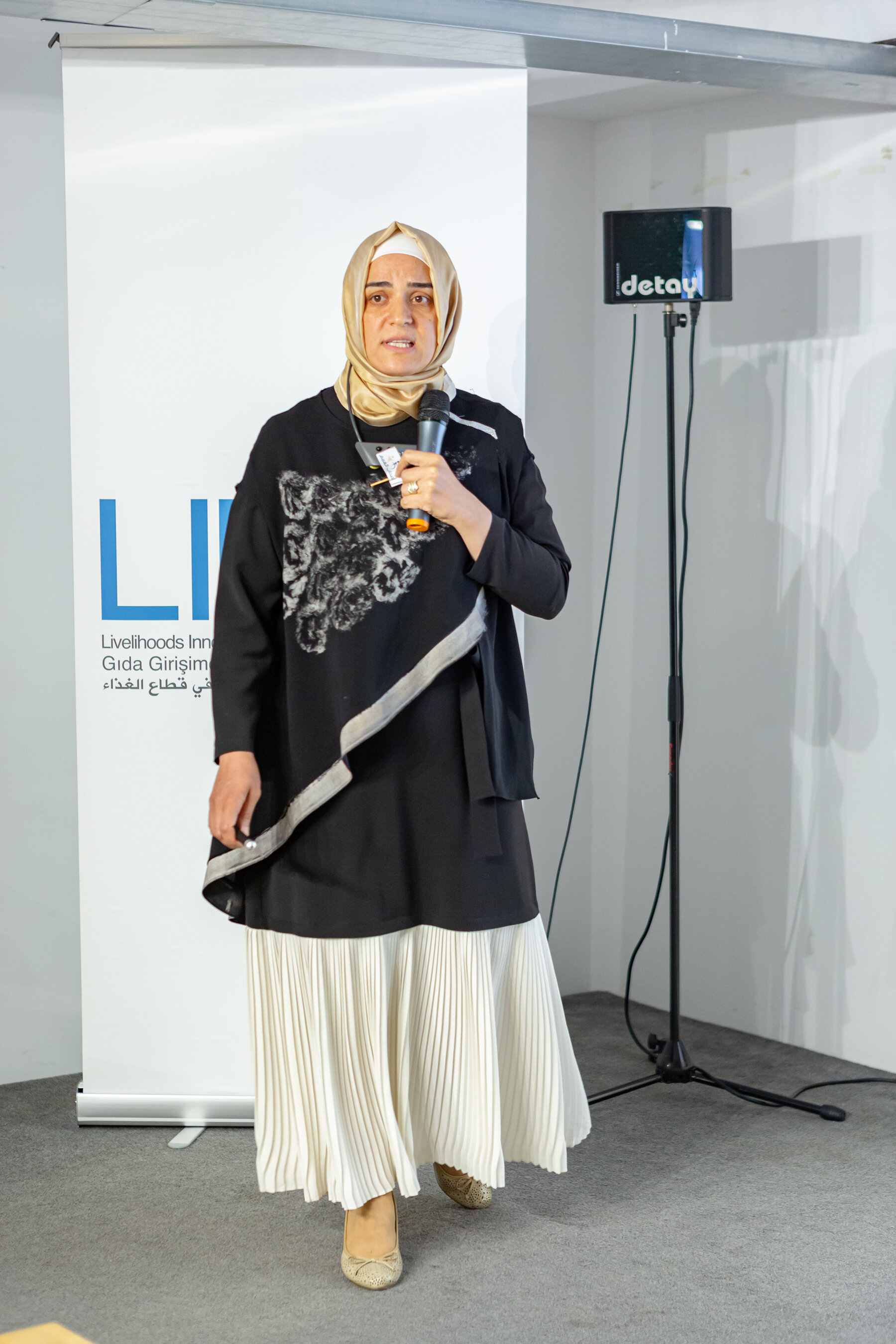

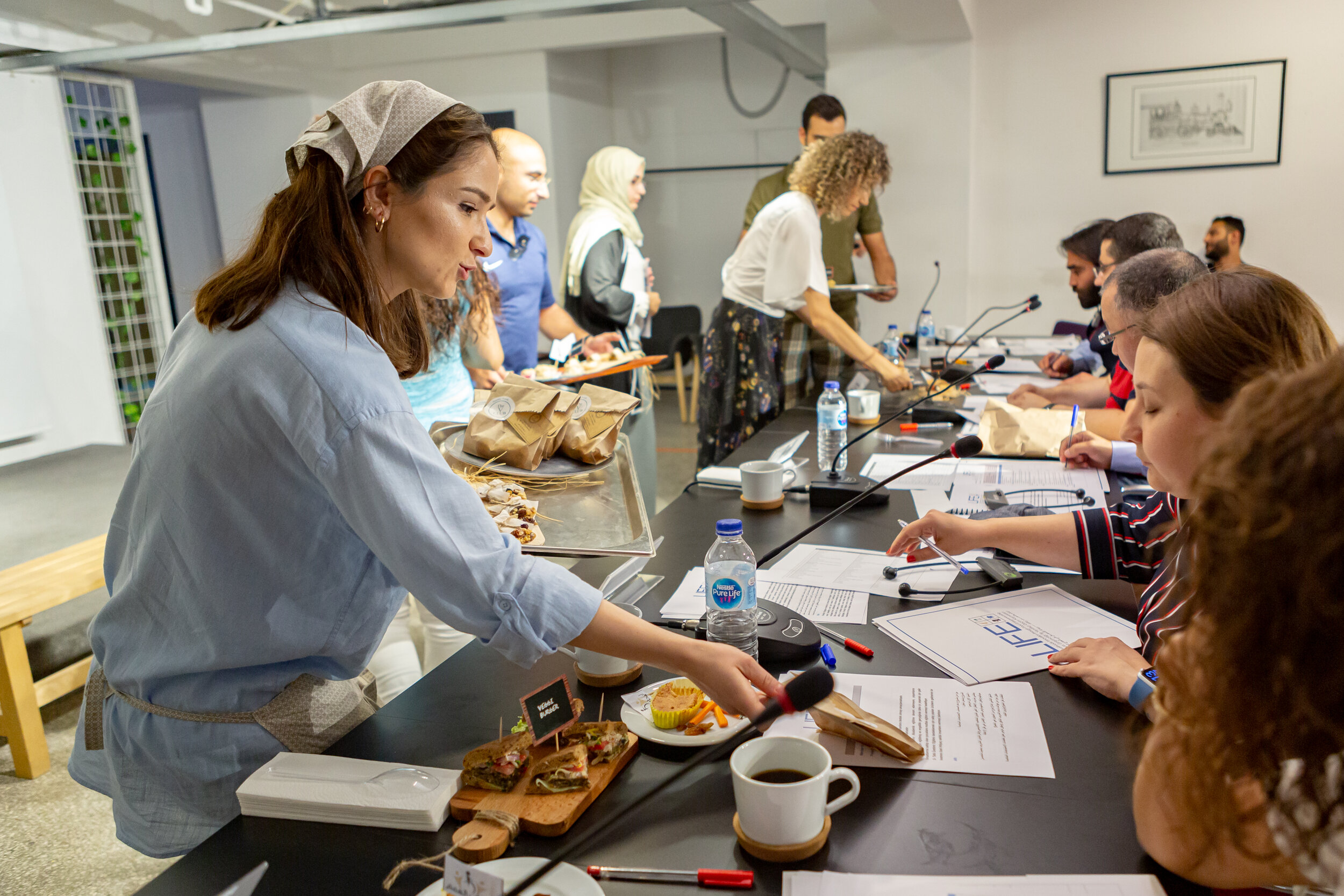
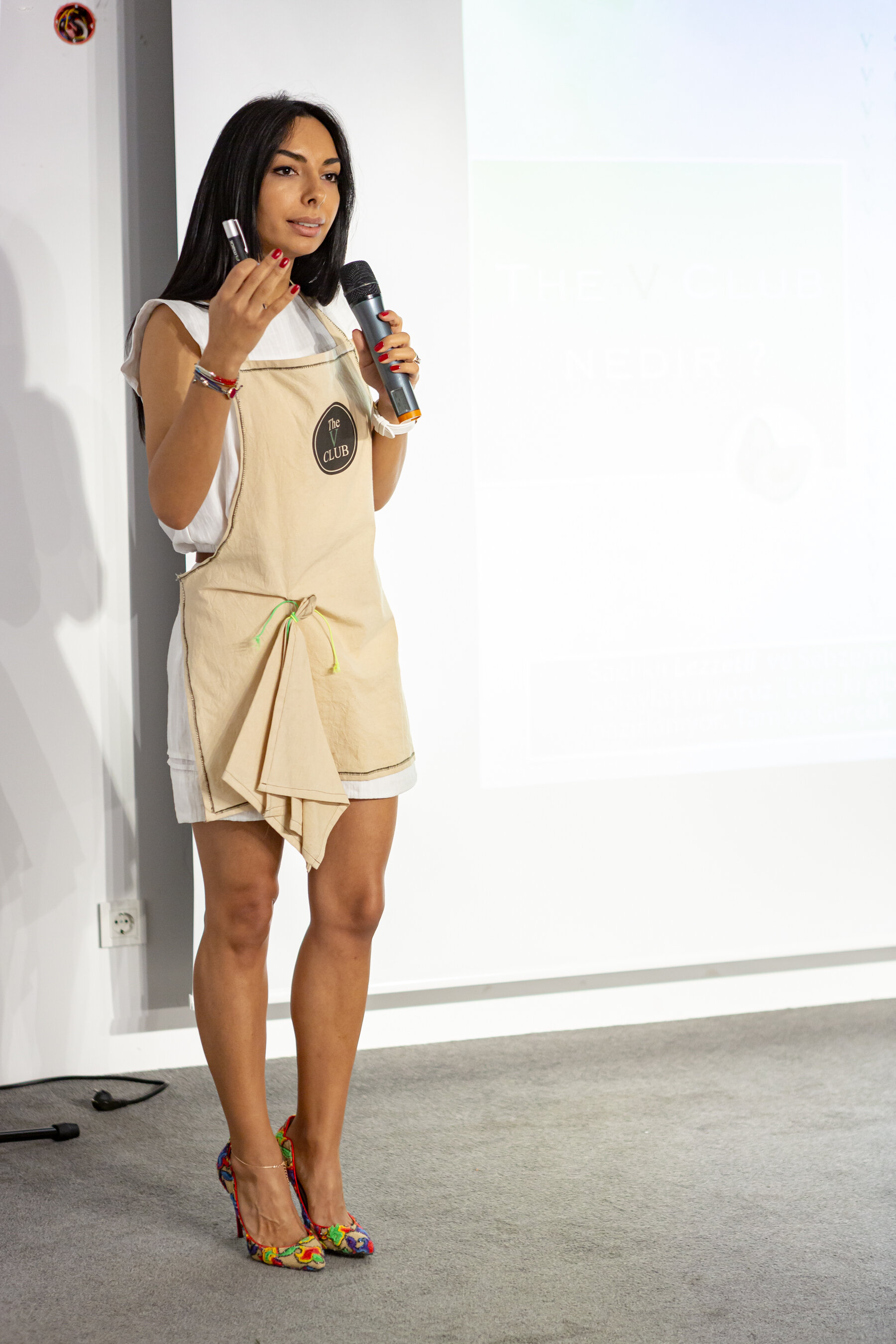
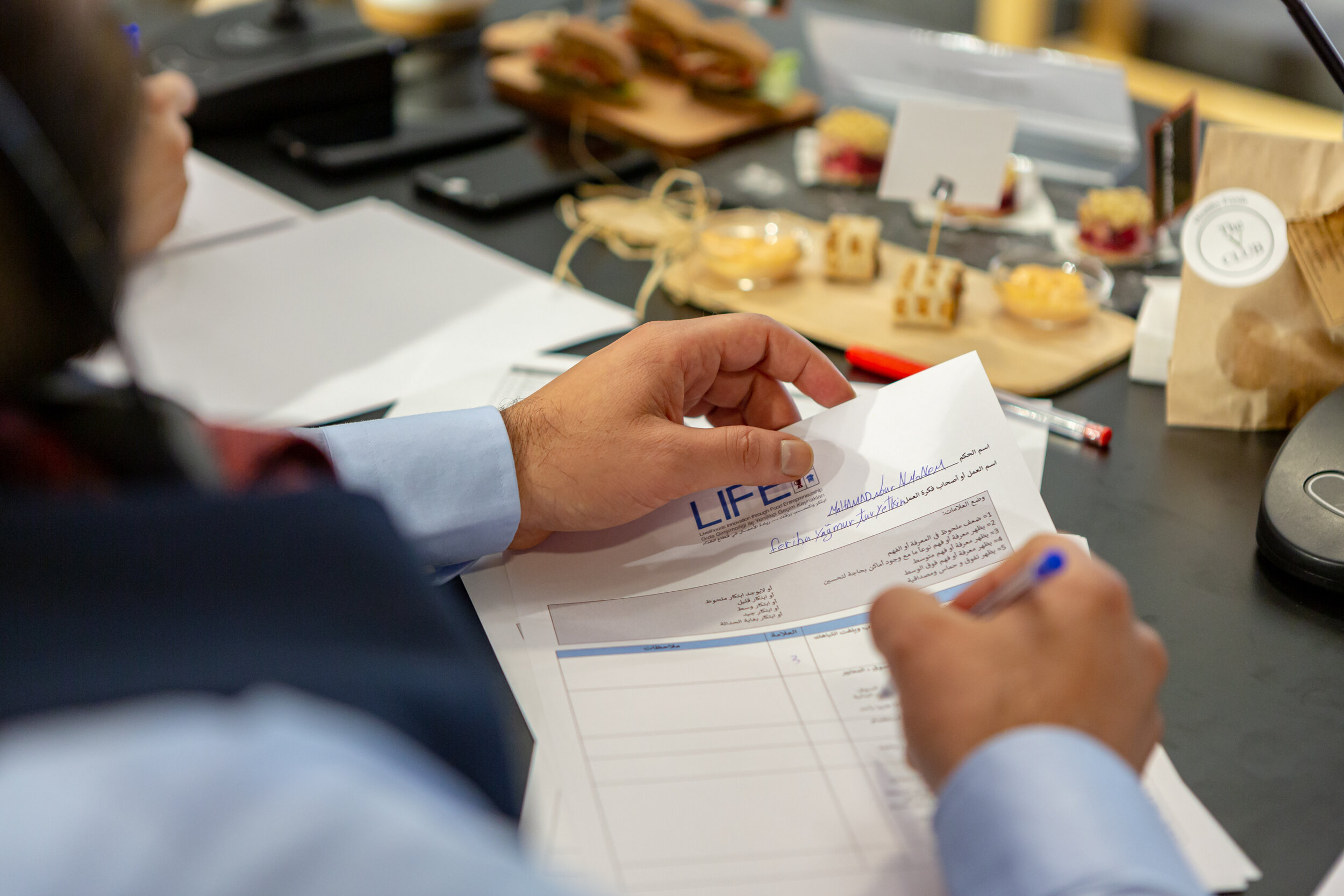
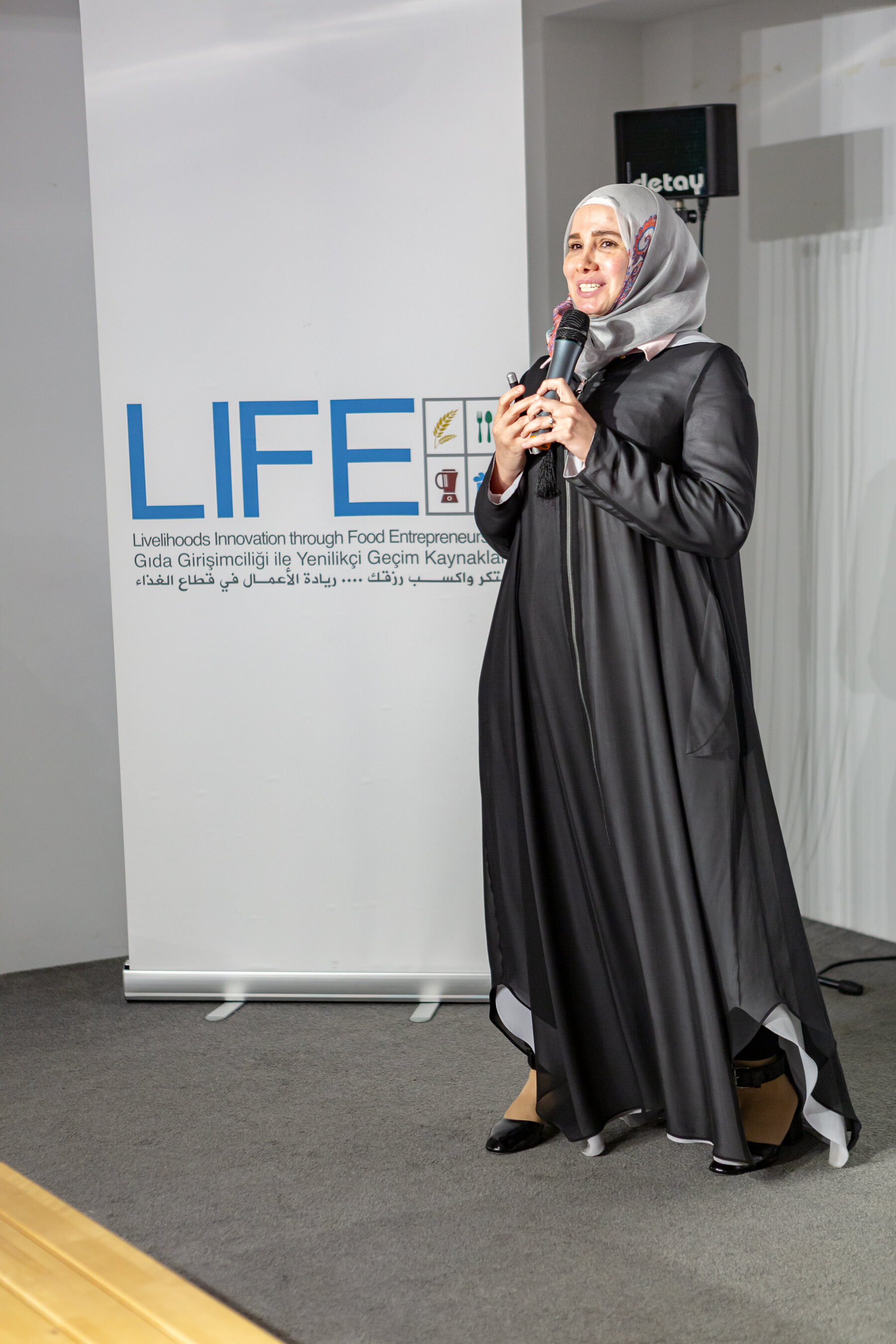
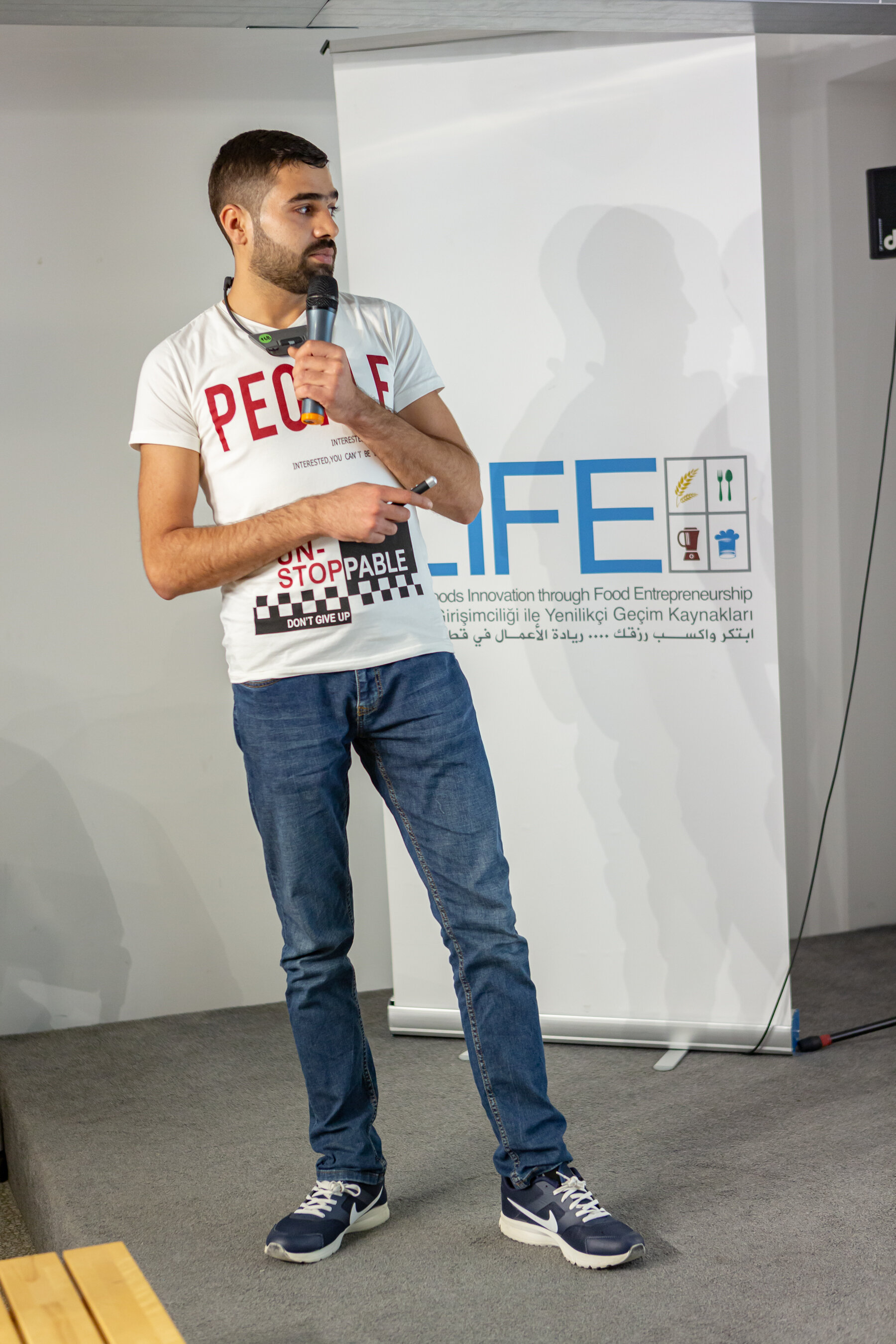

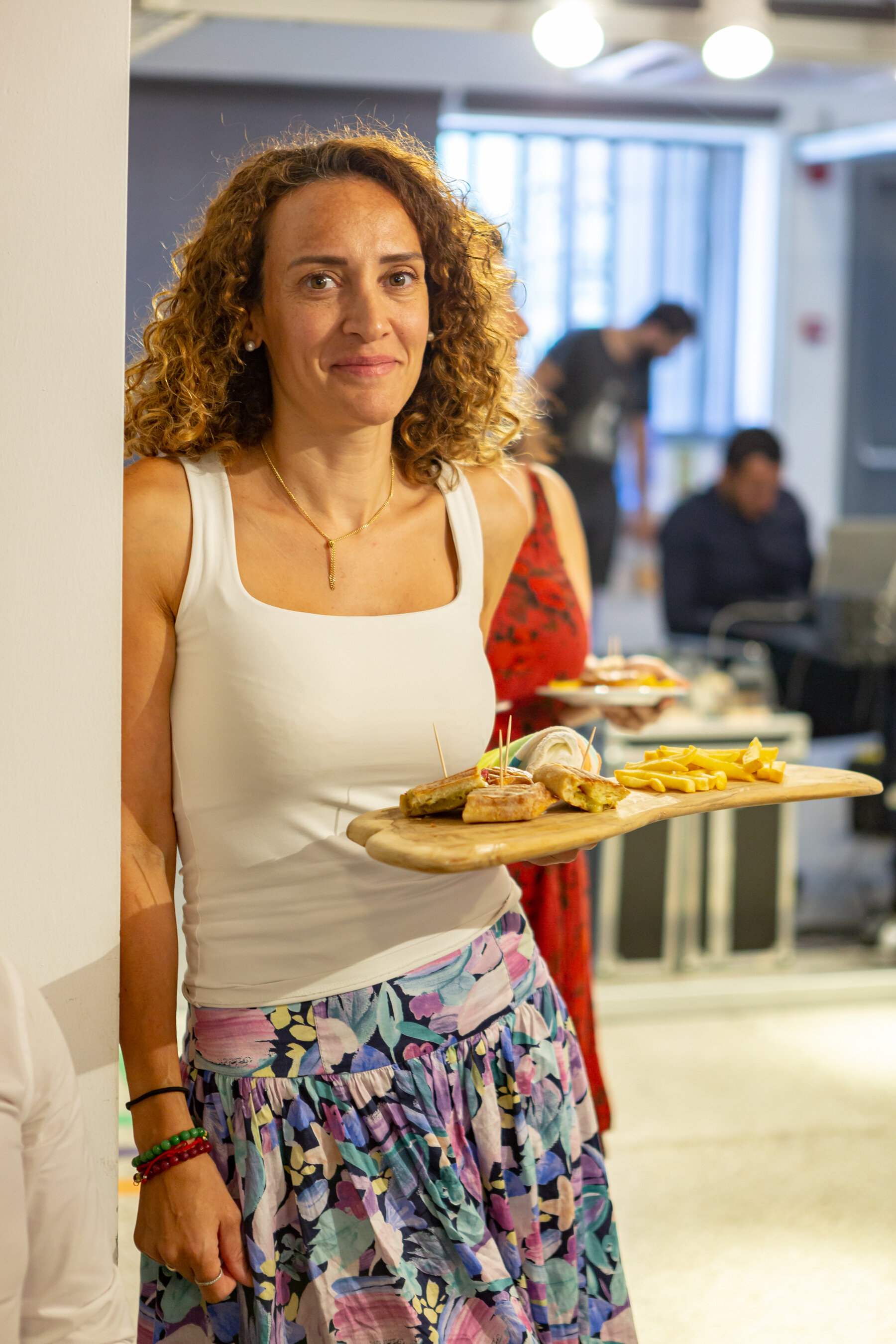
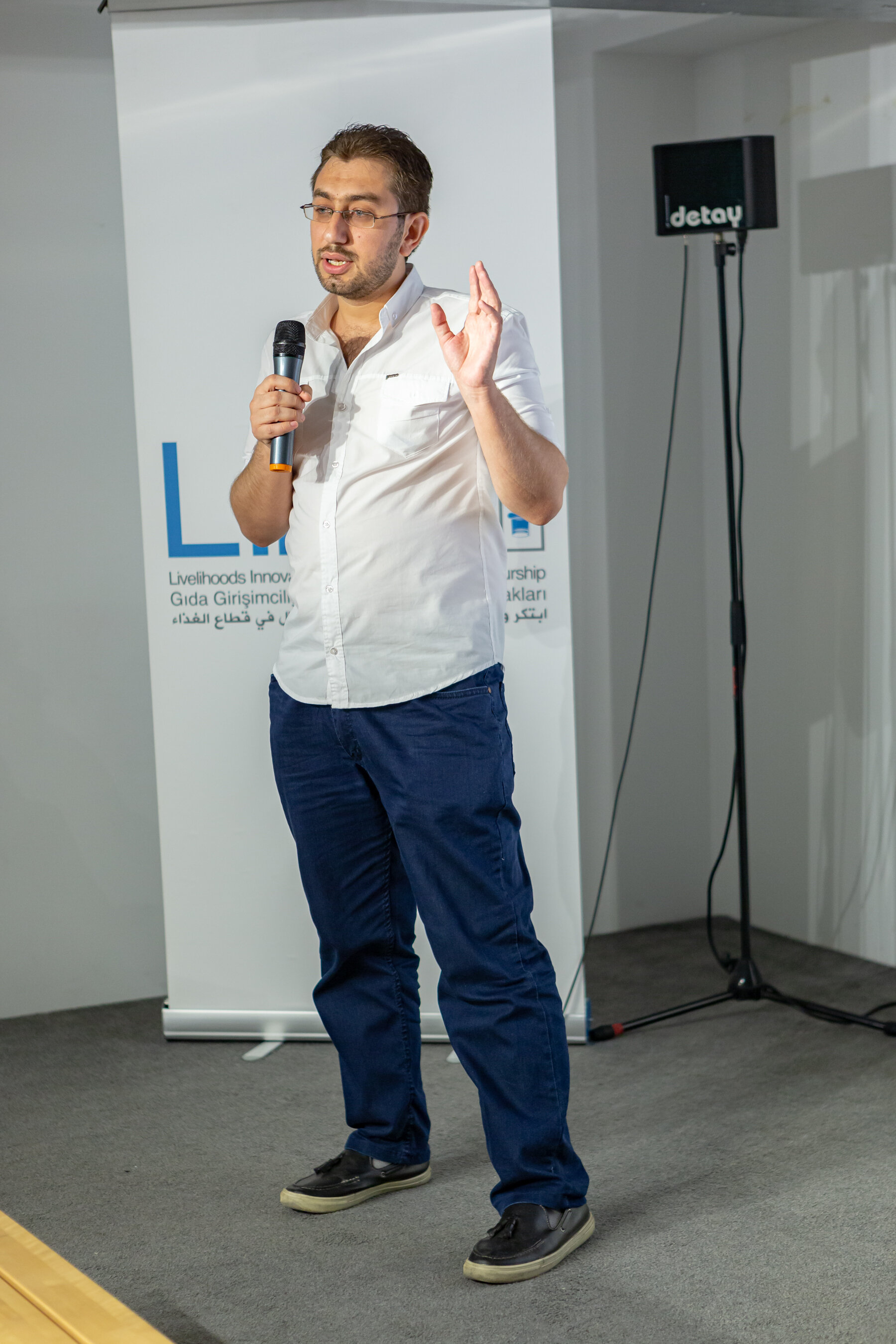
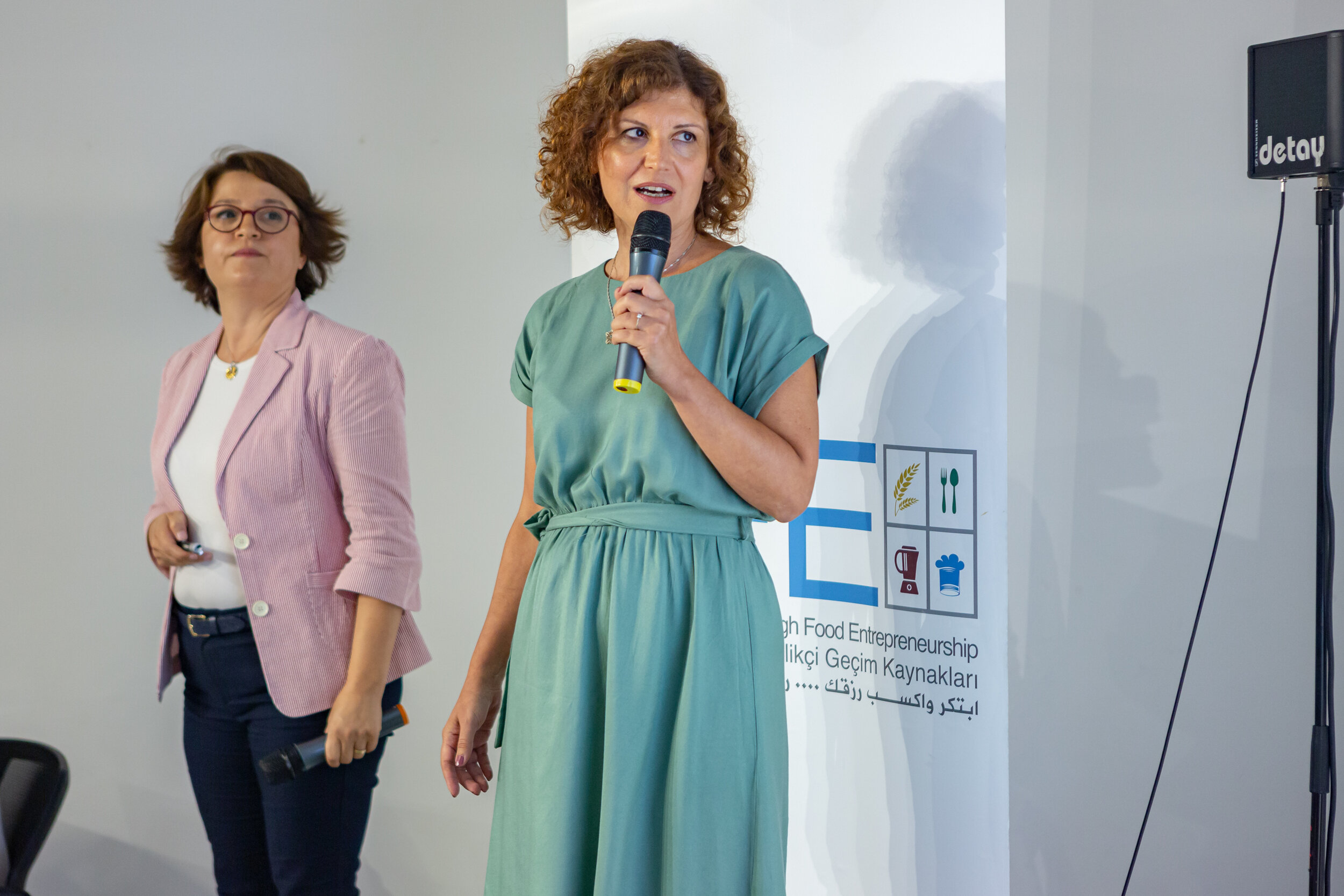
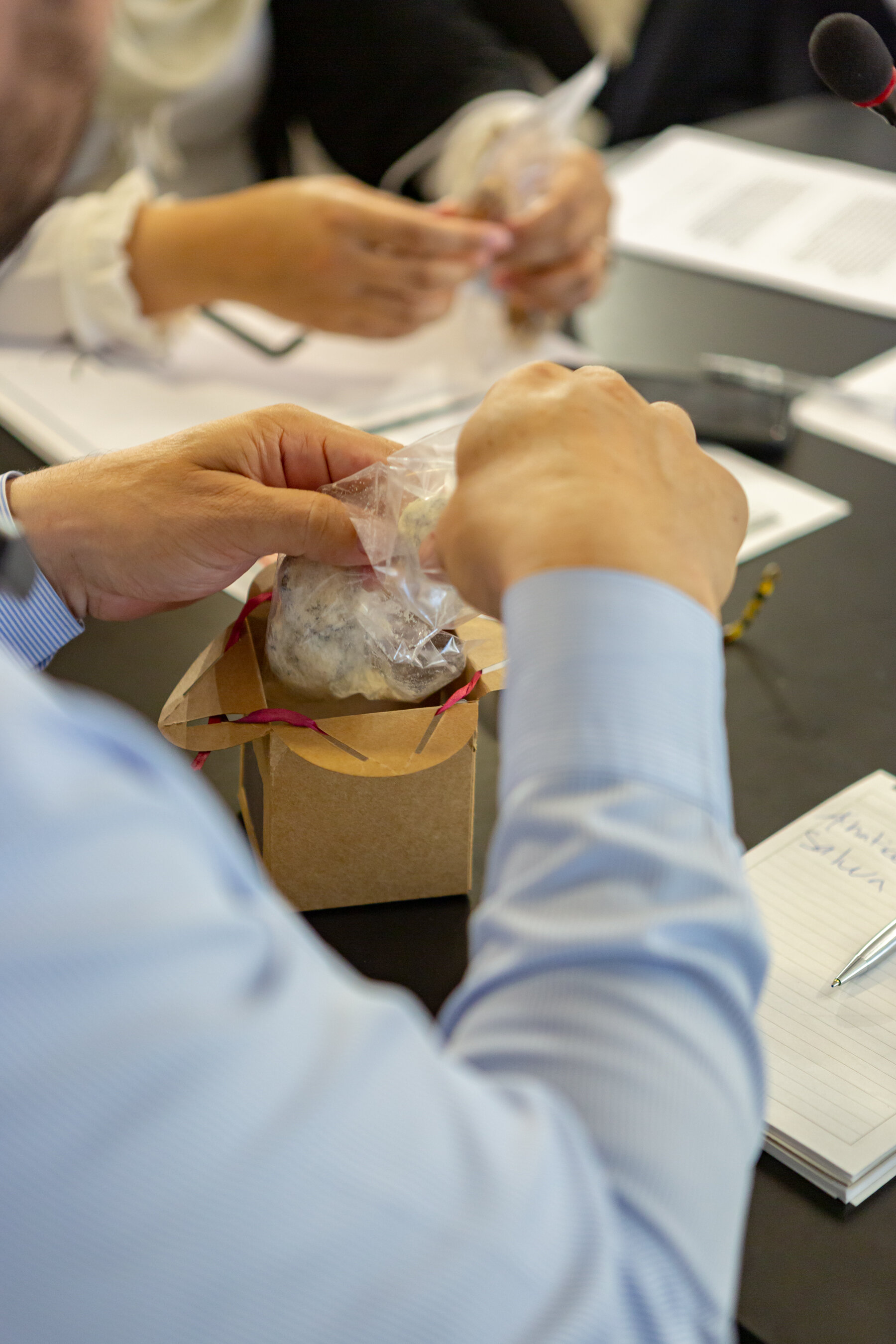
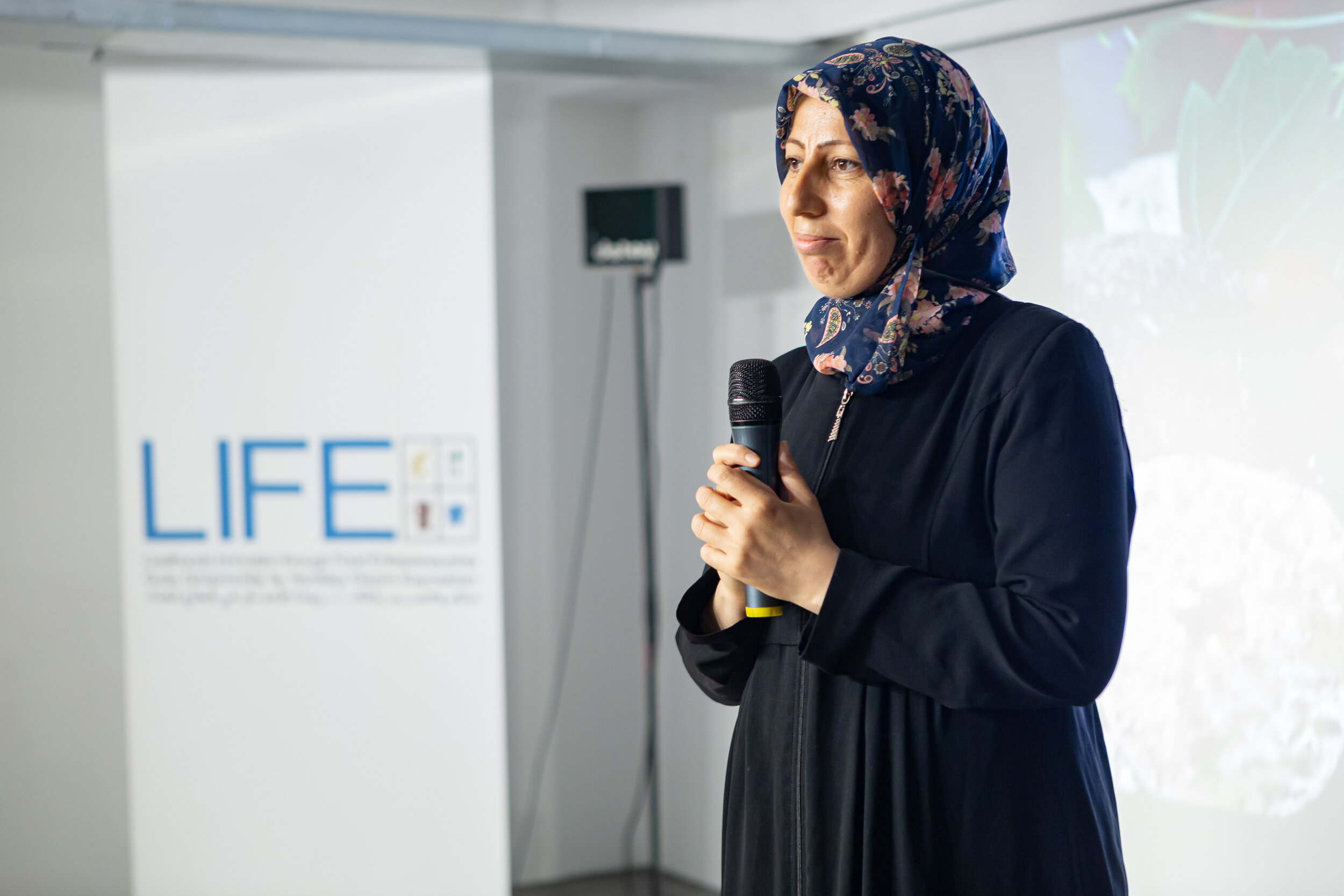
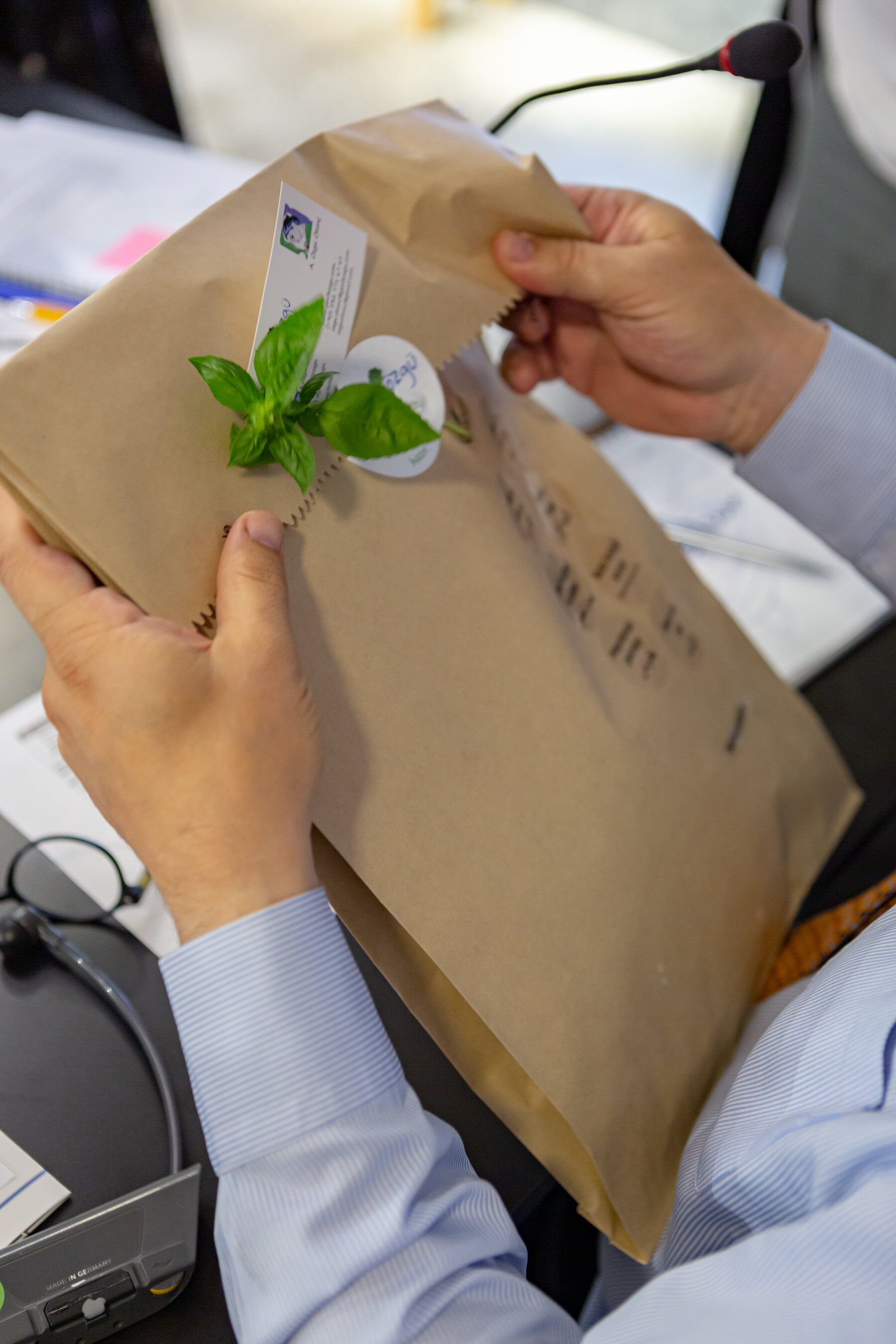
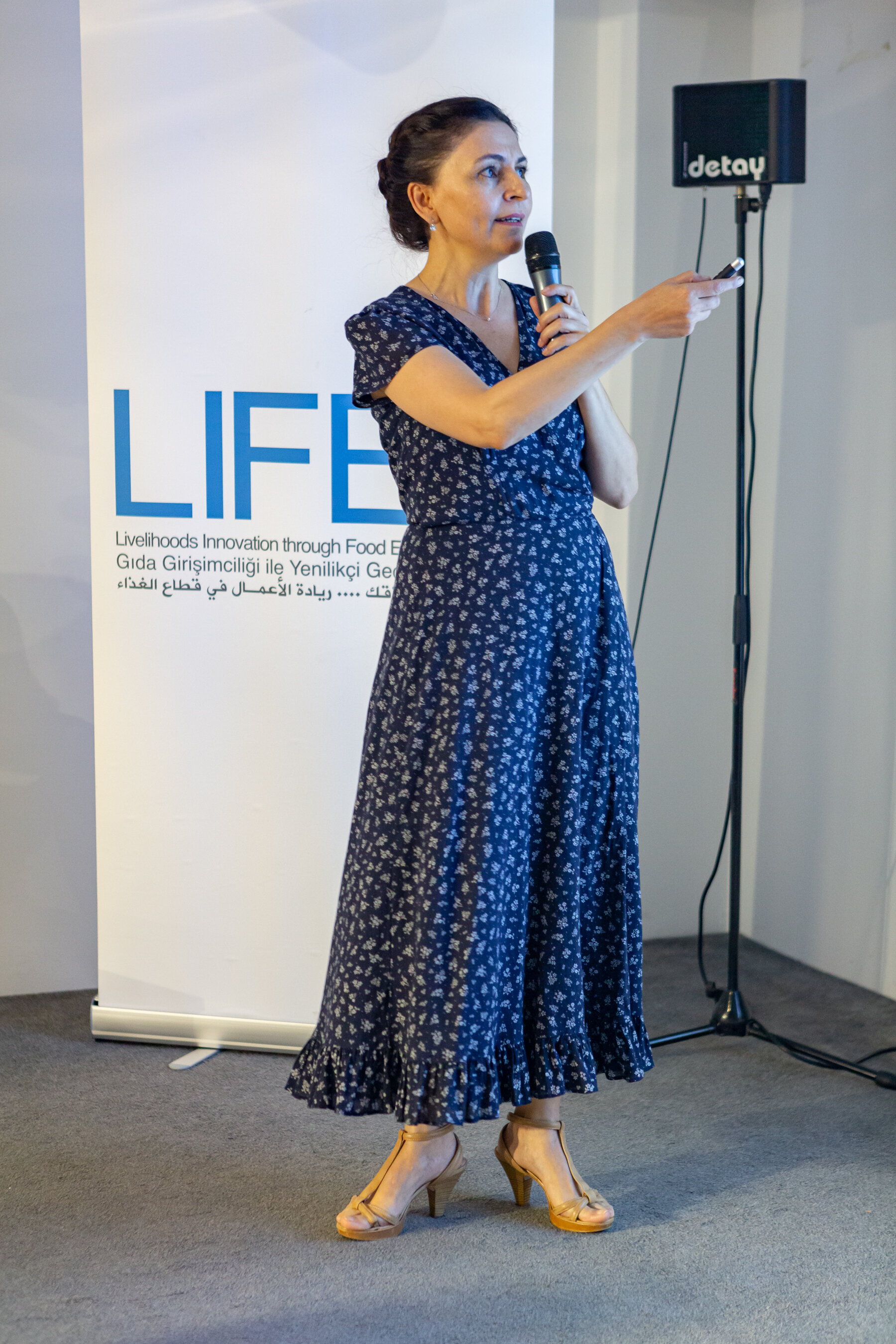
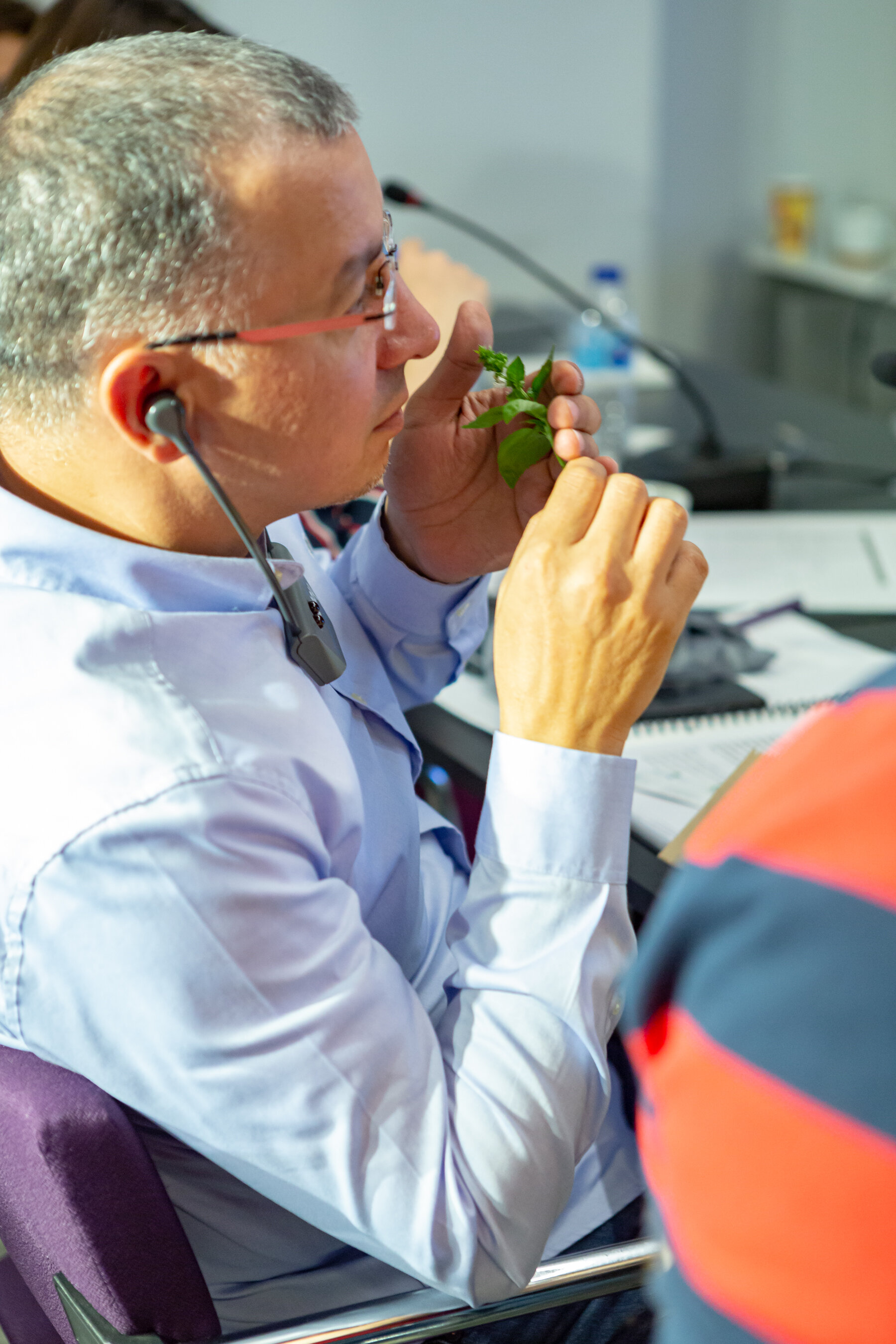
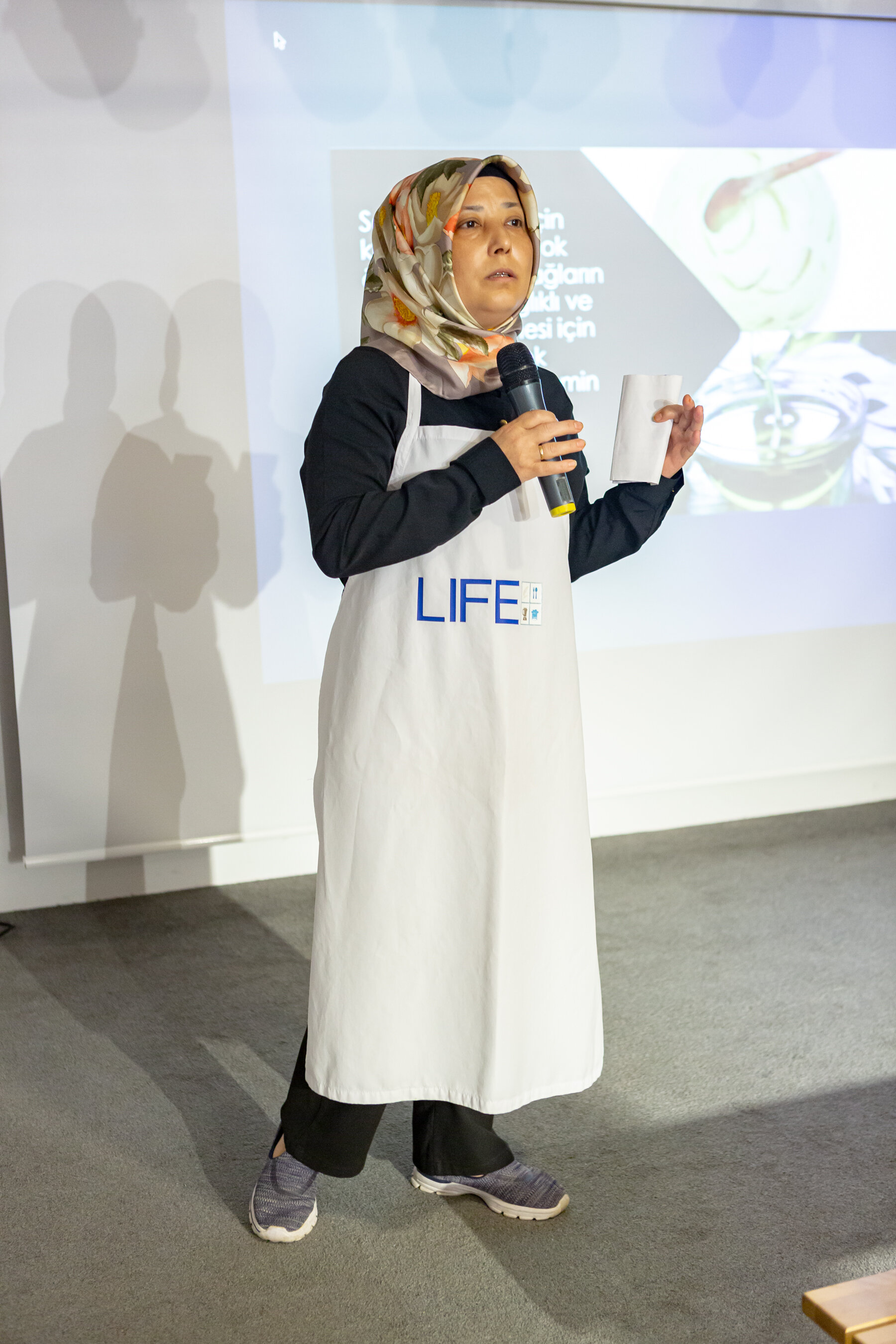

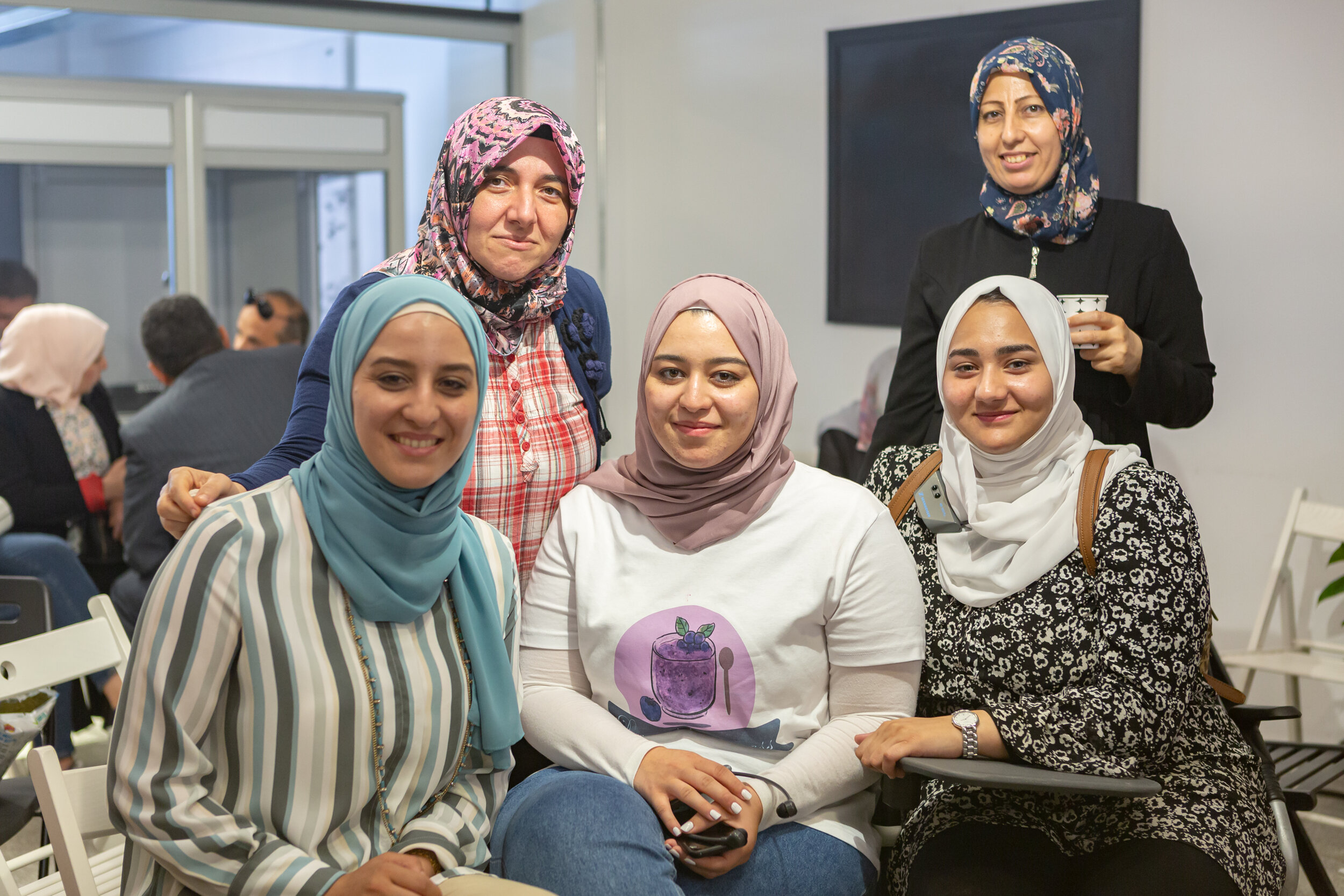
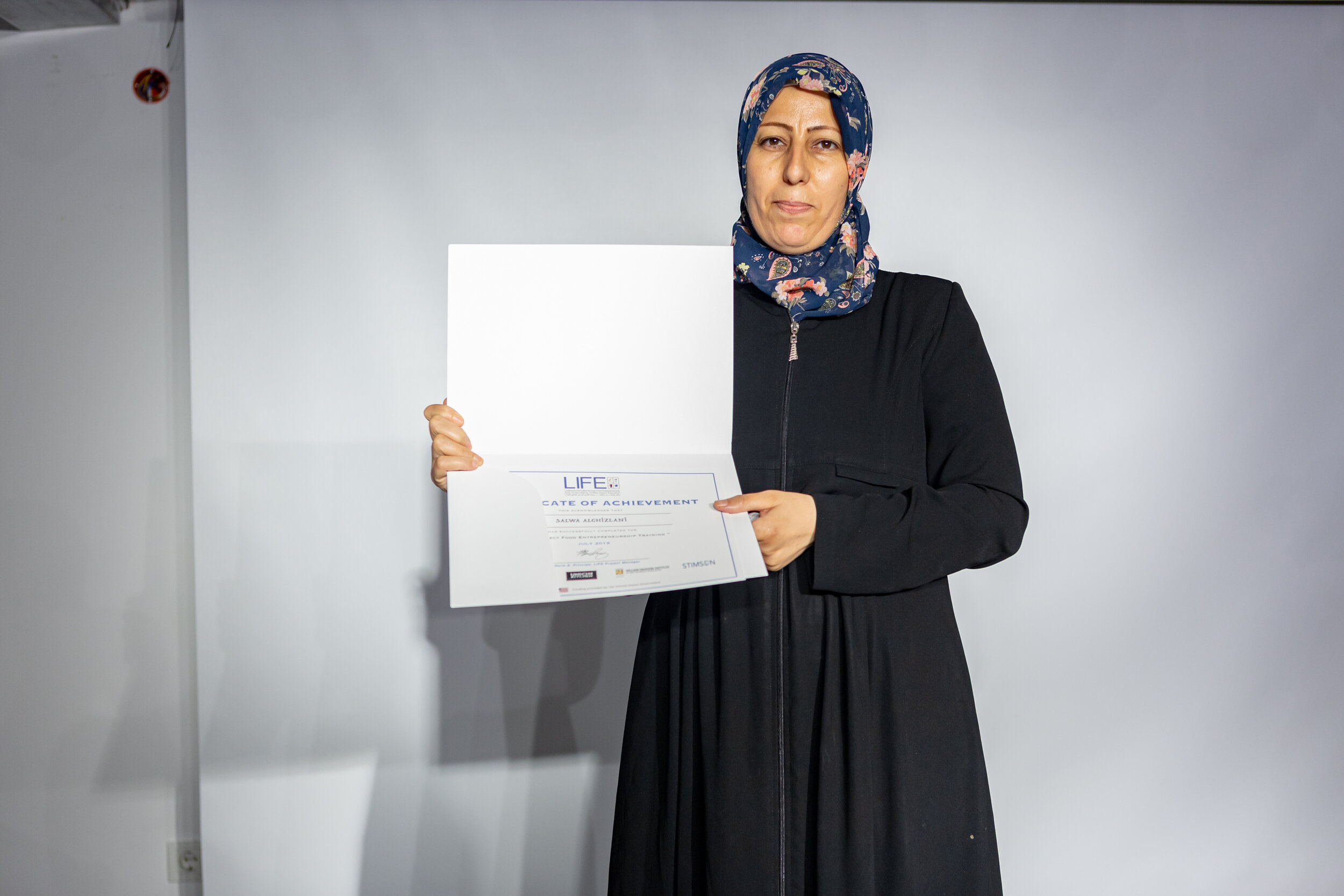

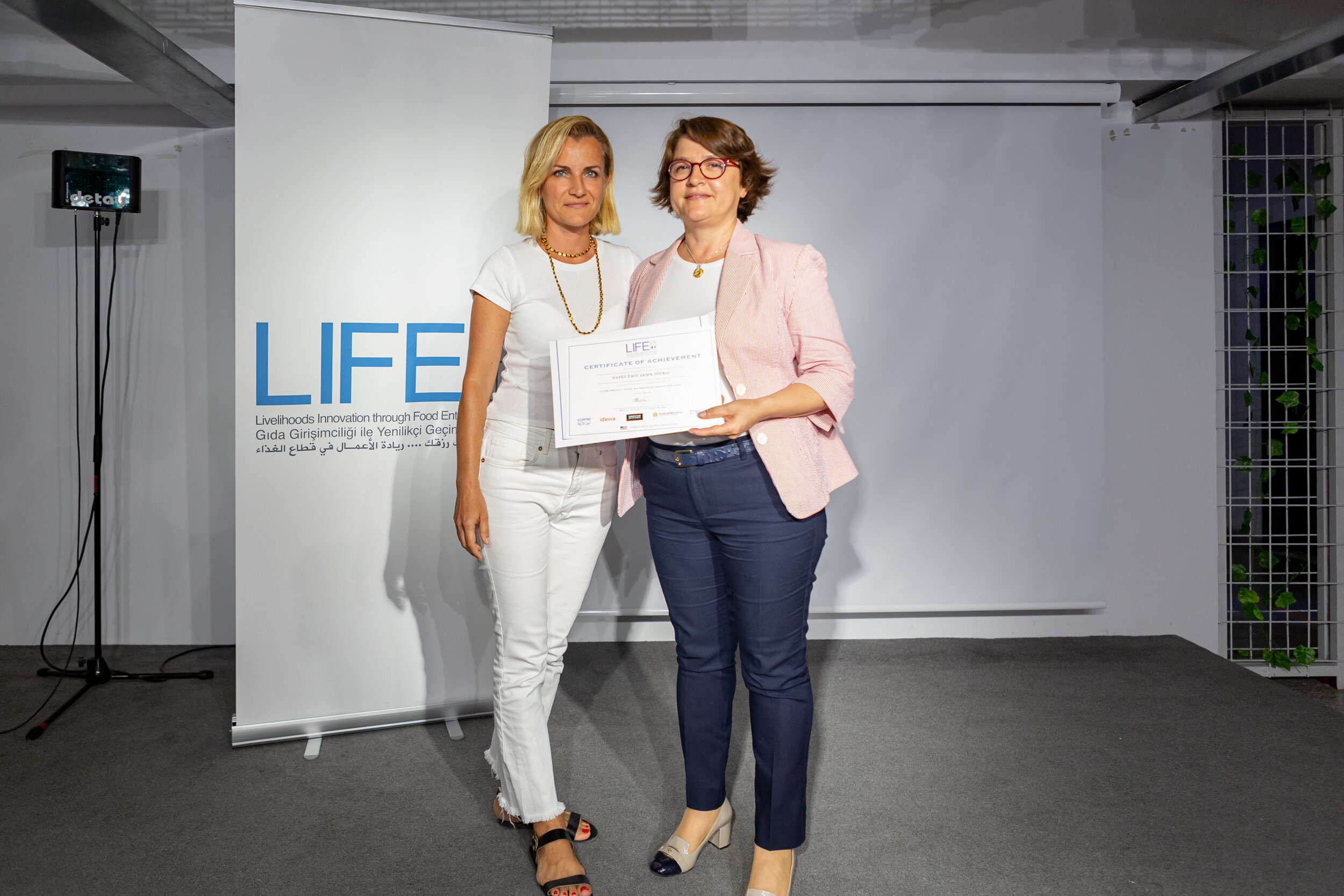
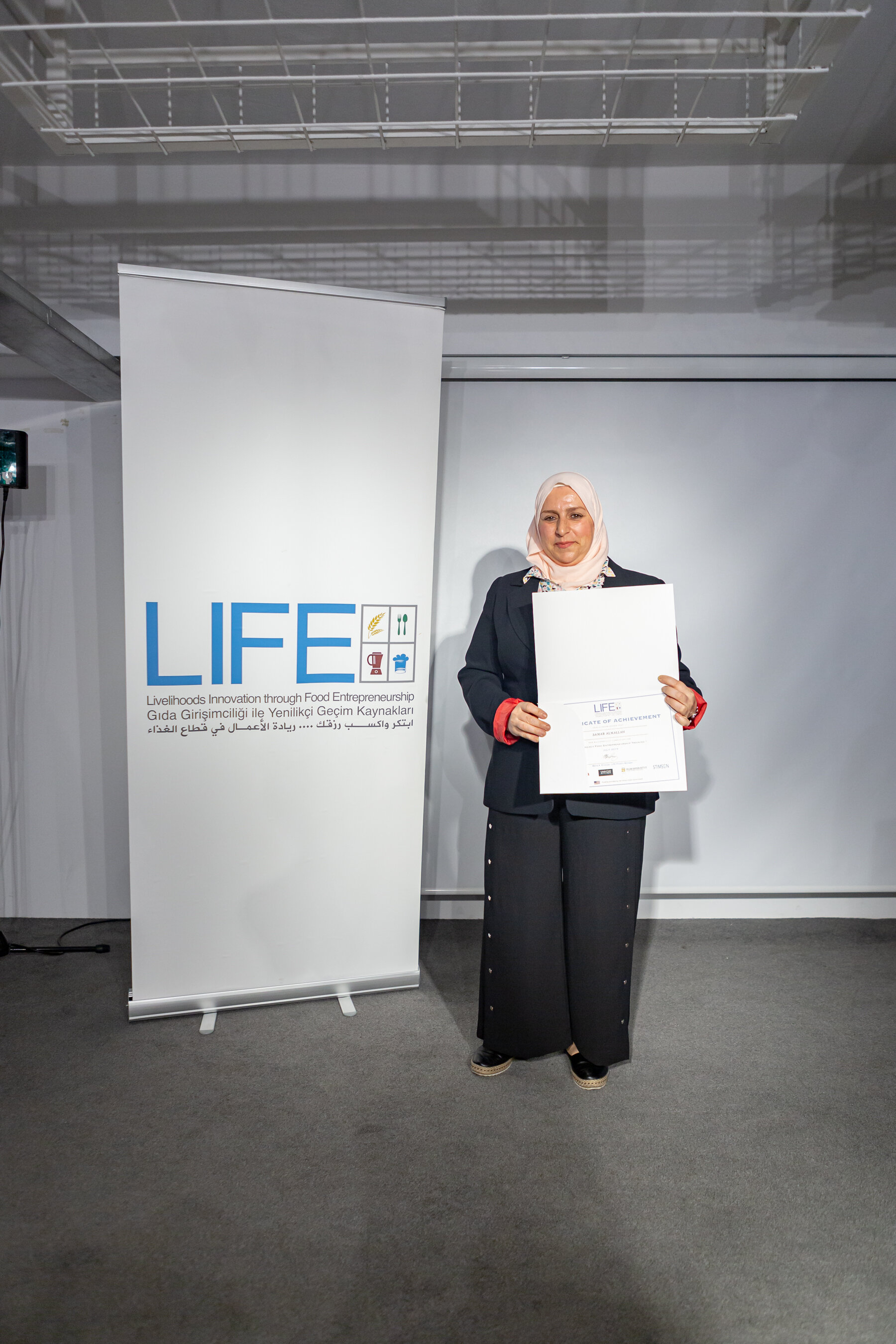
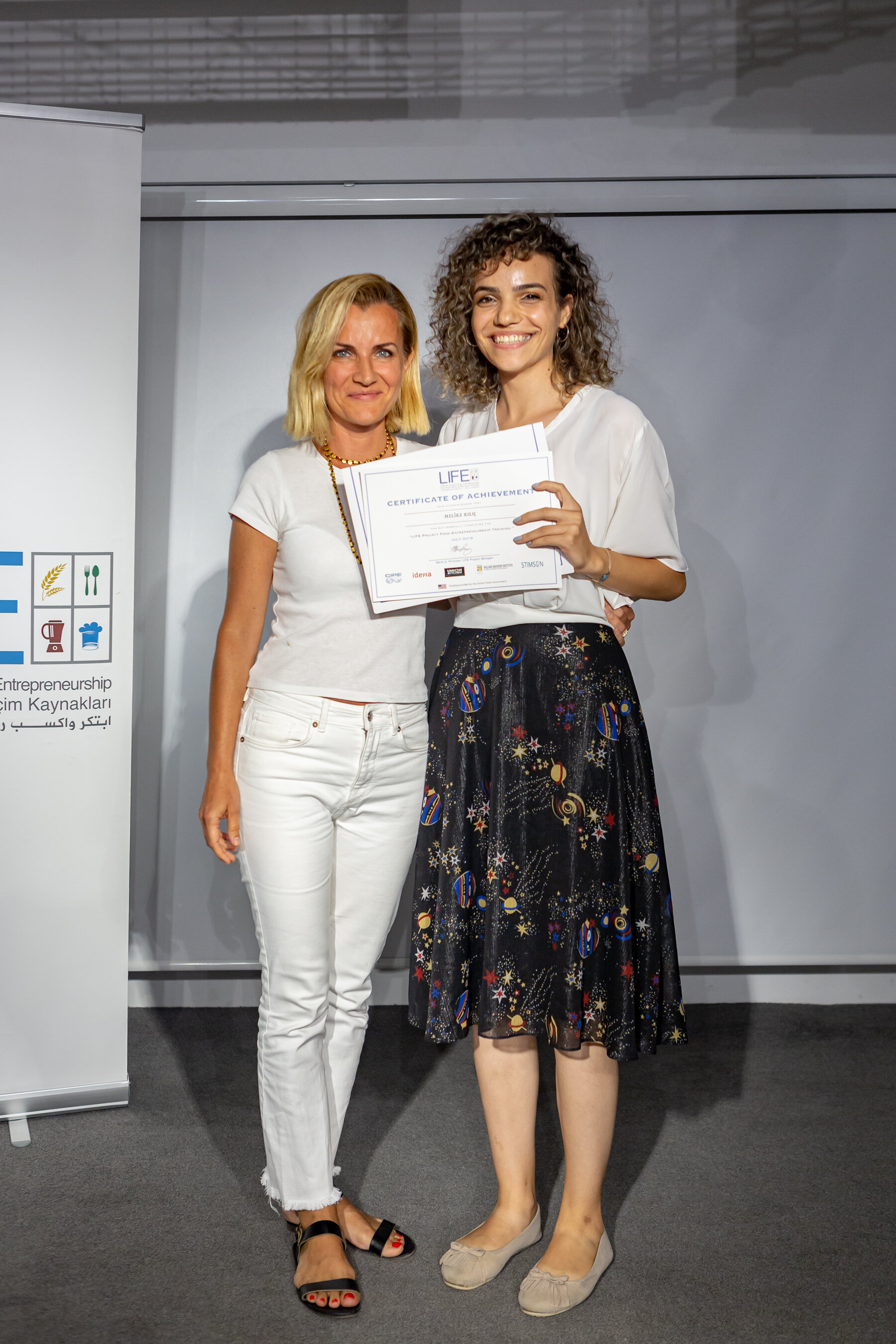
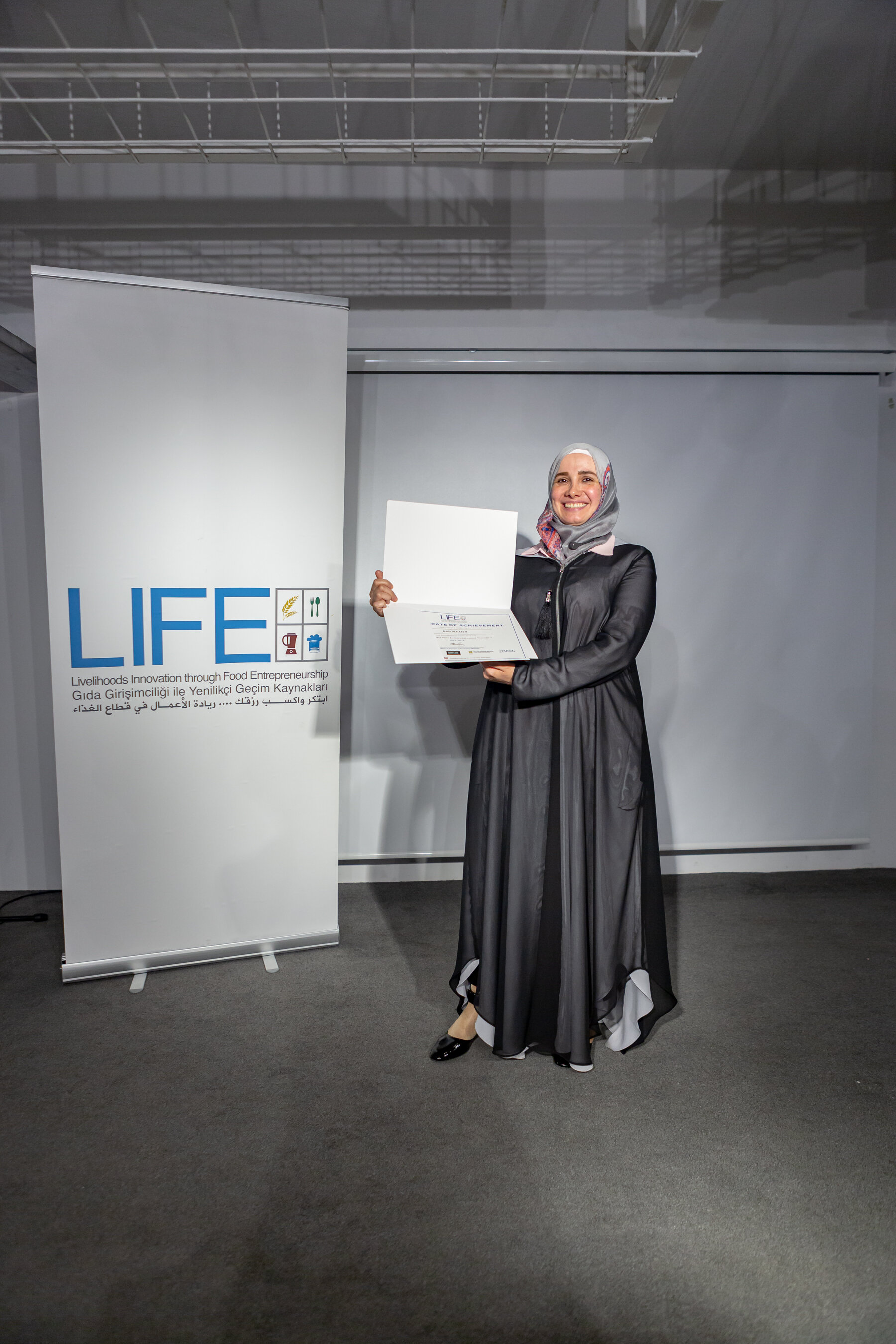
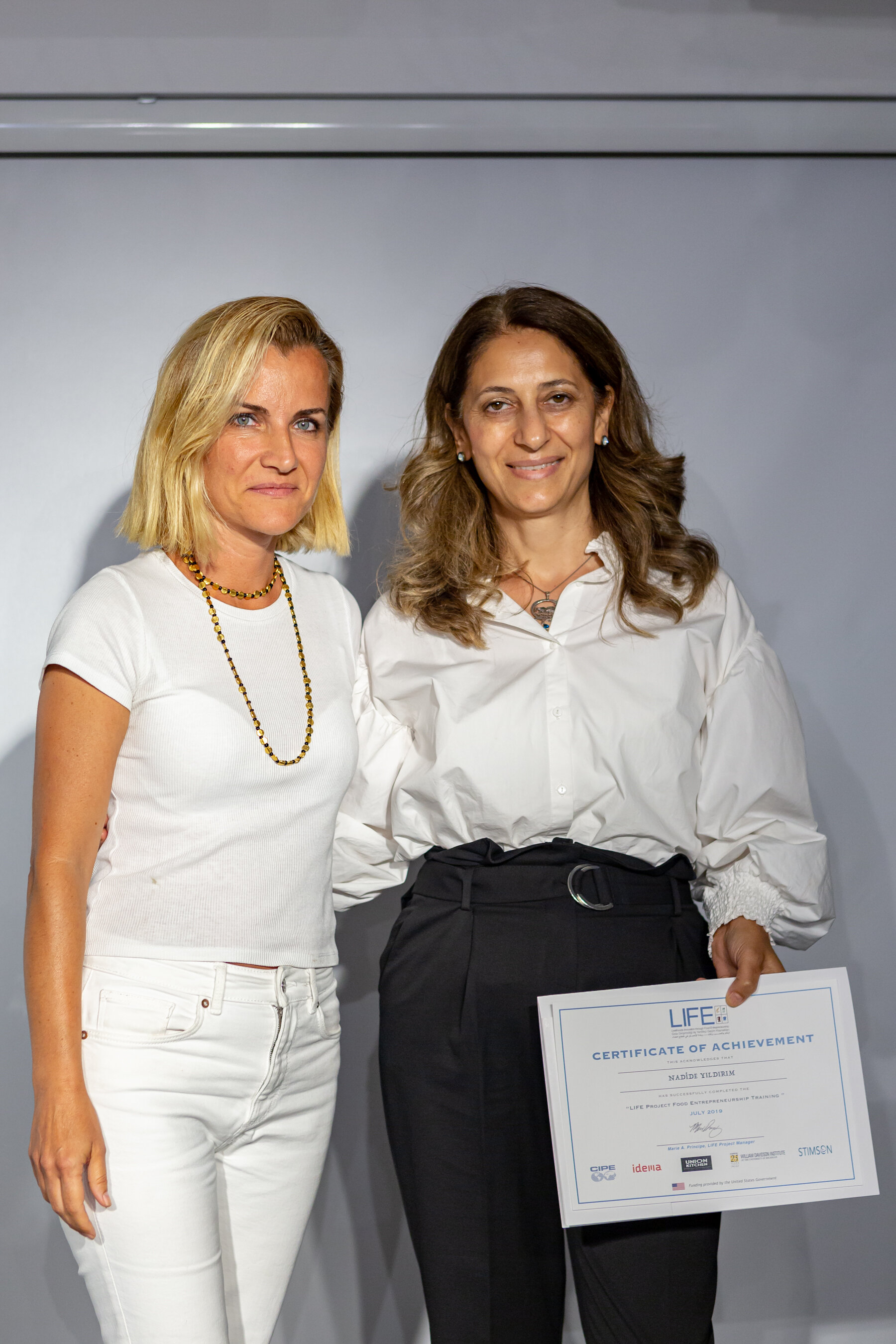
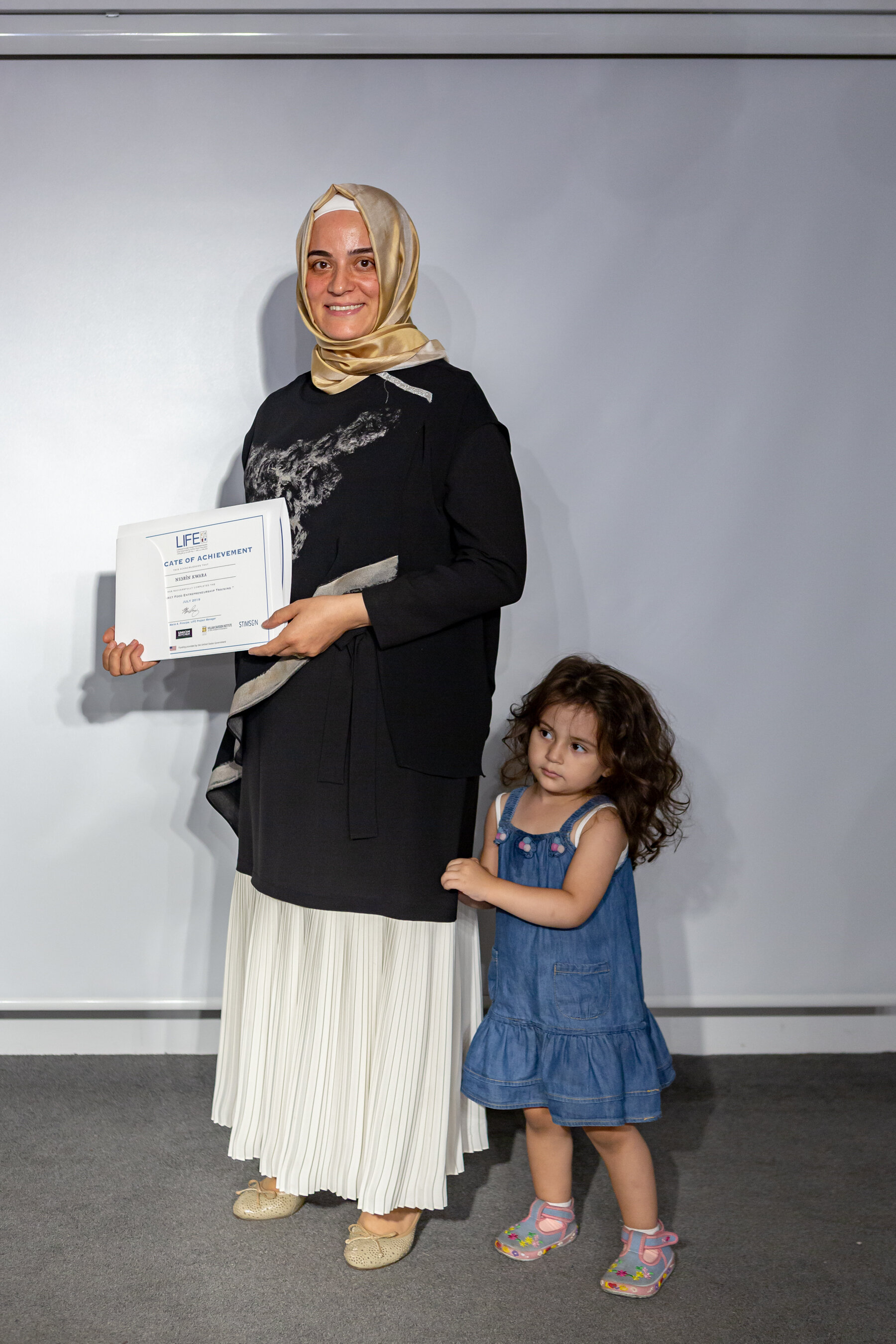
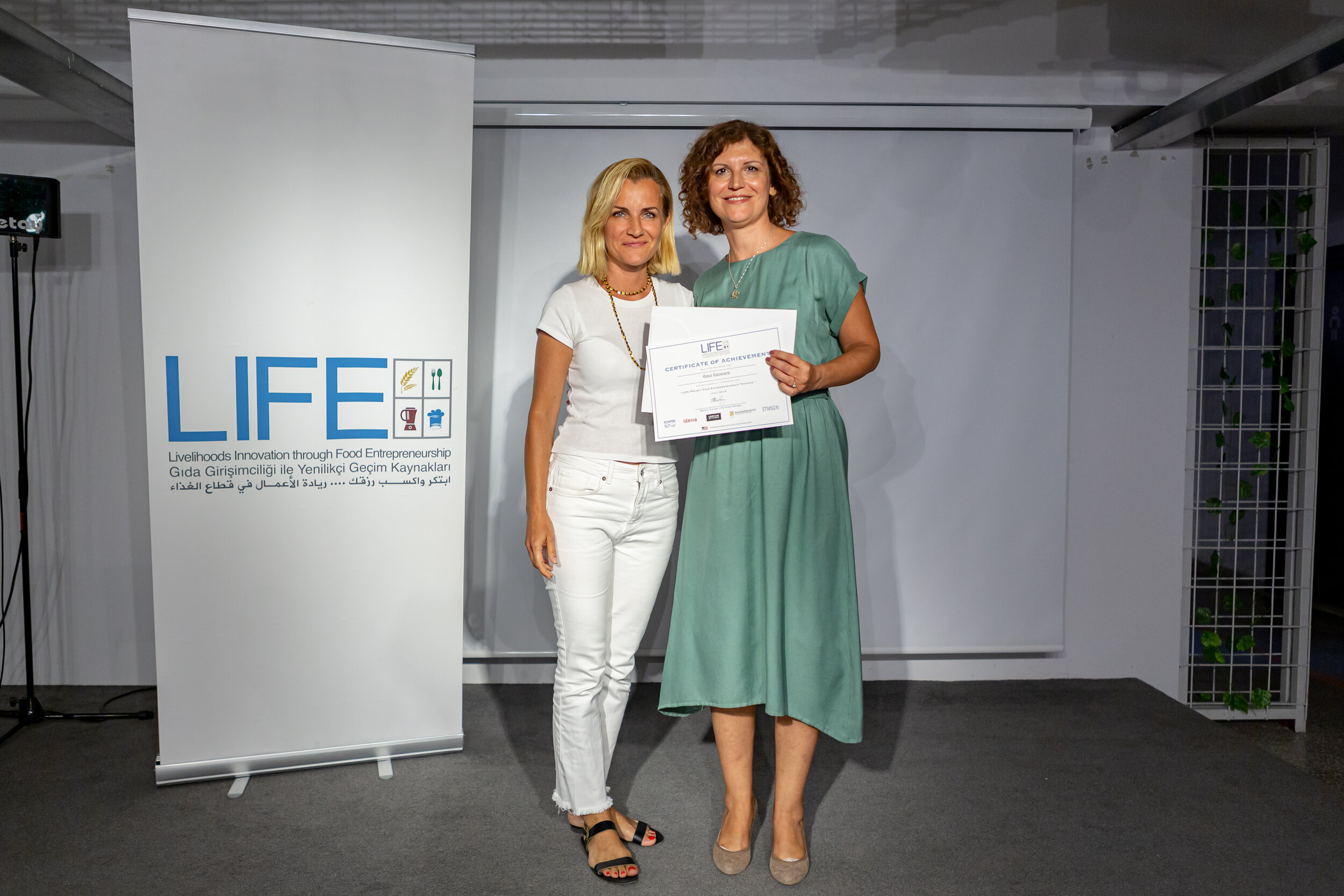

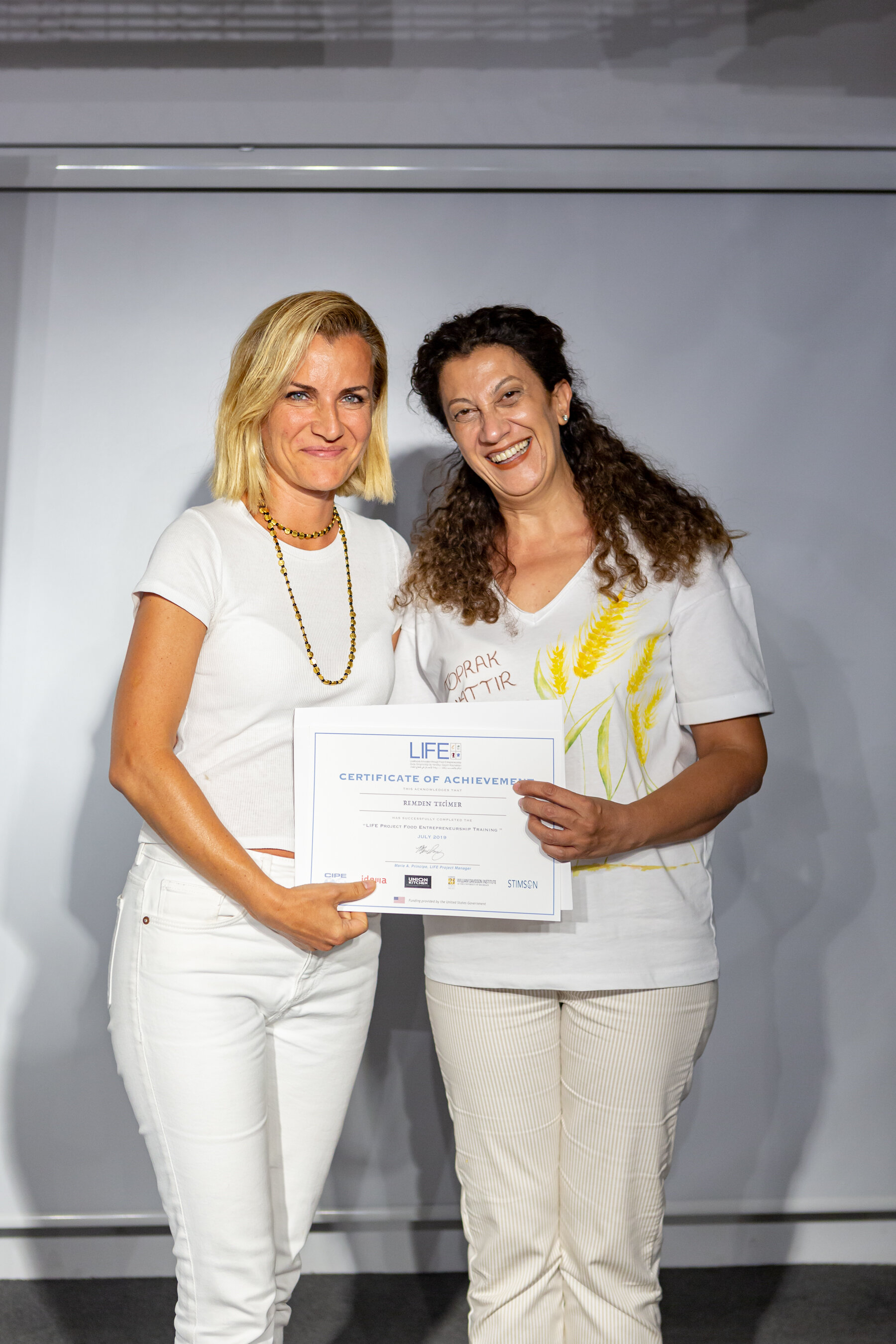
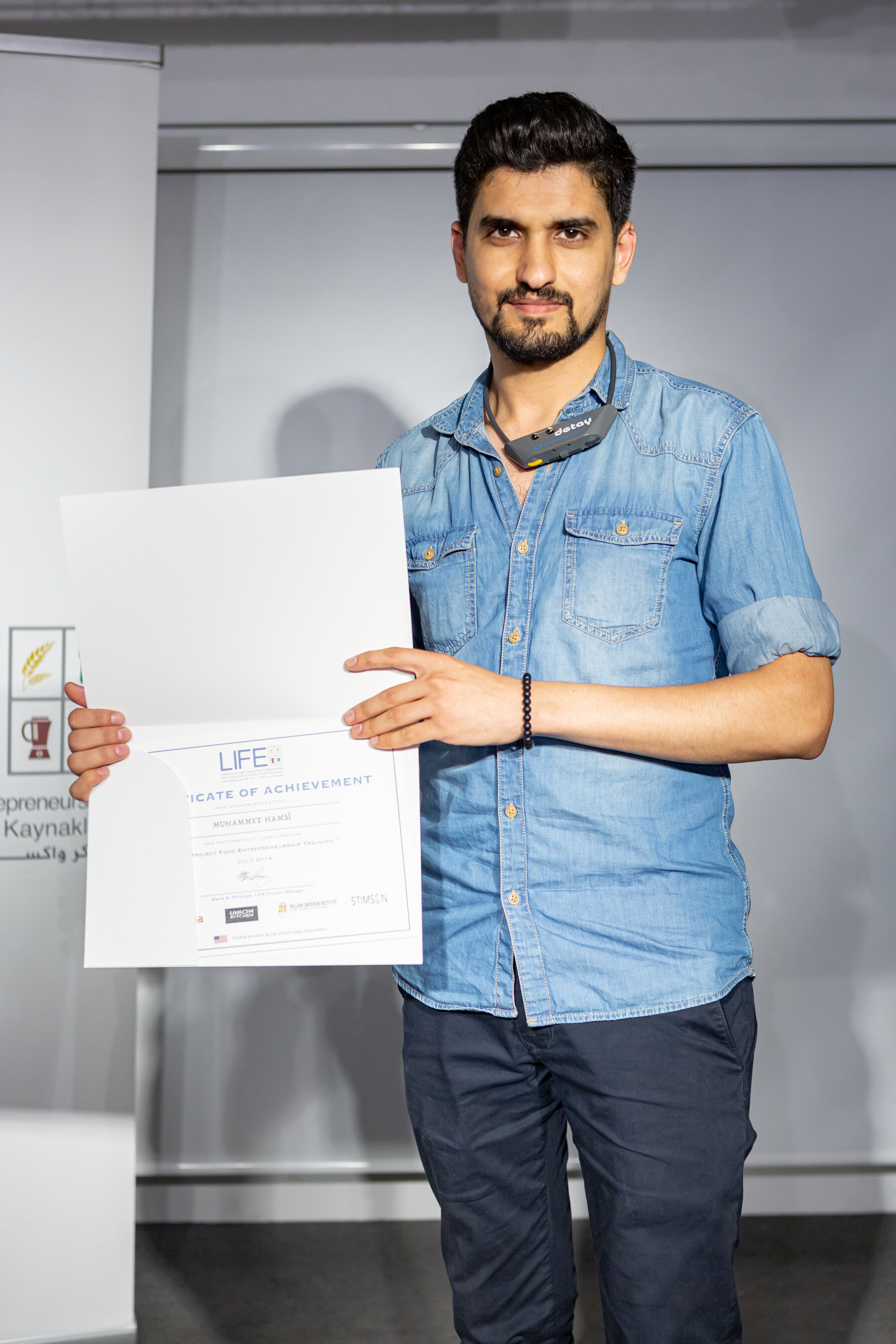
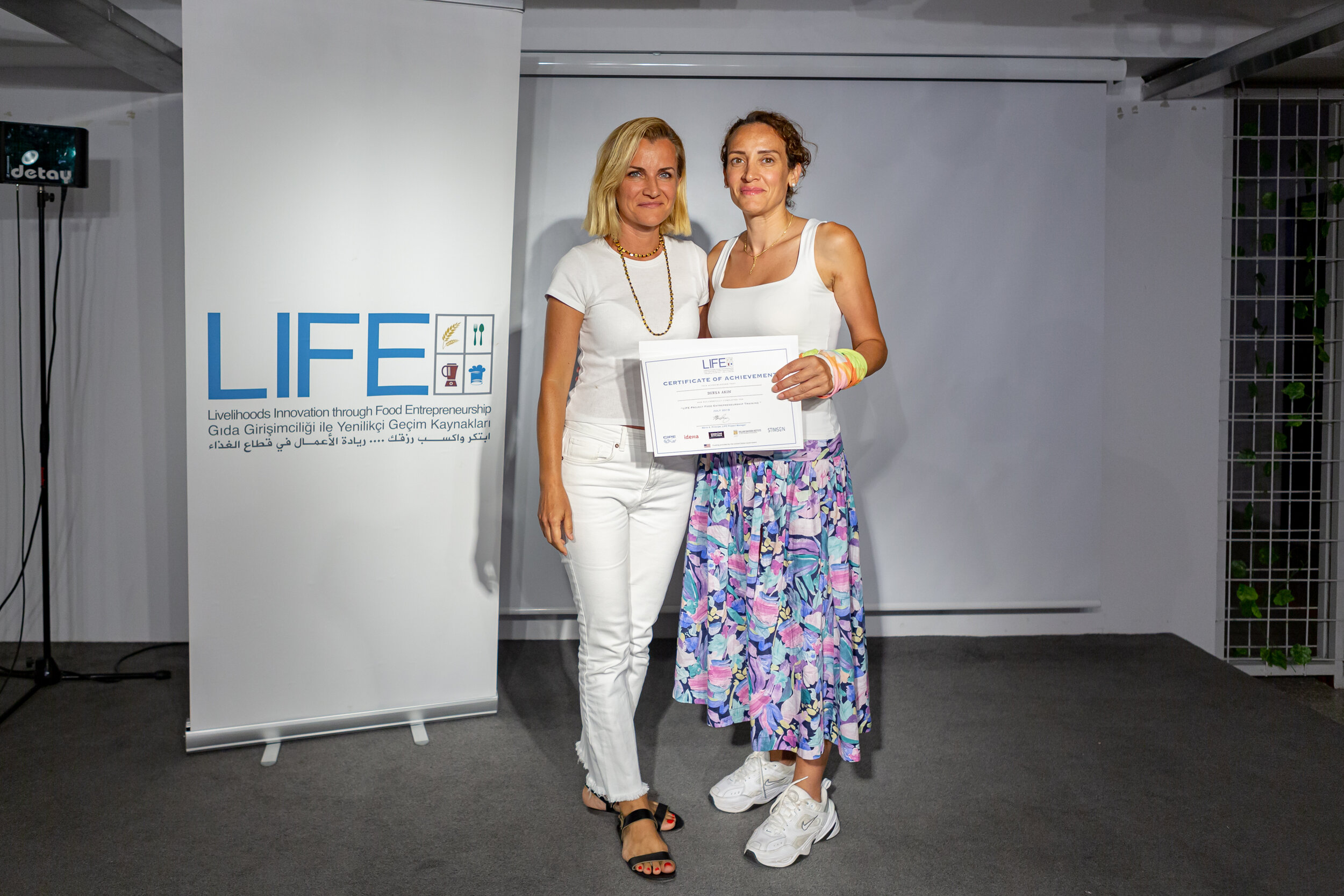
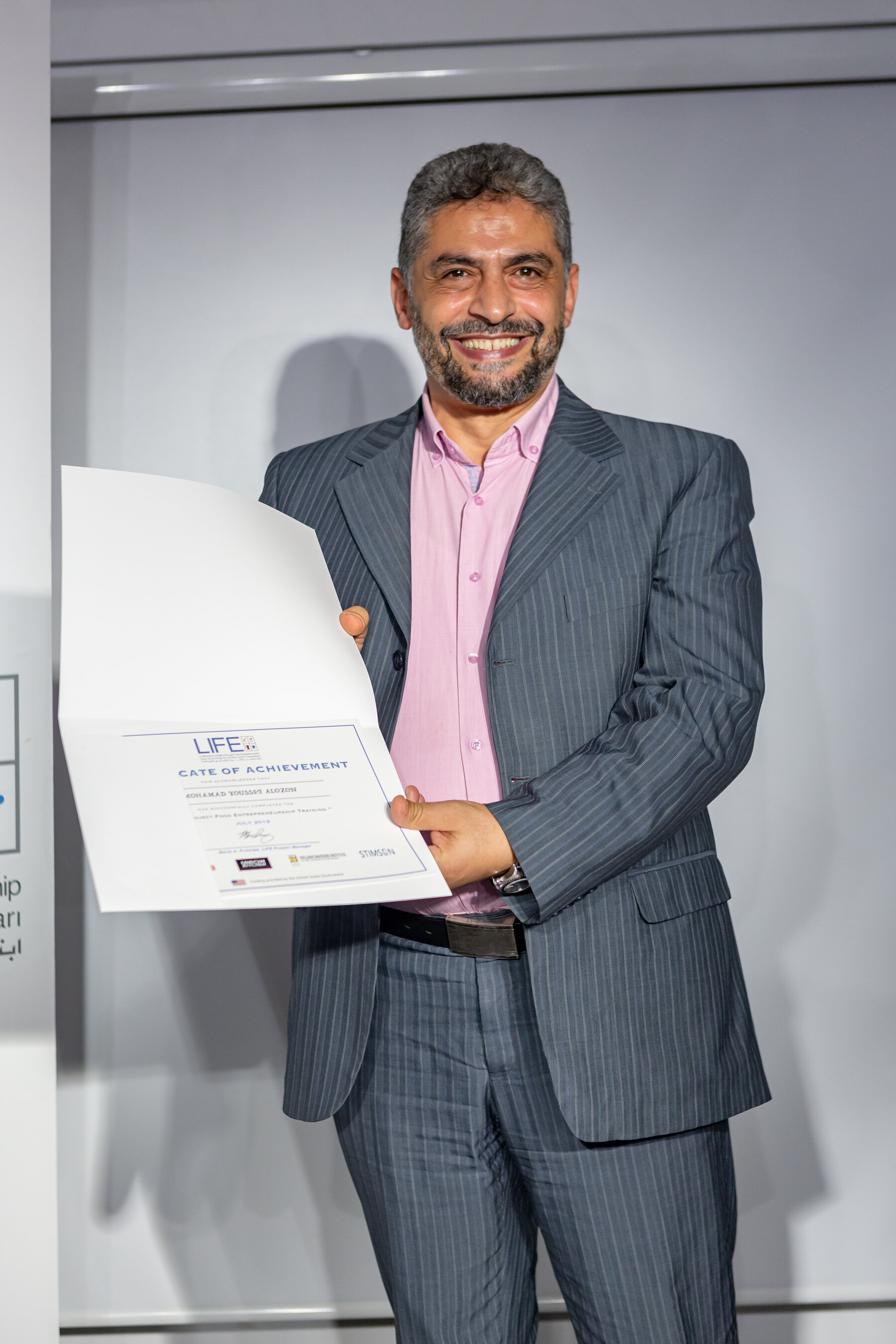
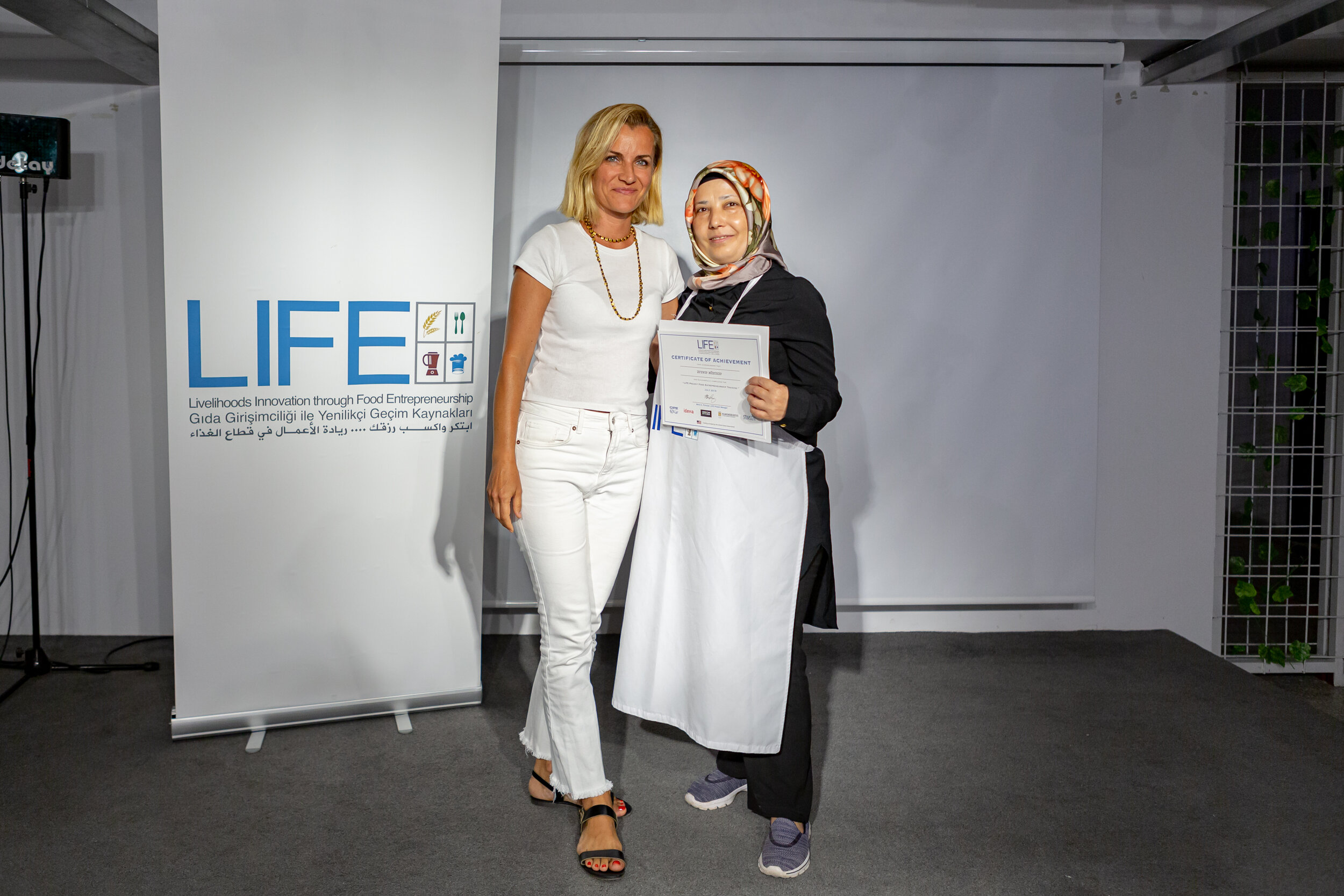
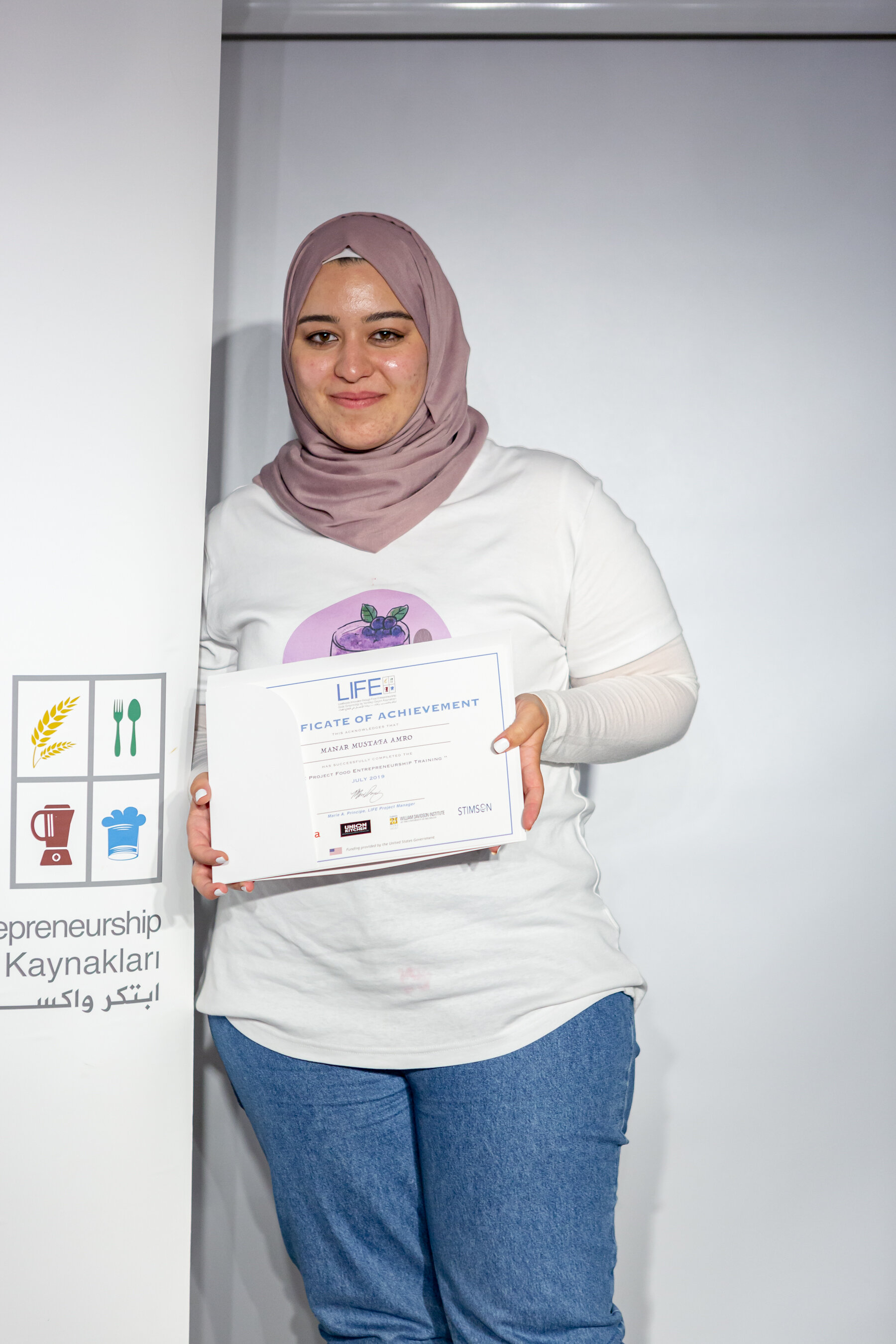

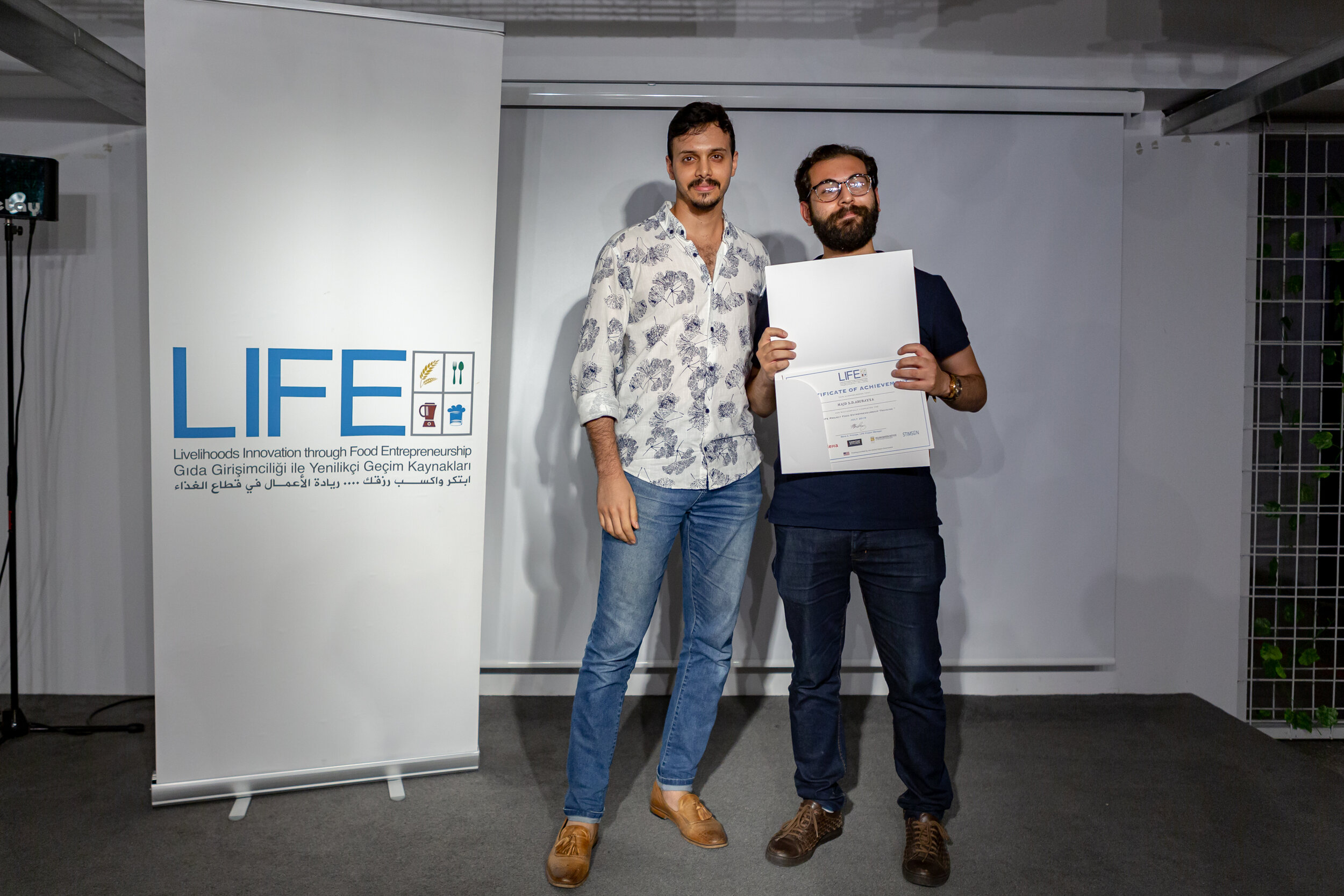
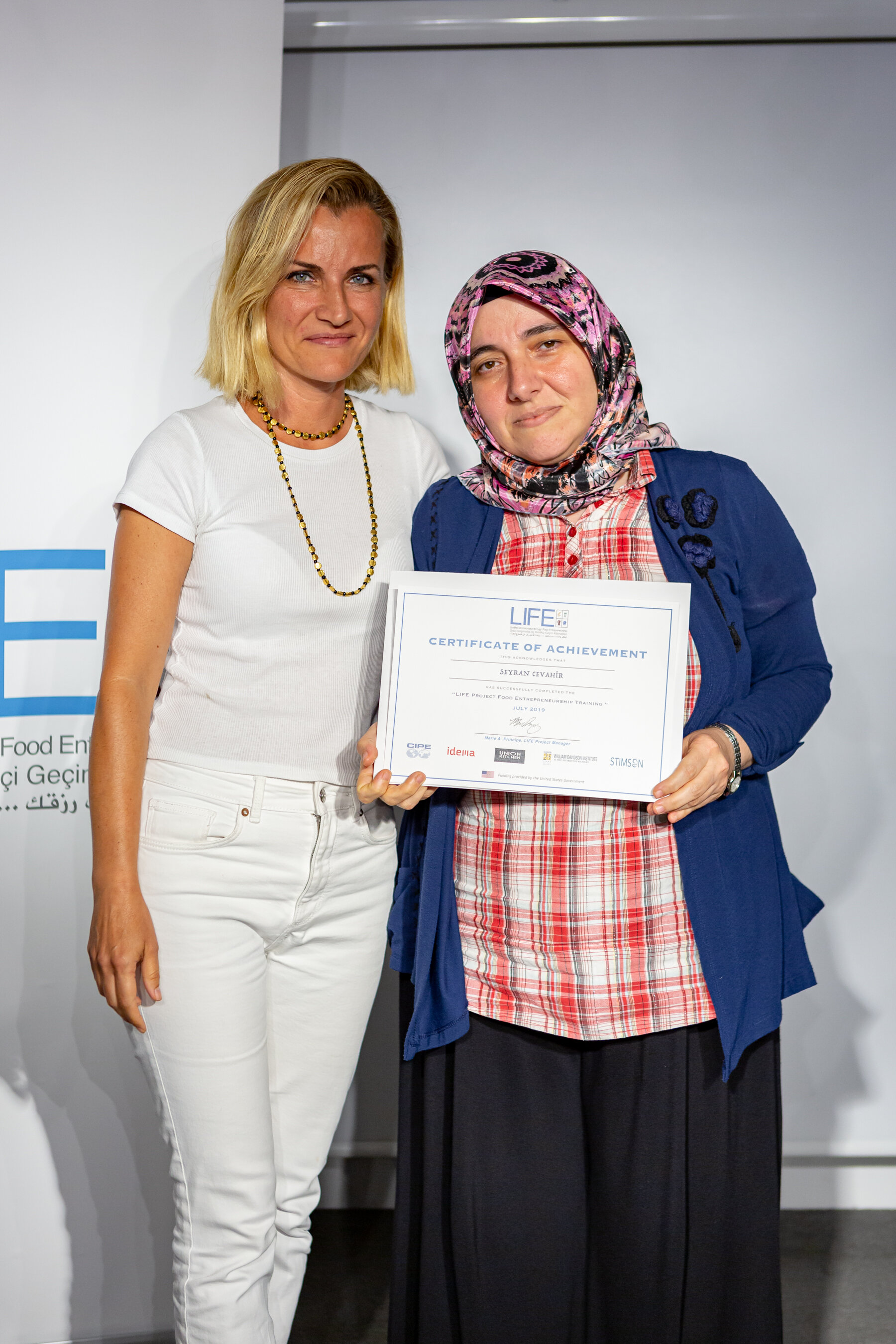
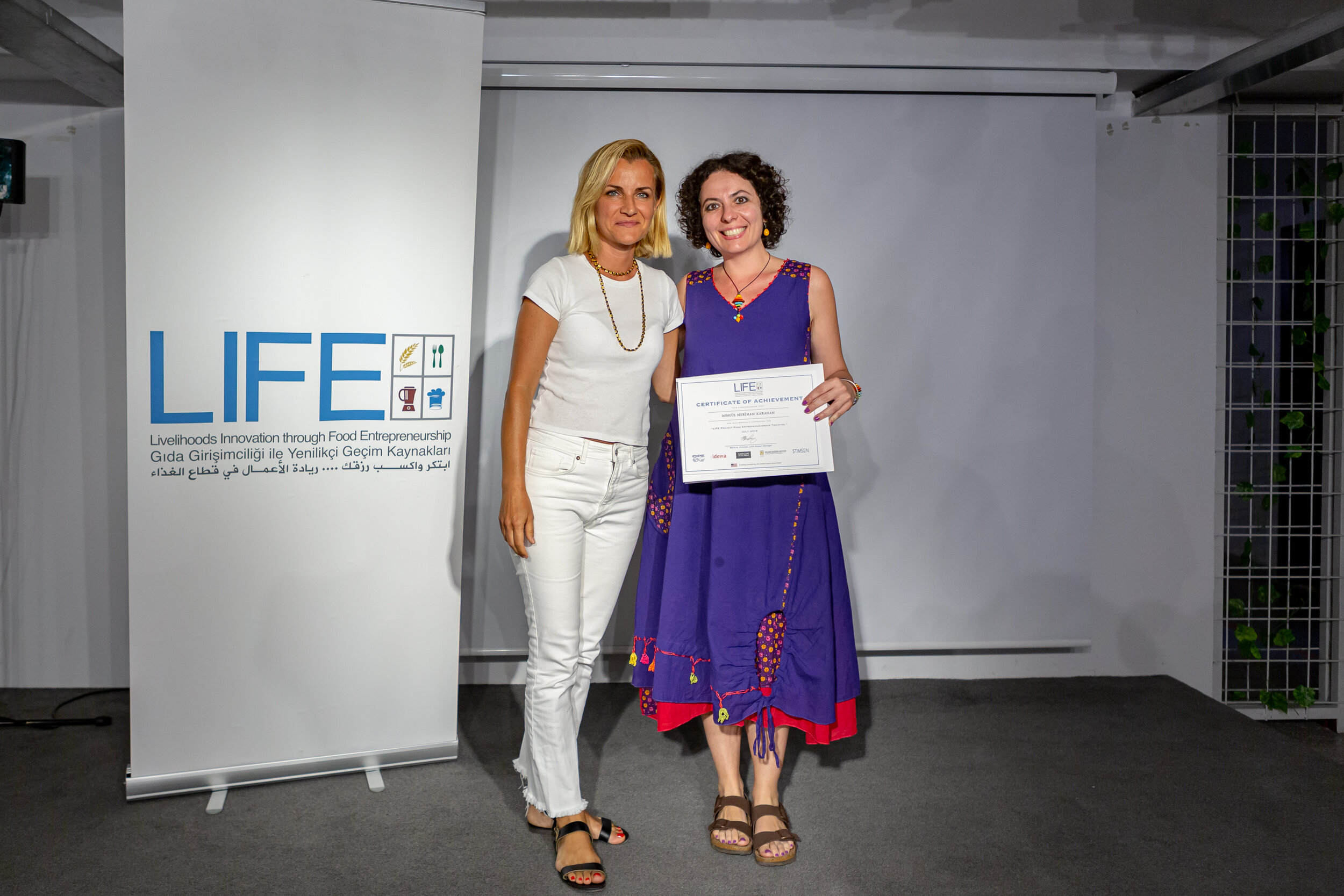
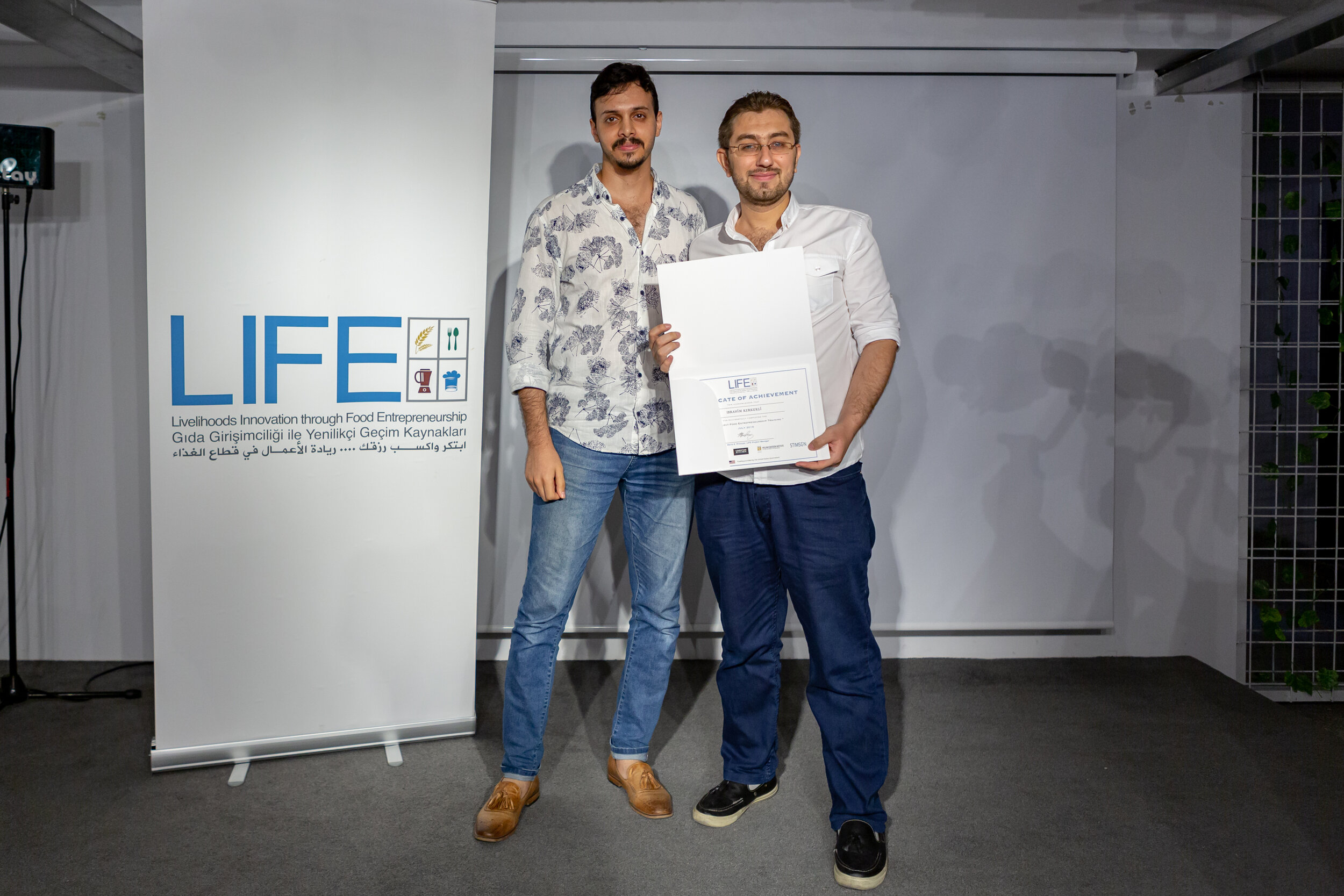
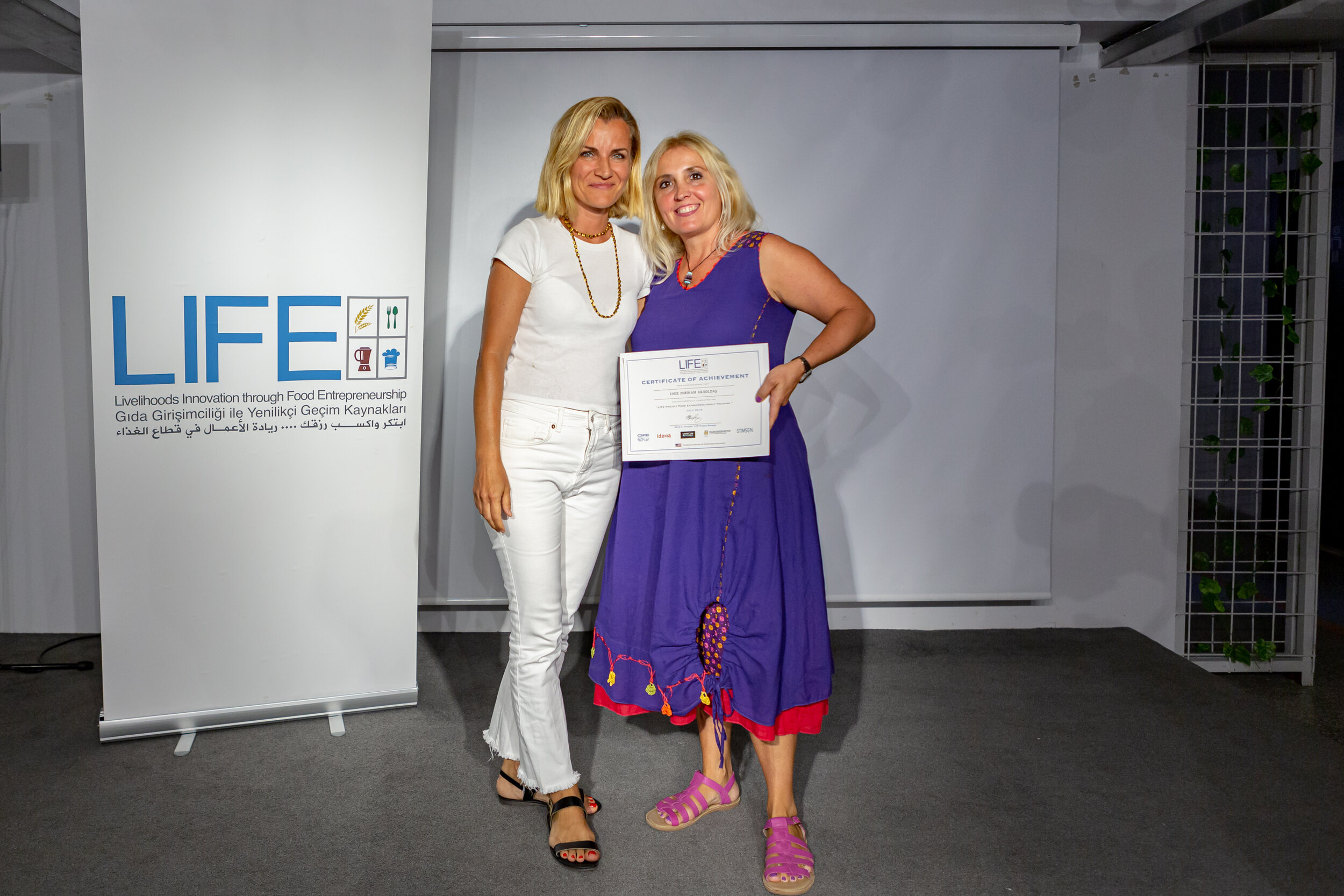
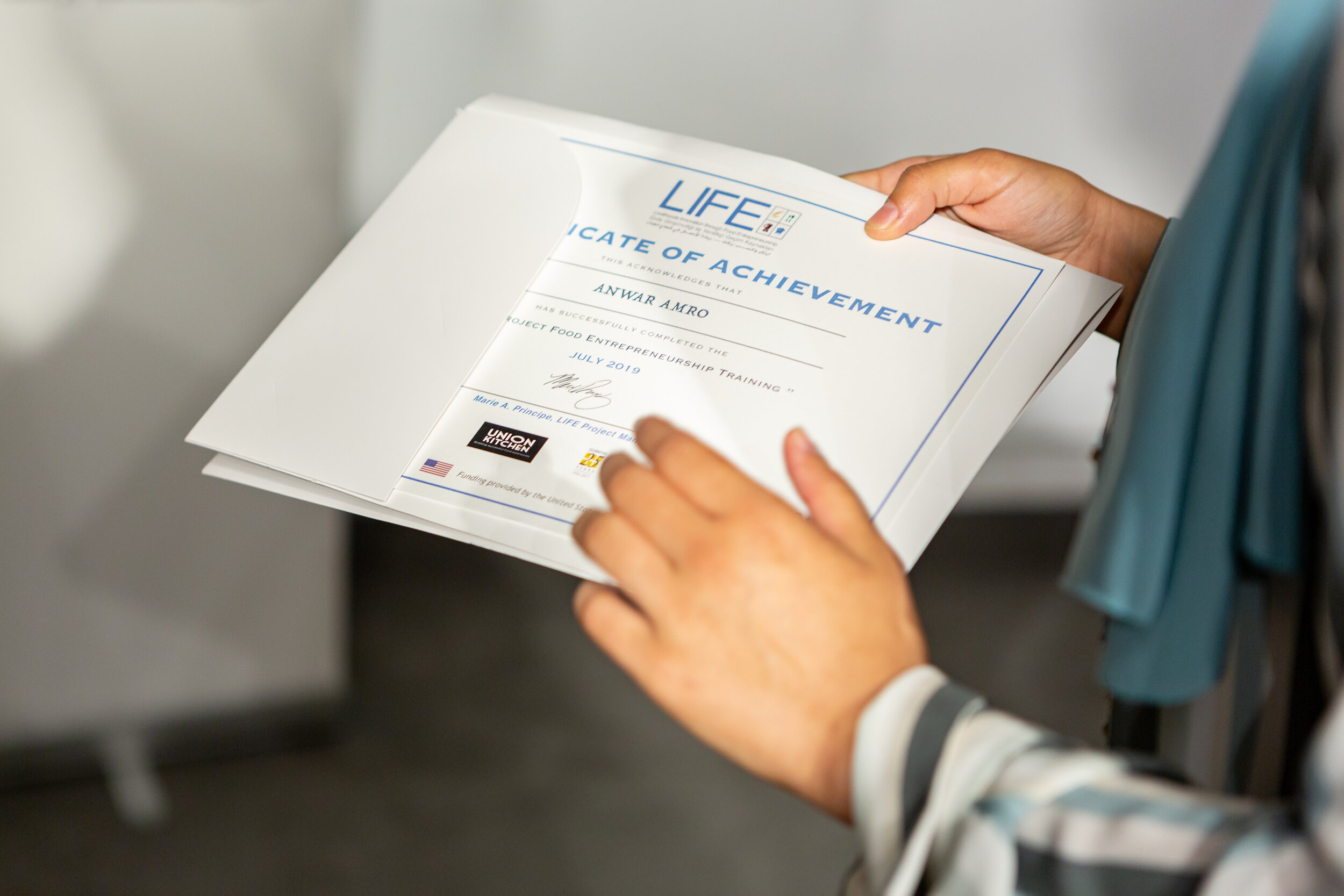
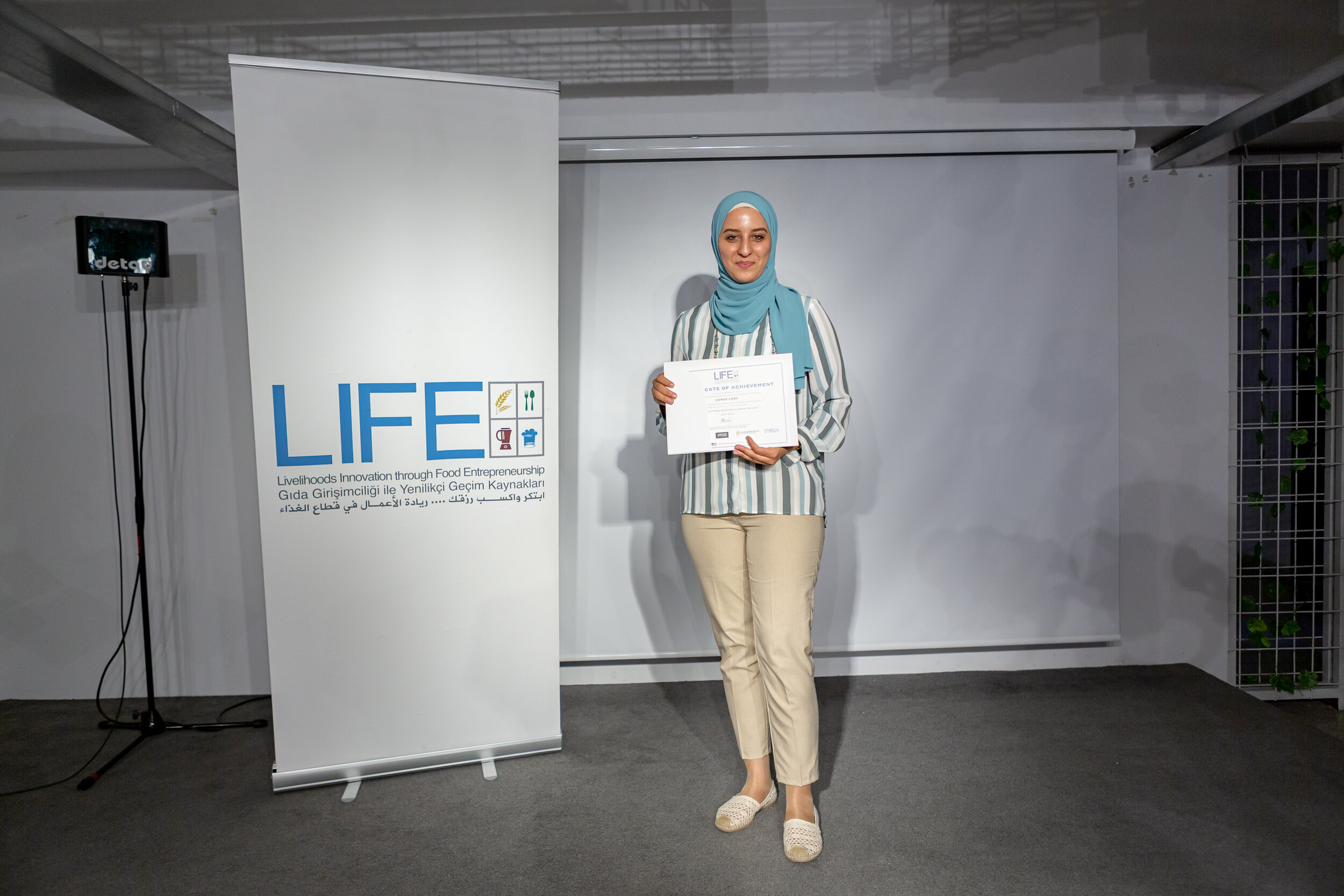
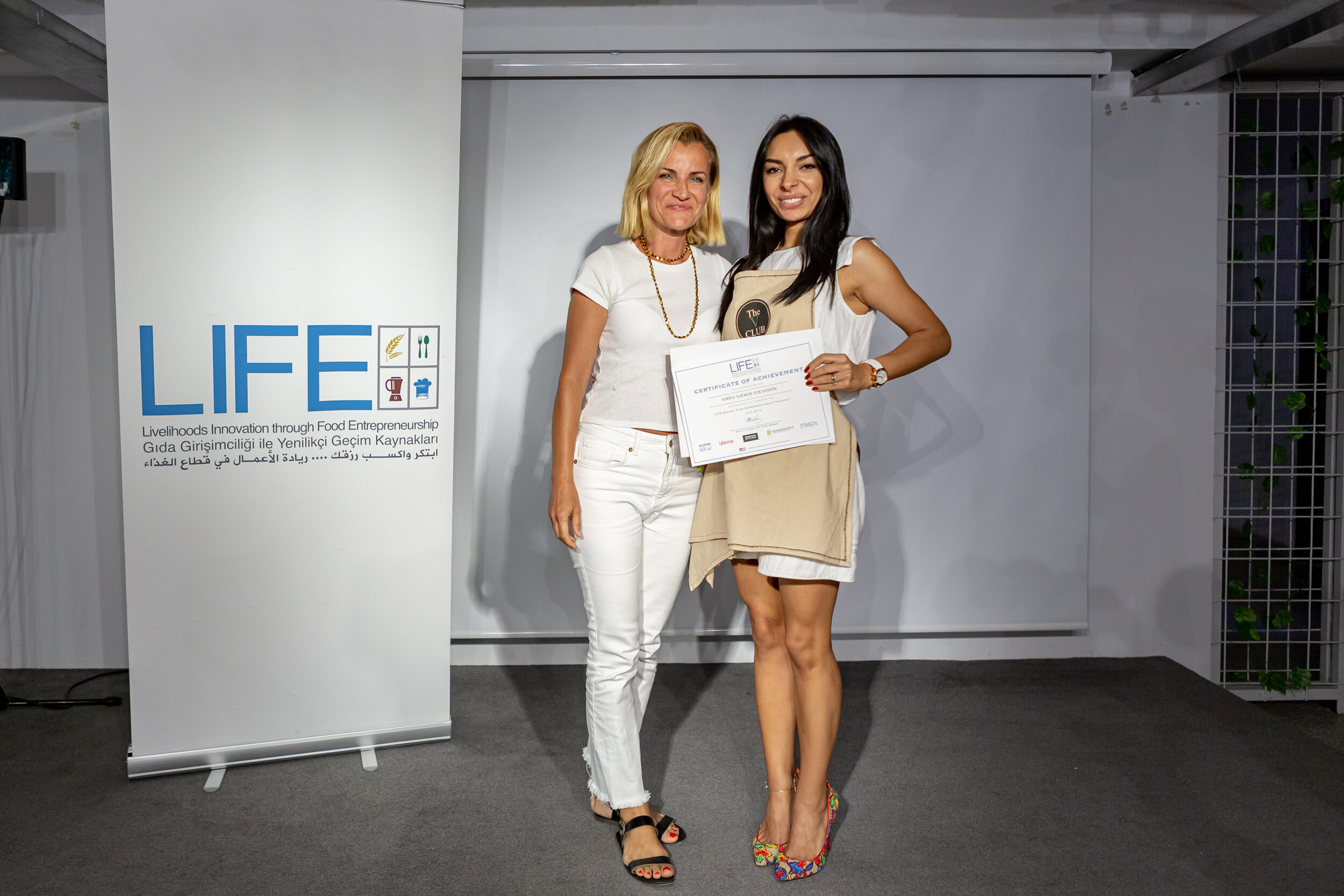
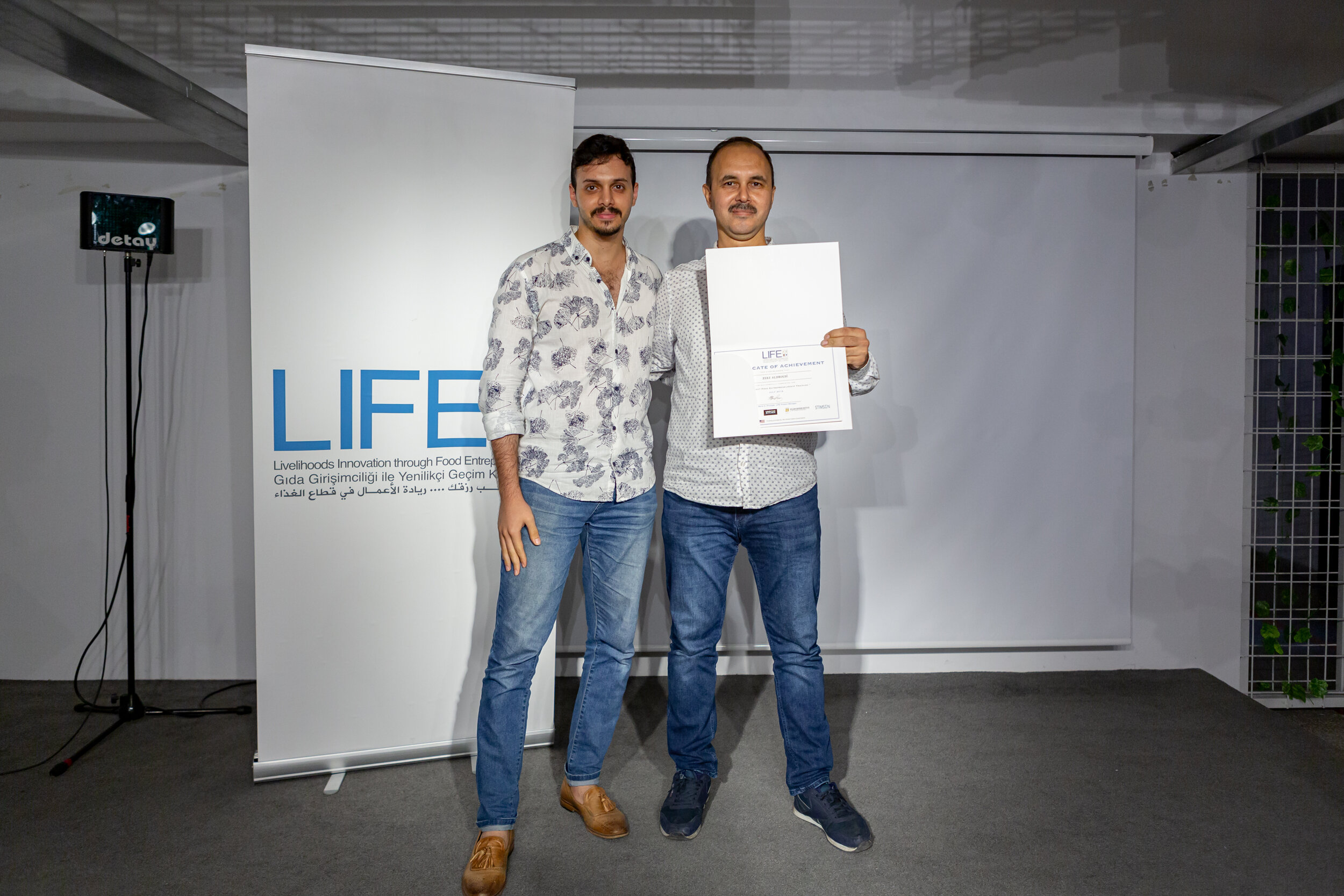
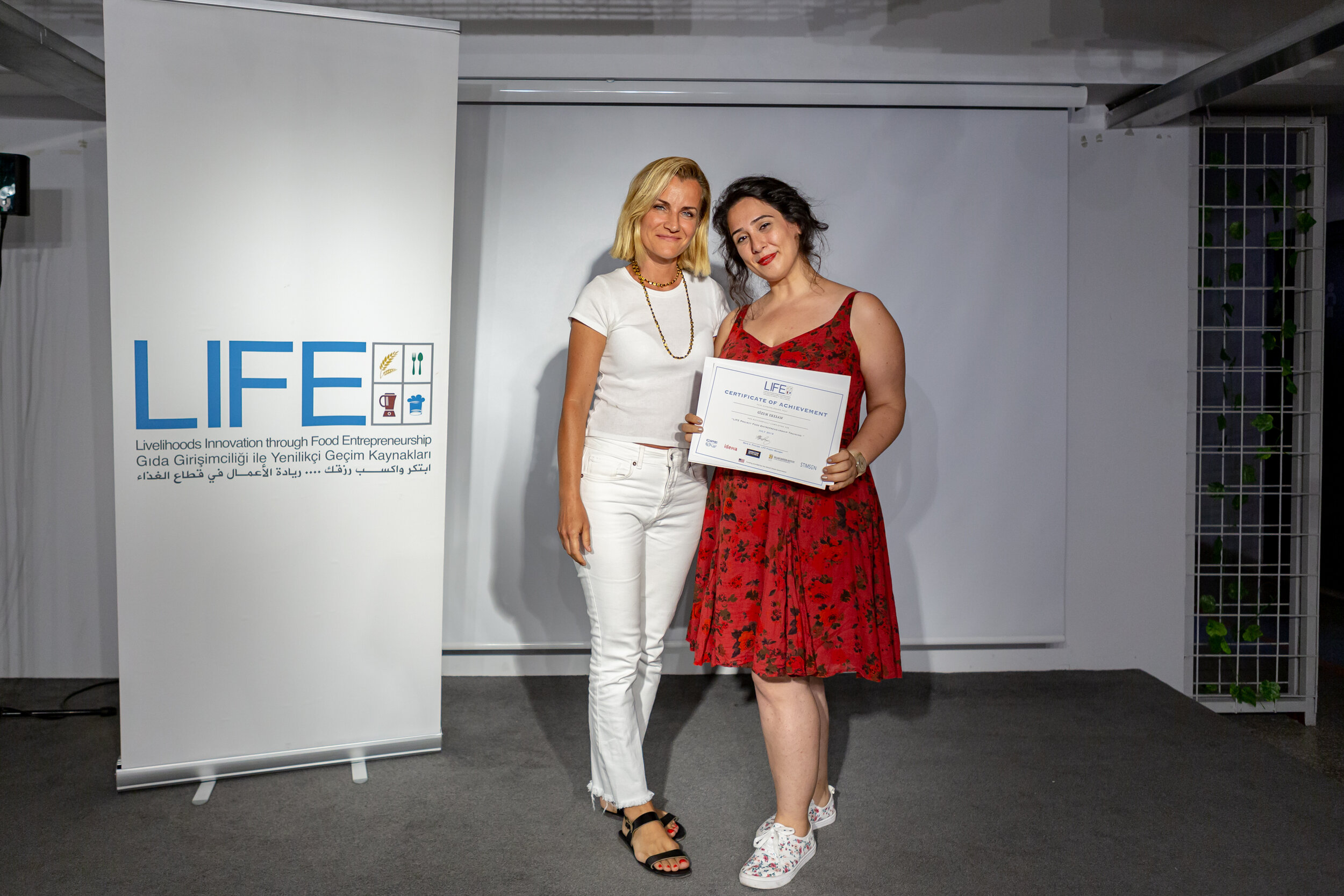
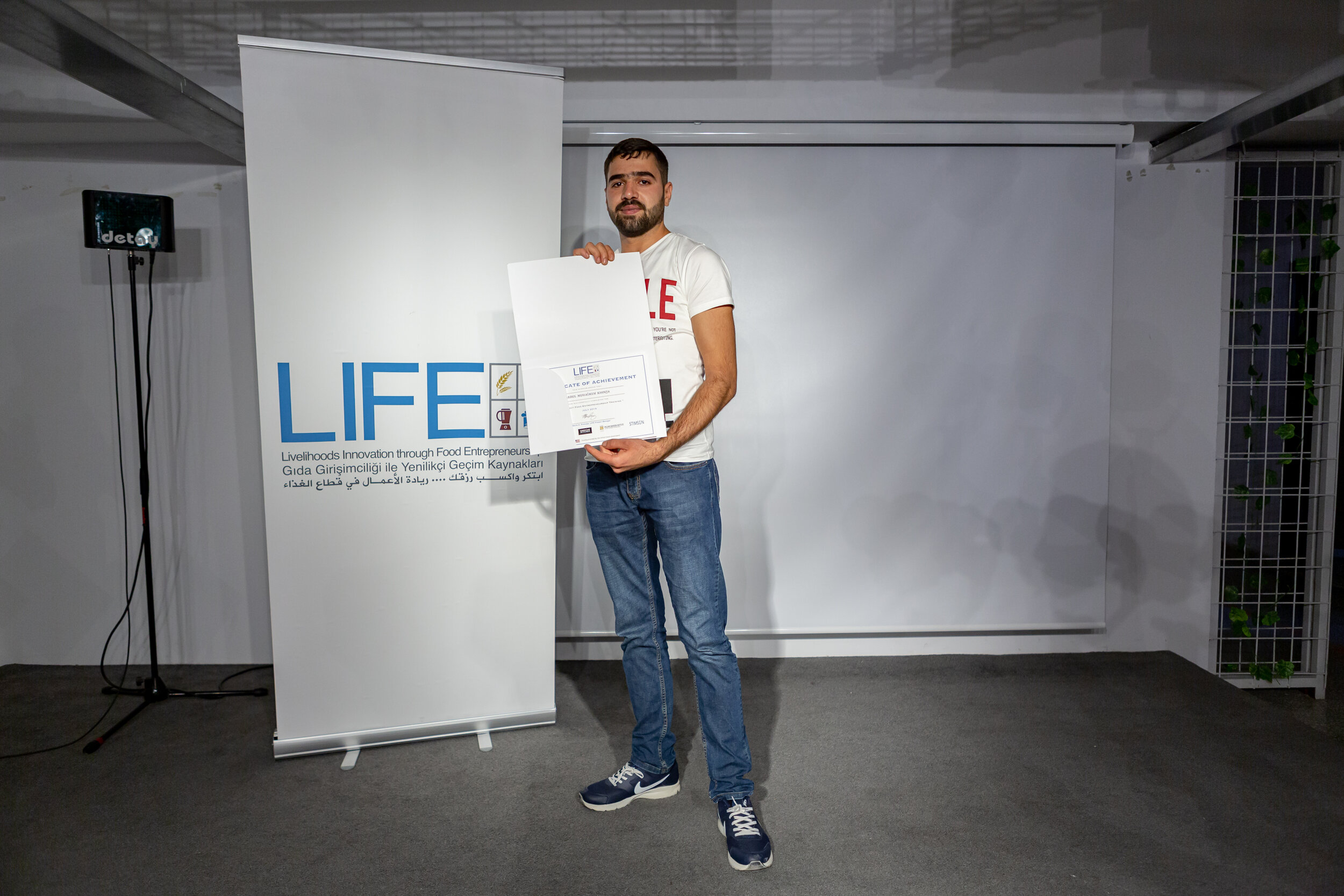
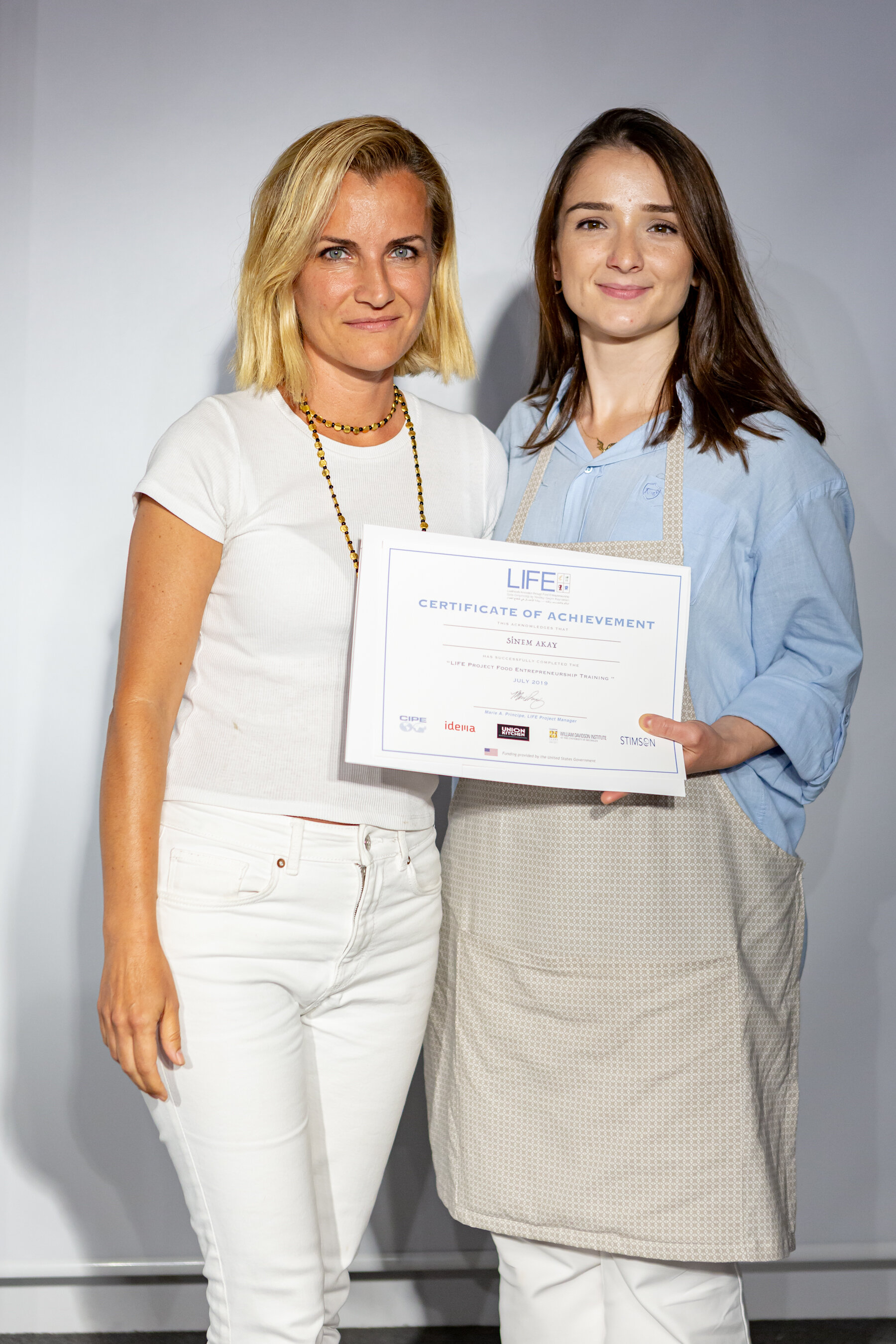
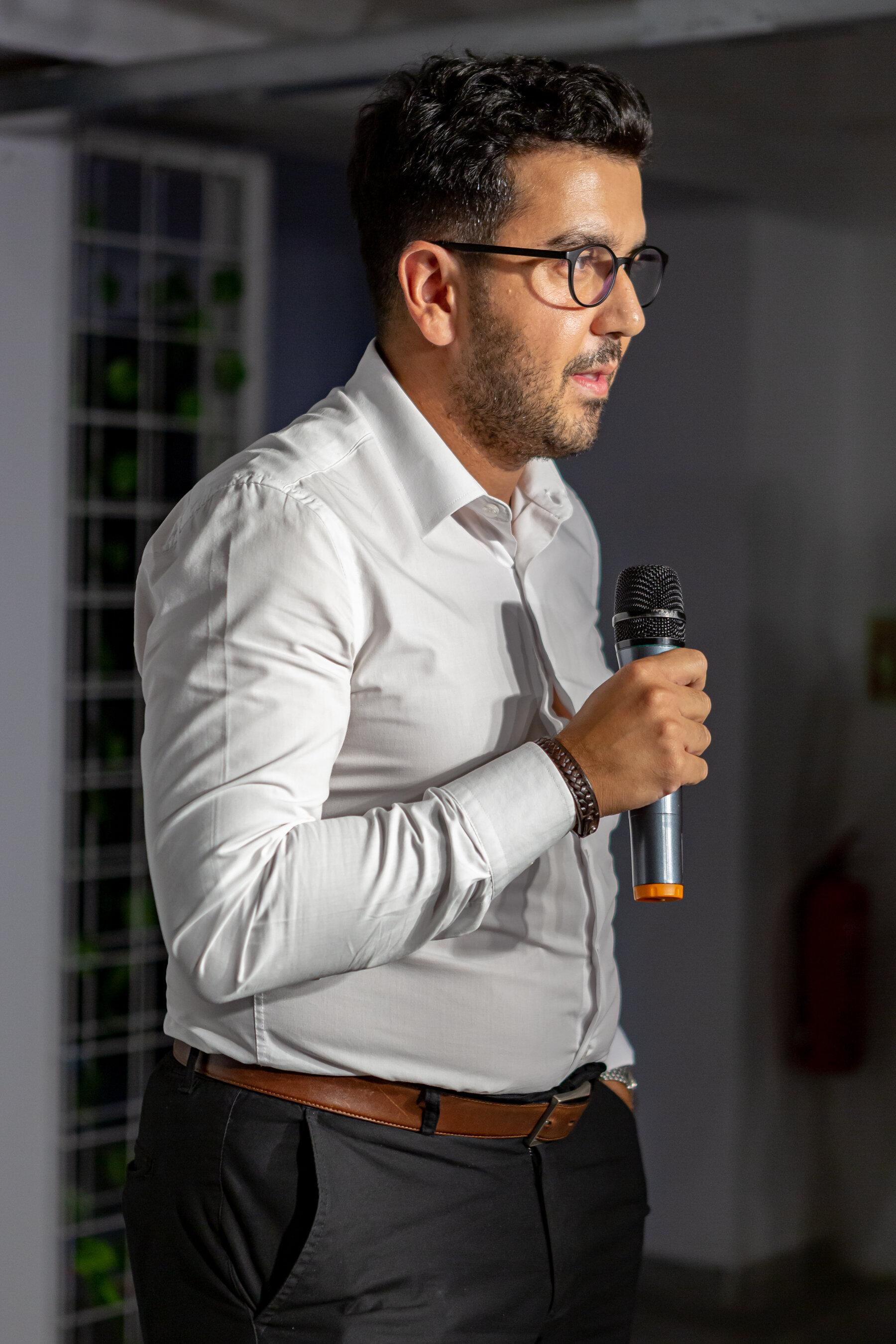
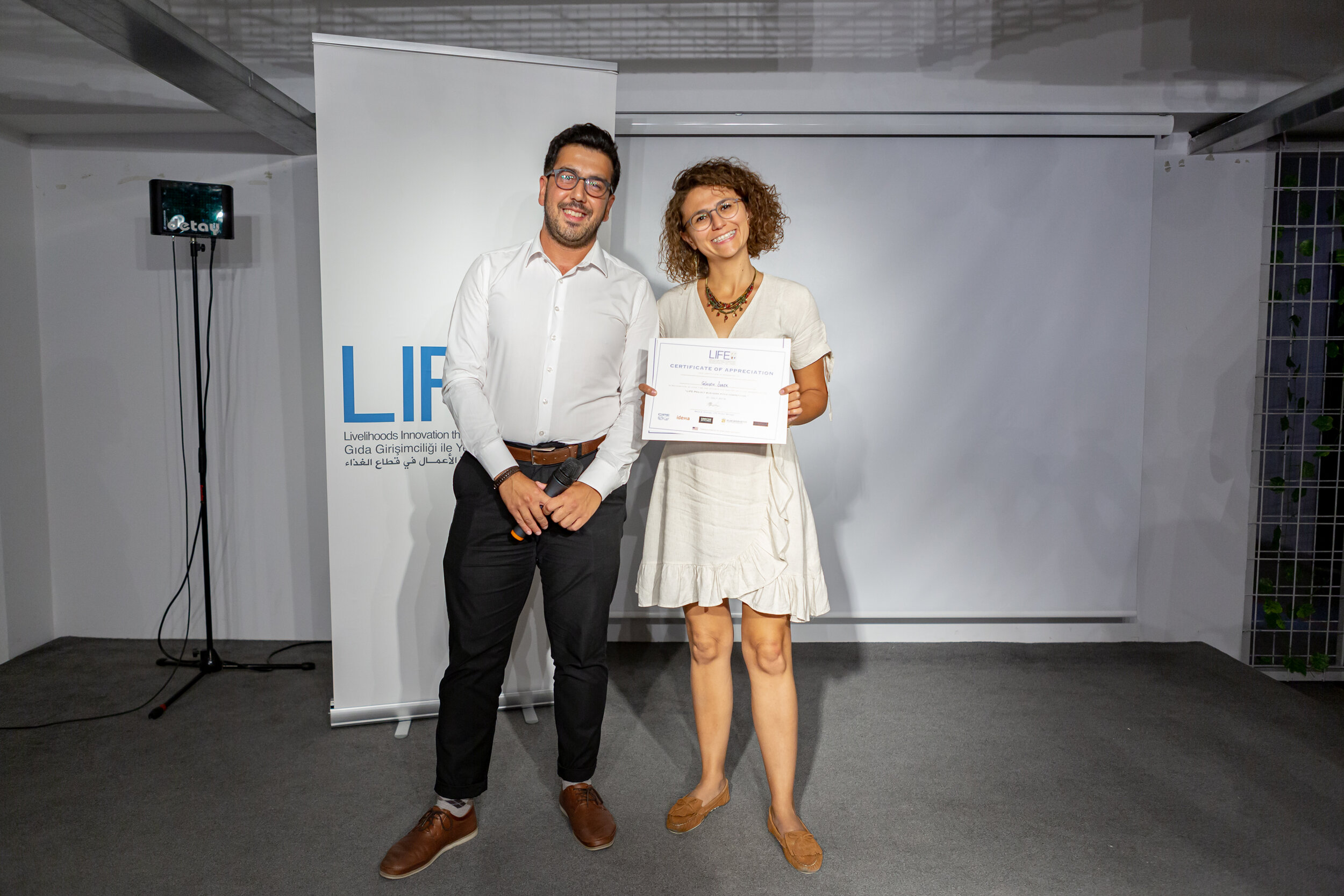
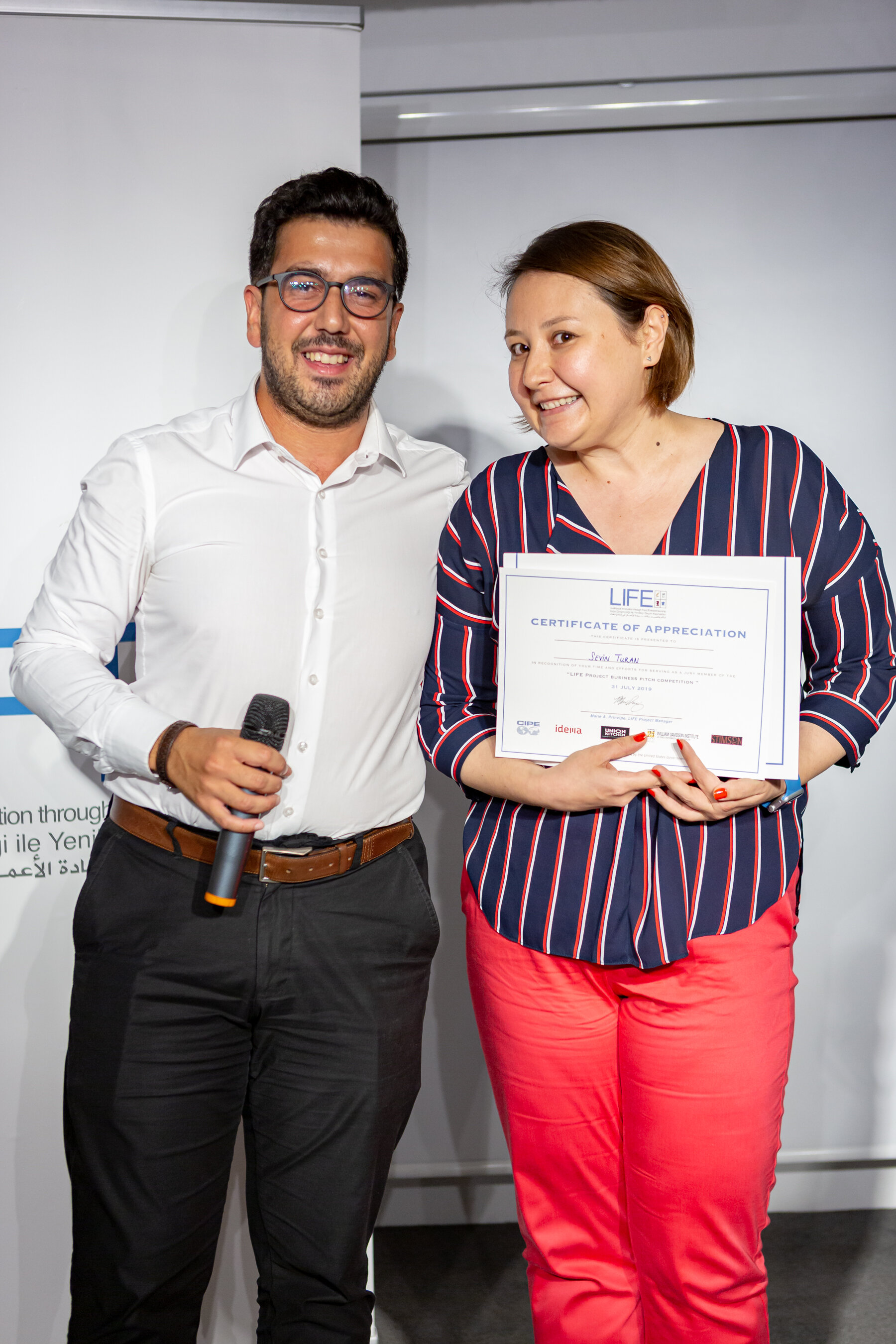
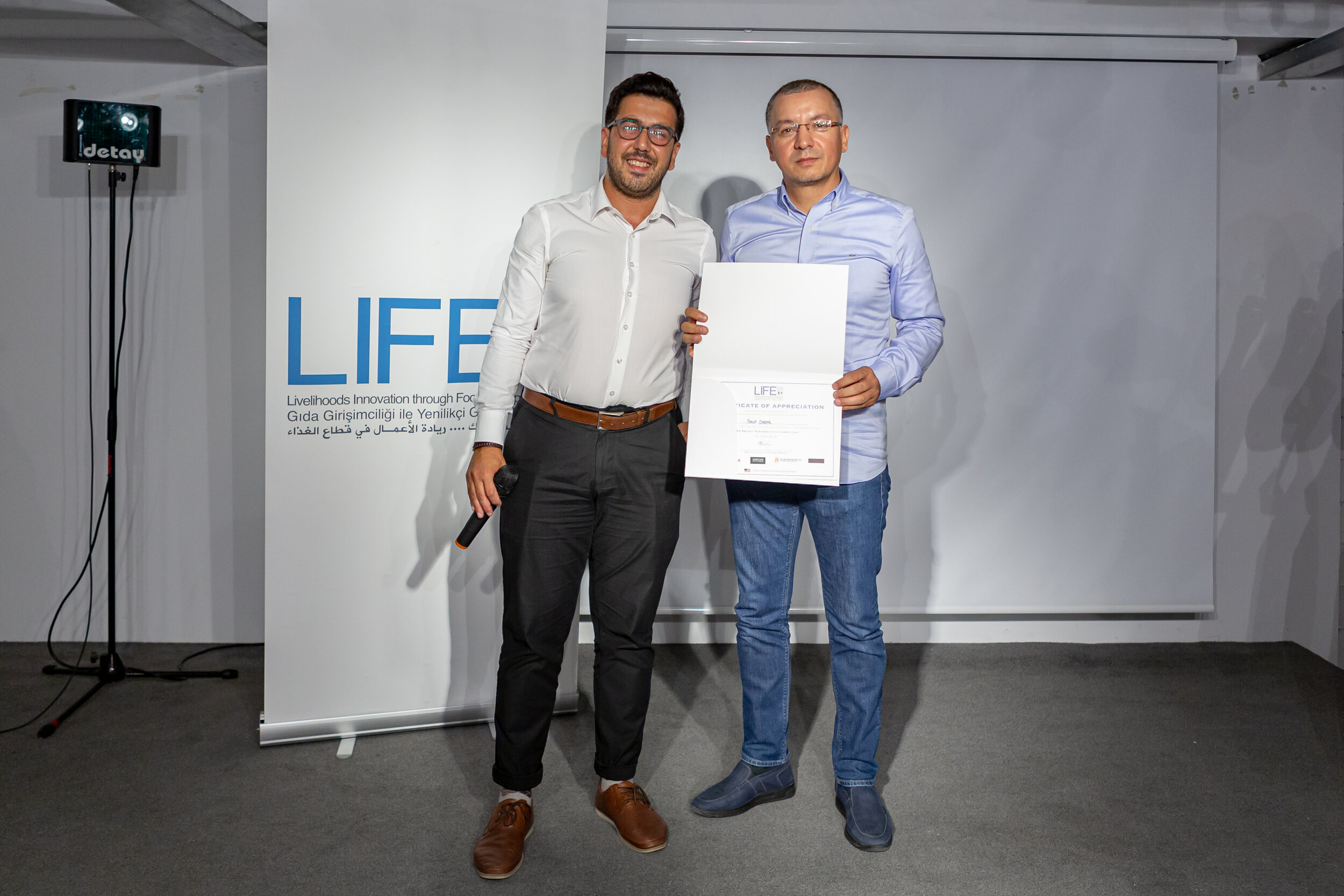
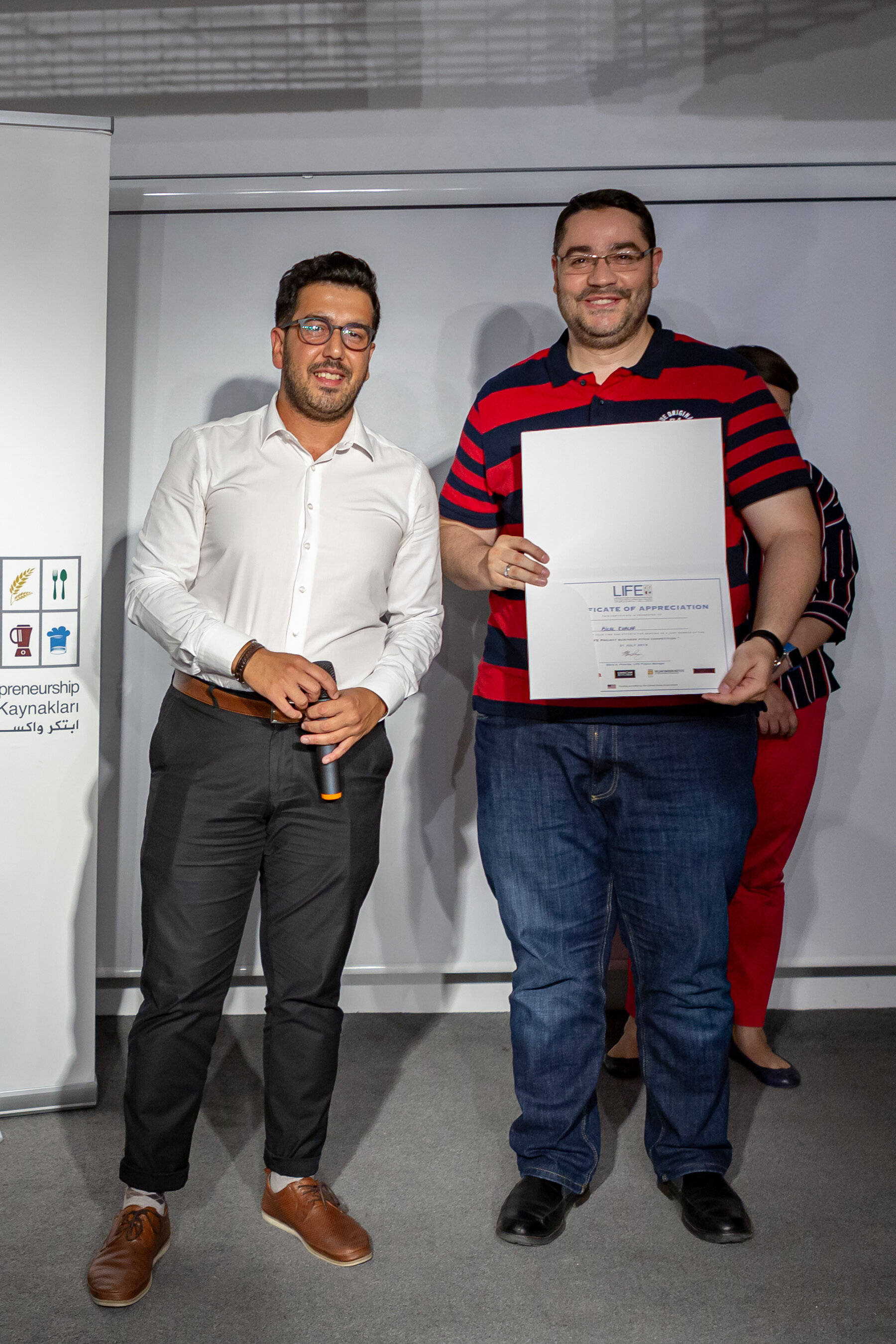
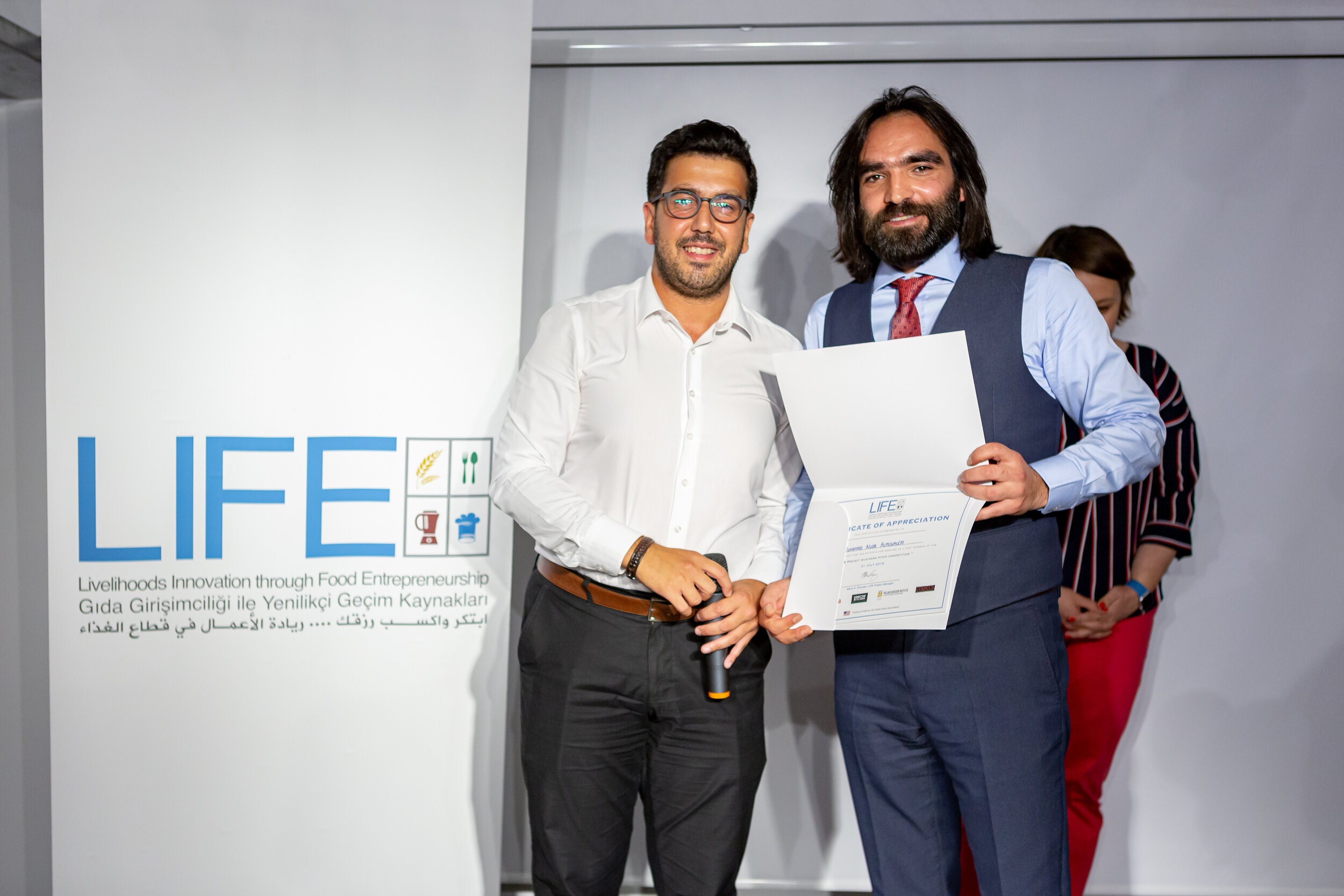
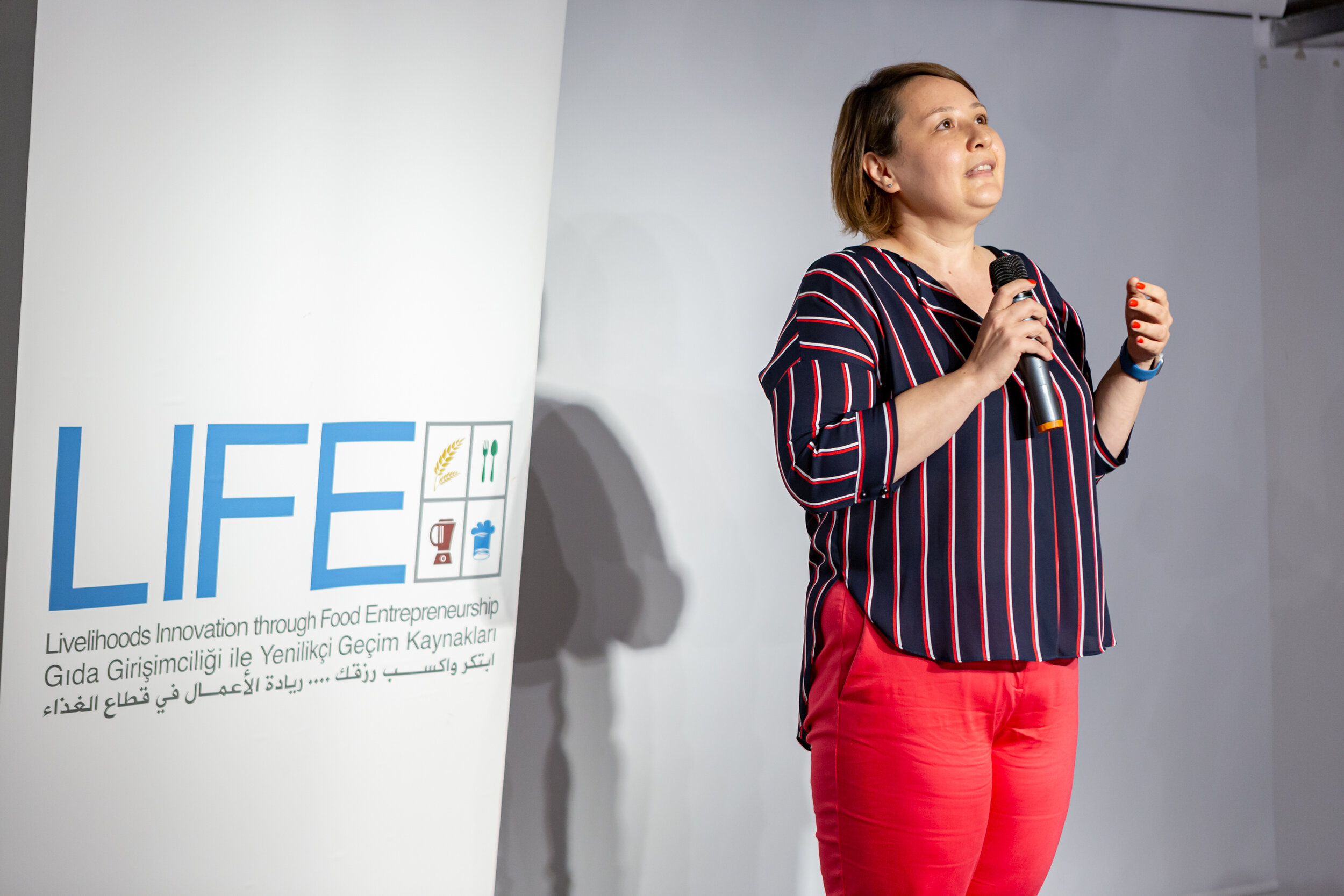
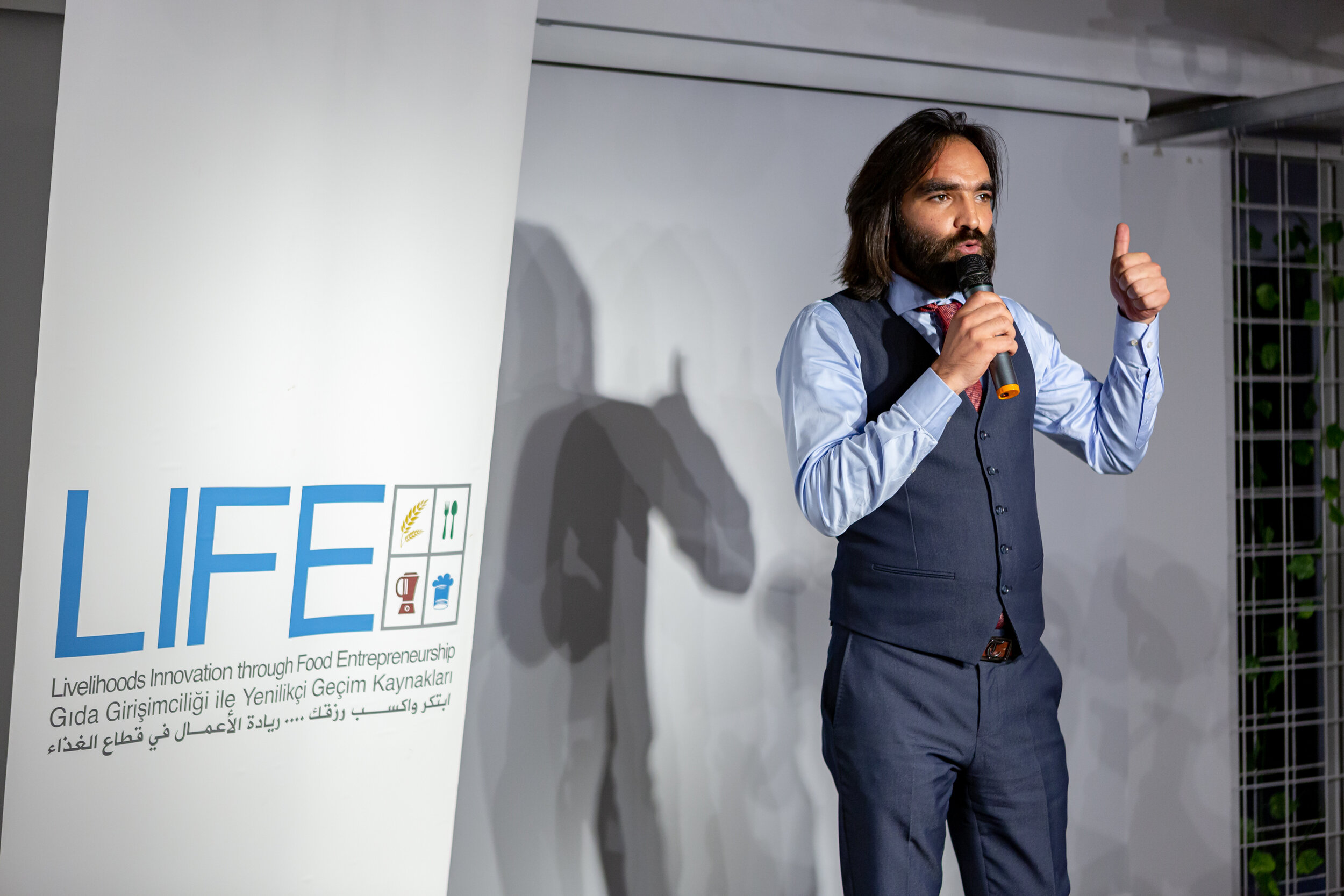
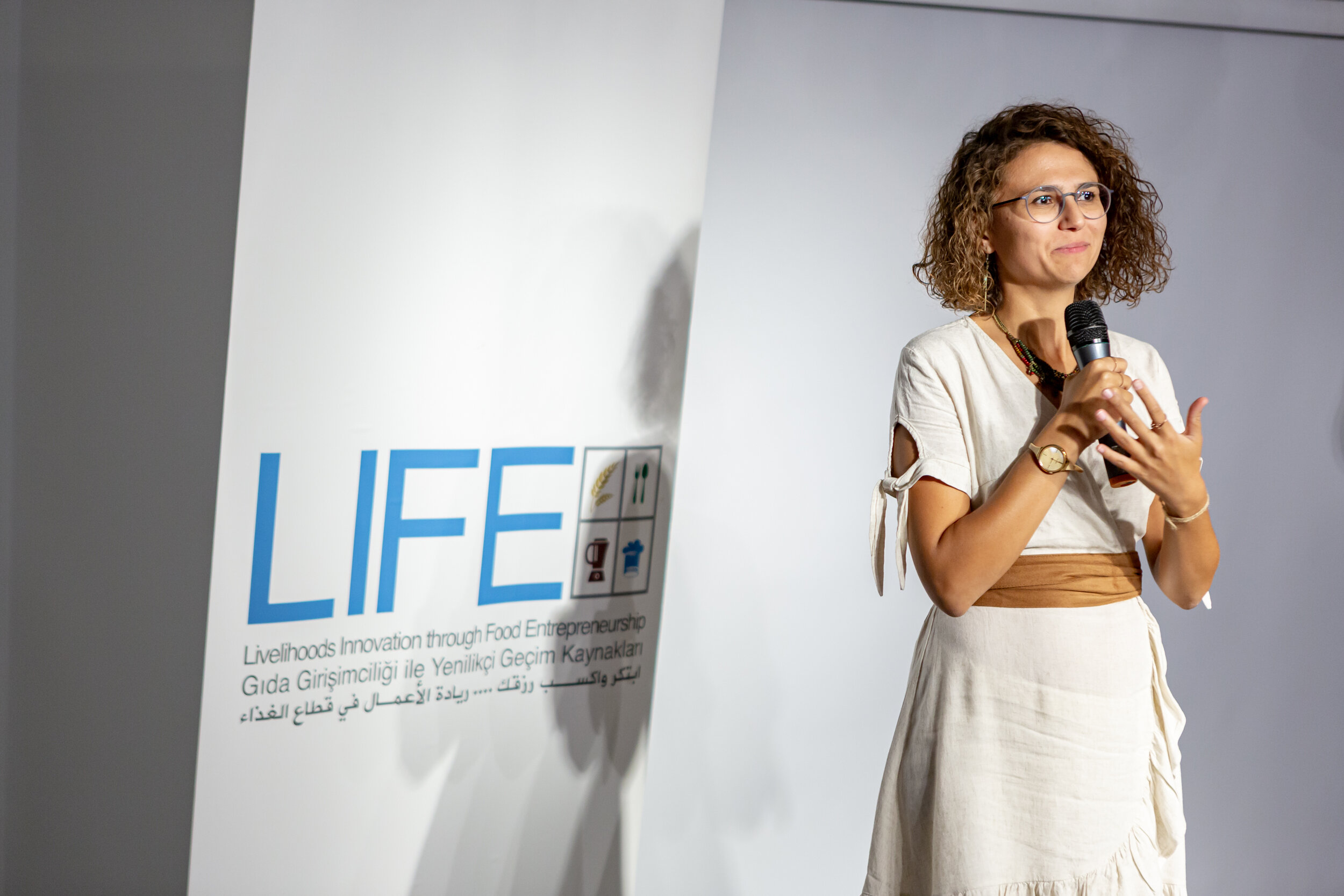
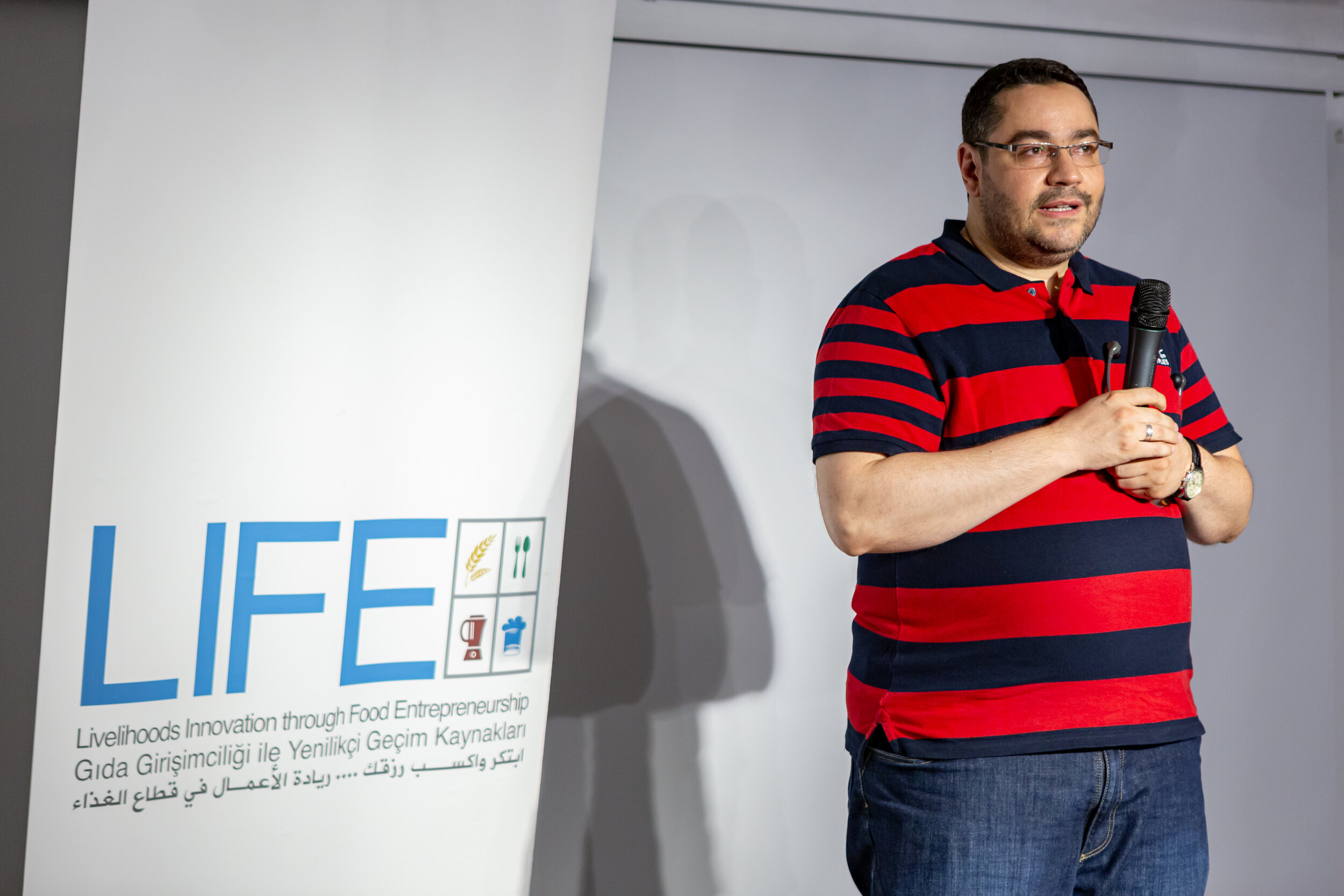
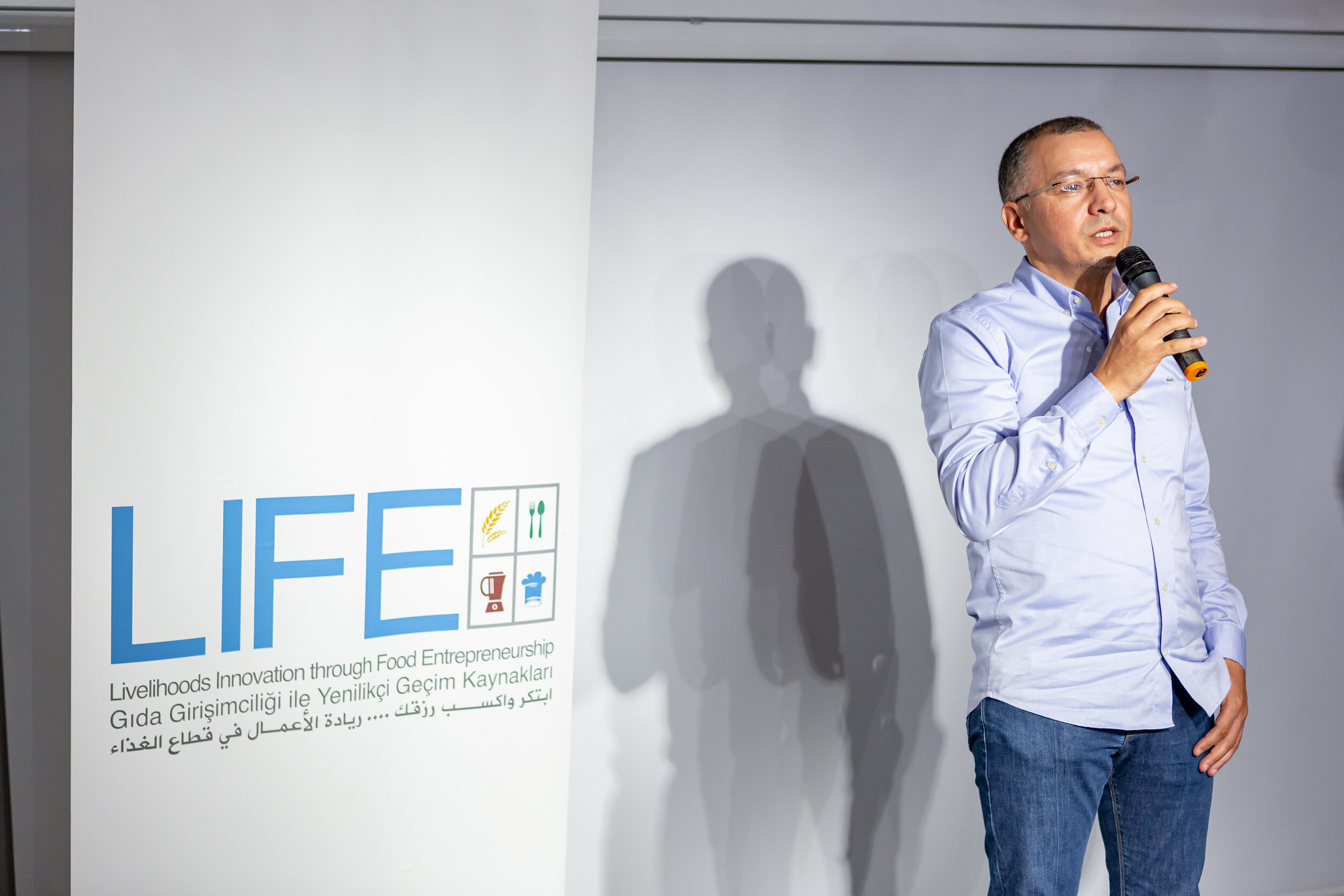
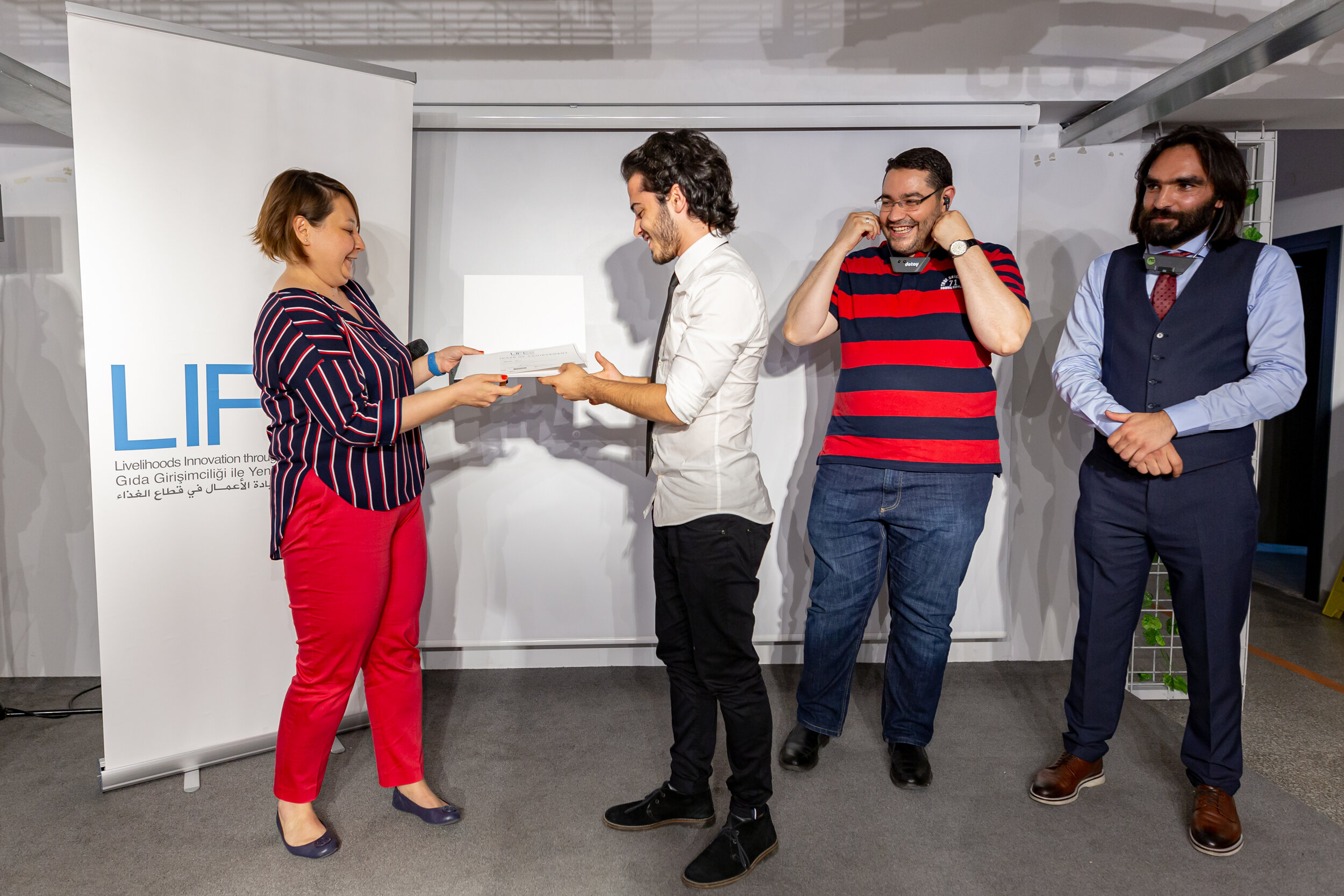
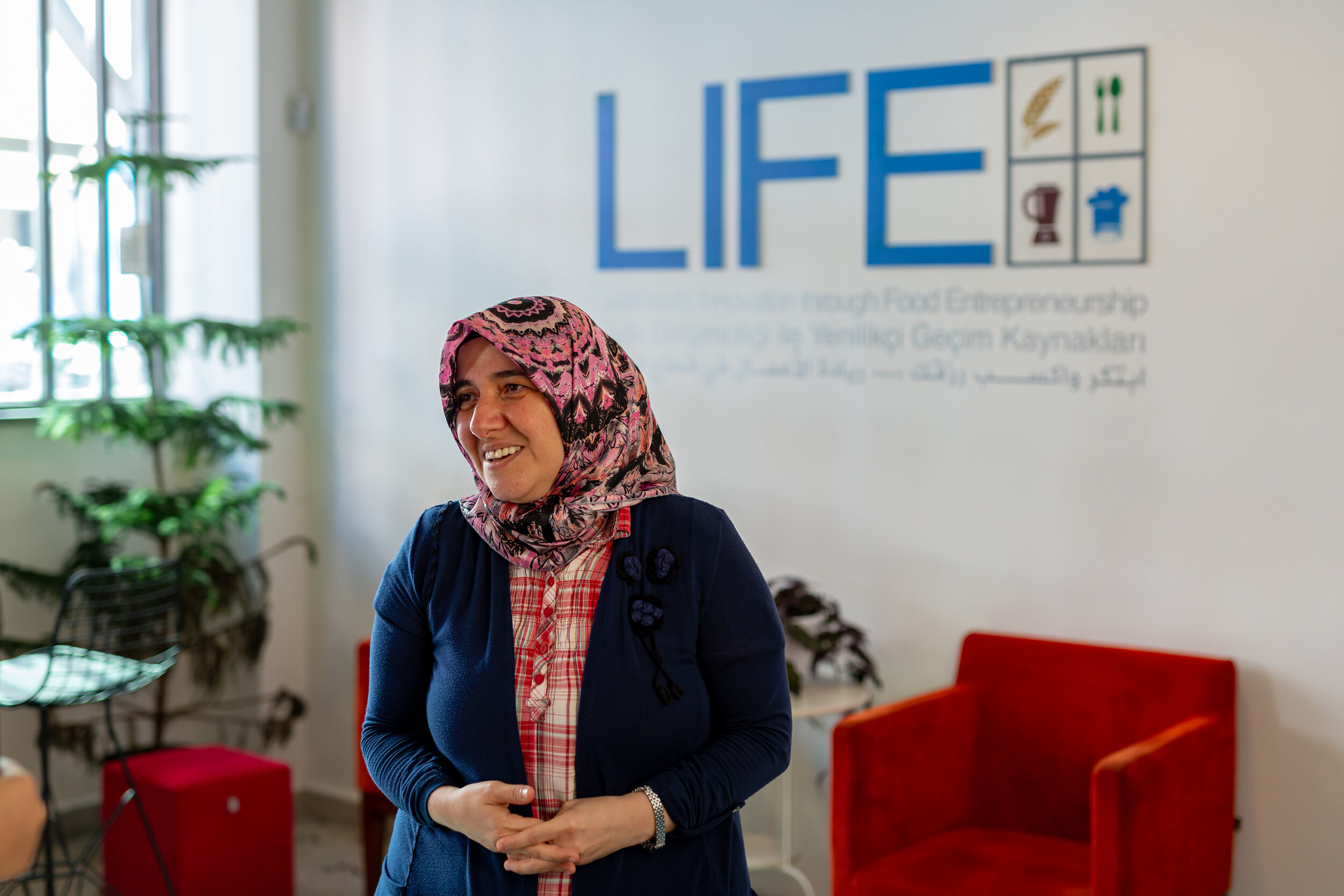
2019 Iftar Meal in Istanbul
During Ramadan, members from the fifth cohort of the LIFE Project entrepreneurship incubation program in Istanbul gathered at the Food Enterprise Center for Iftar. Turkish and refugee LIFE Entrepreneurs prepared shared recipes from their home cultures and exchanged stories over this multi-cultural meal.
Fourth Istanbul Business Pitch Competition
The fourth cohort of LIFE Entrepreneurs in Istanbul included 29 food entrepreneurs from four countries. Each cohort culminates in the Business Pitch Competition, in which graduates have the opportunity to share their food business ideas with a panel of industry experts for a chance to receive seed funding to start and scale their businesses.
The First Istanbul Demo Day
The LIFE Project welcomed potential investors, customers, and food sector experts to the Istanbul Food Enterprise Center for the first-ever Demo Day. Over 30 members showcased their food businesses, using pitching and networking skills developed during the incubation program.

.jpeg)
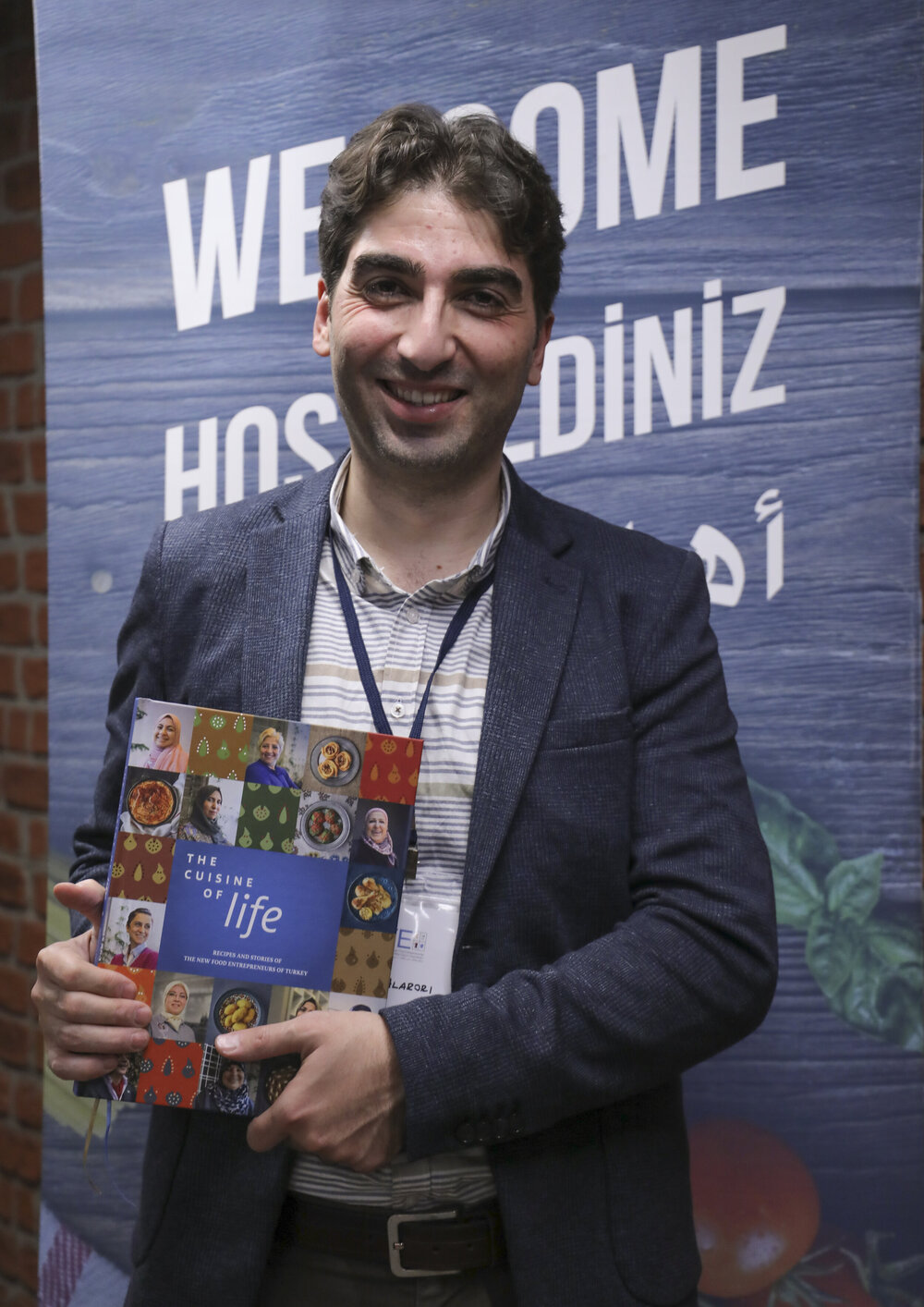
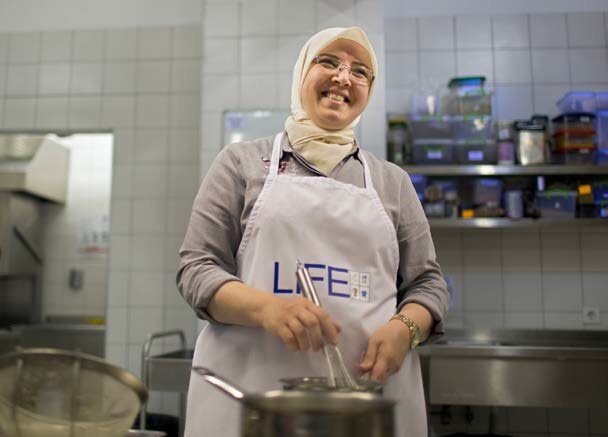
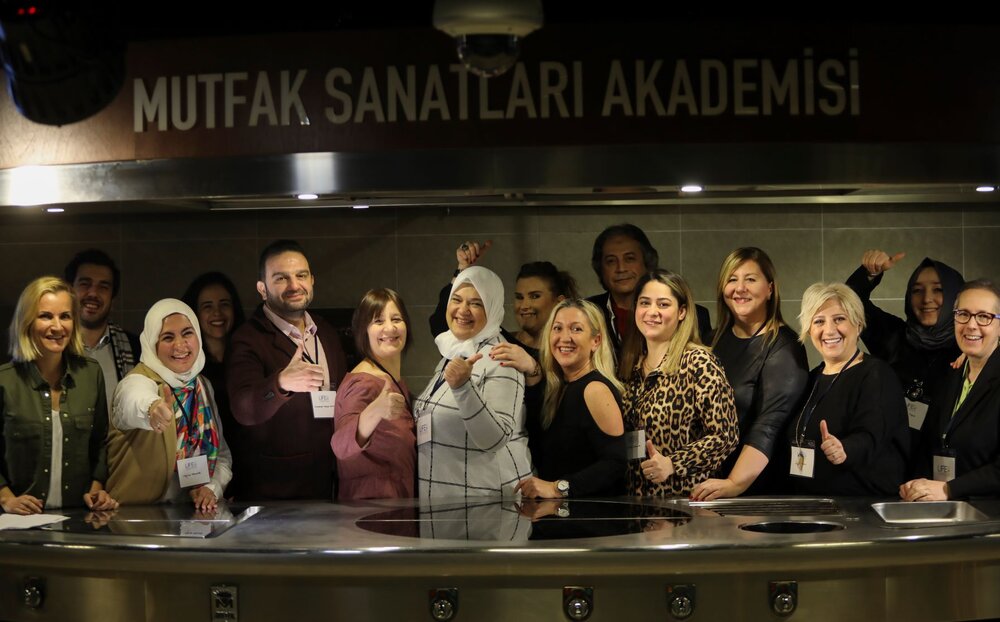

















.jpg)
.jpg)
.jpg)
.jpg)
.jpg)
.jpg)
.jpg)
.jpg)
.jpg)
.jpg)
.jpg)
.jpg)
.jpg)
.jpg)
.jpg)
